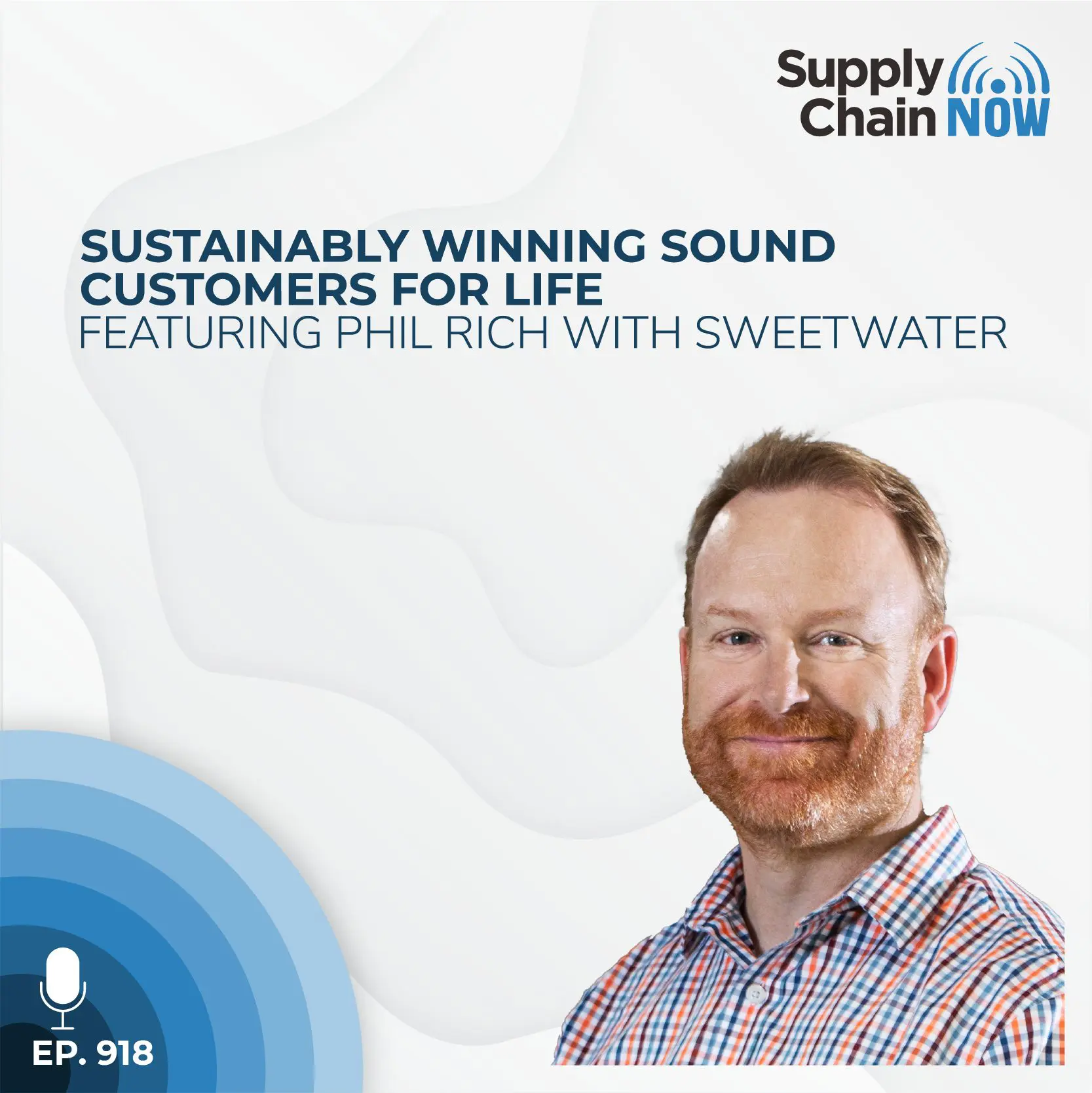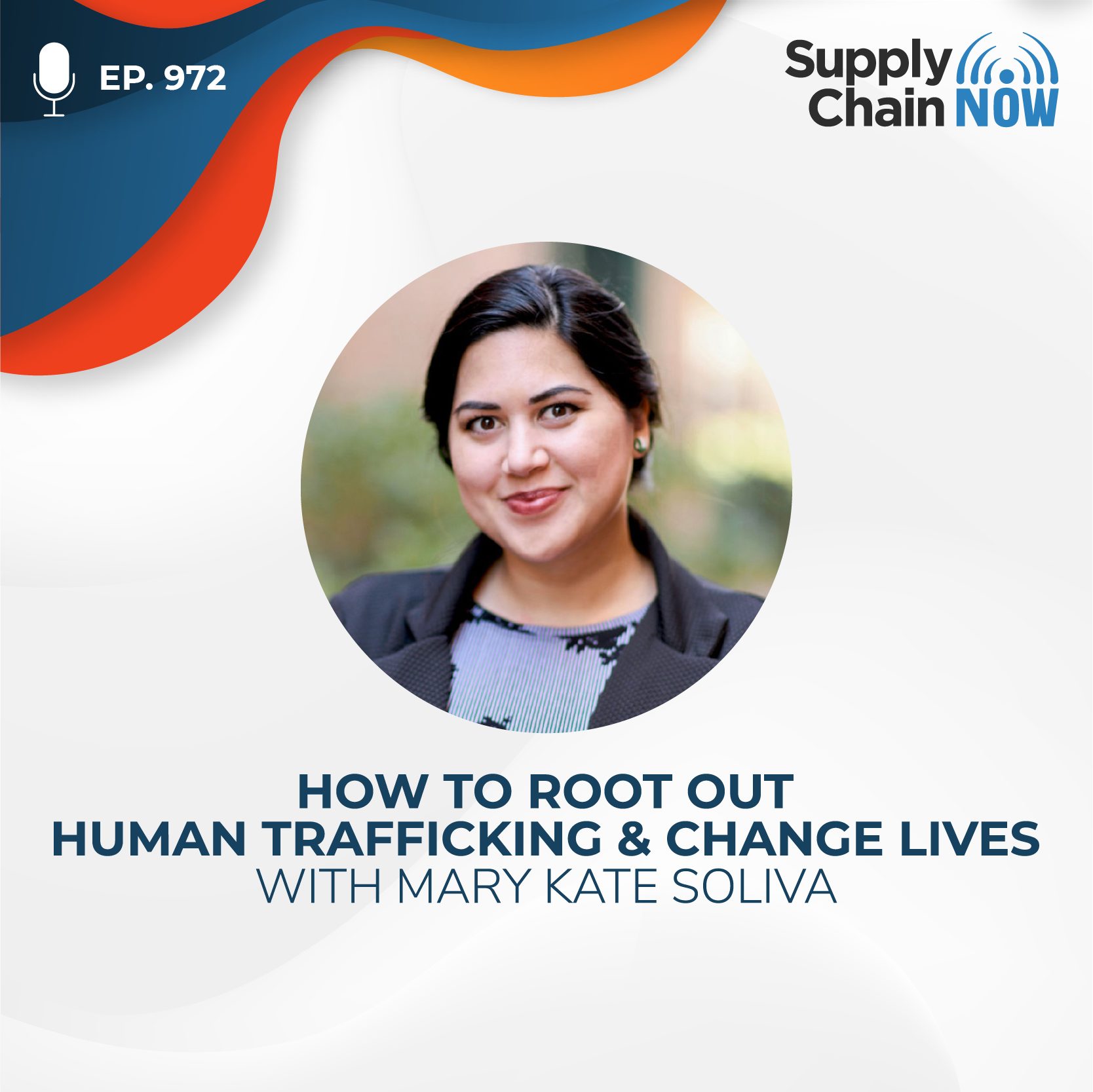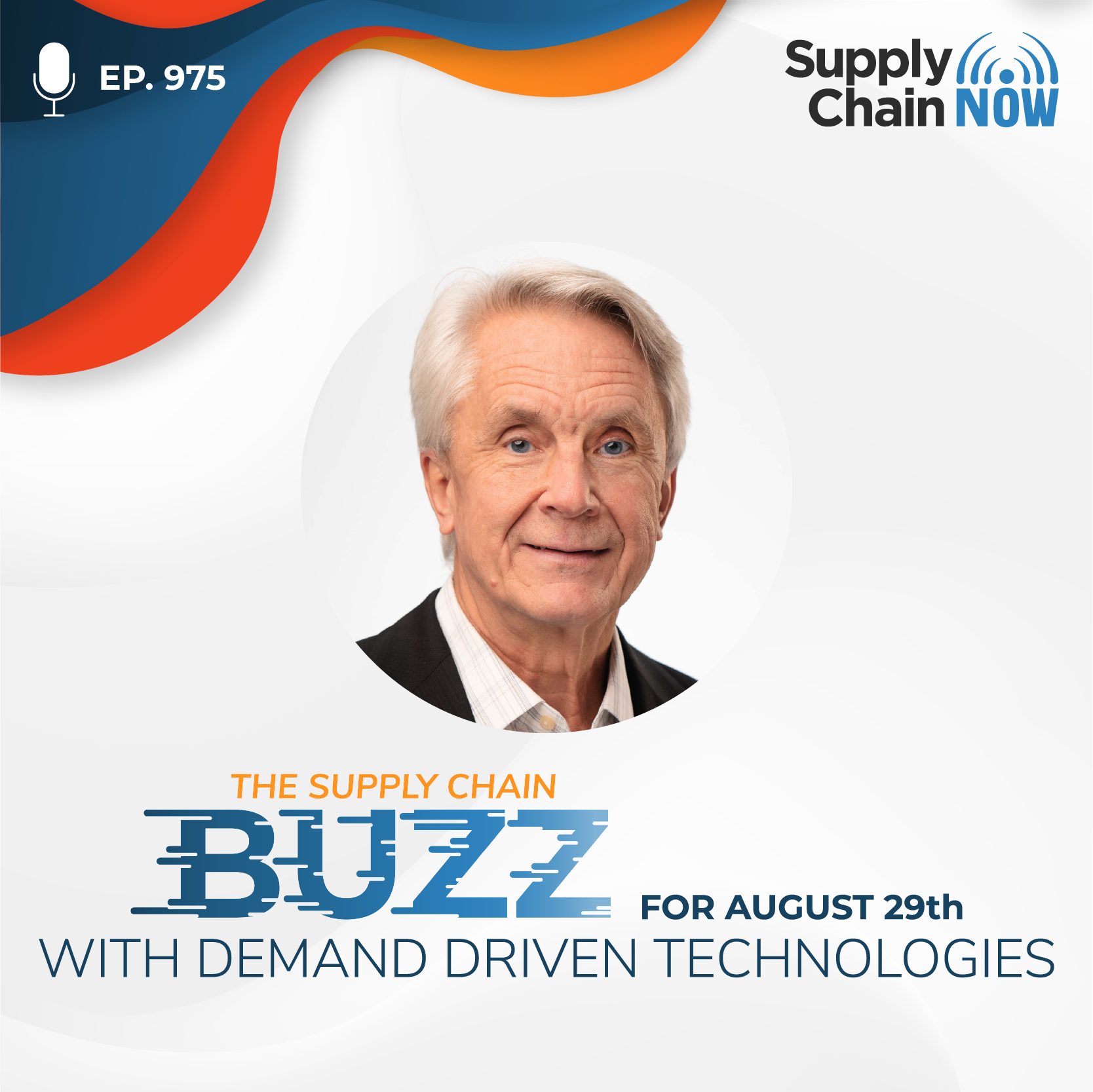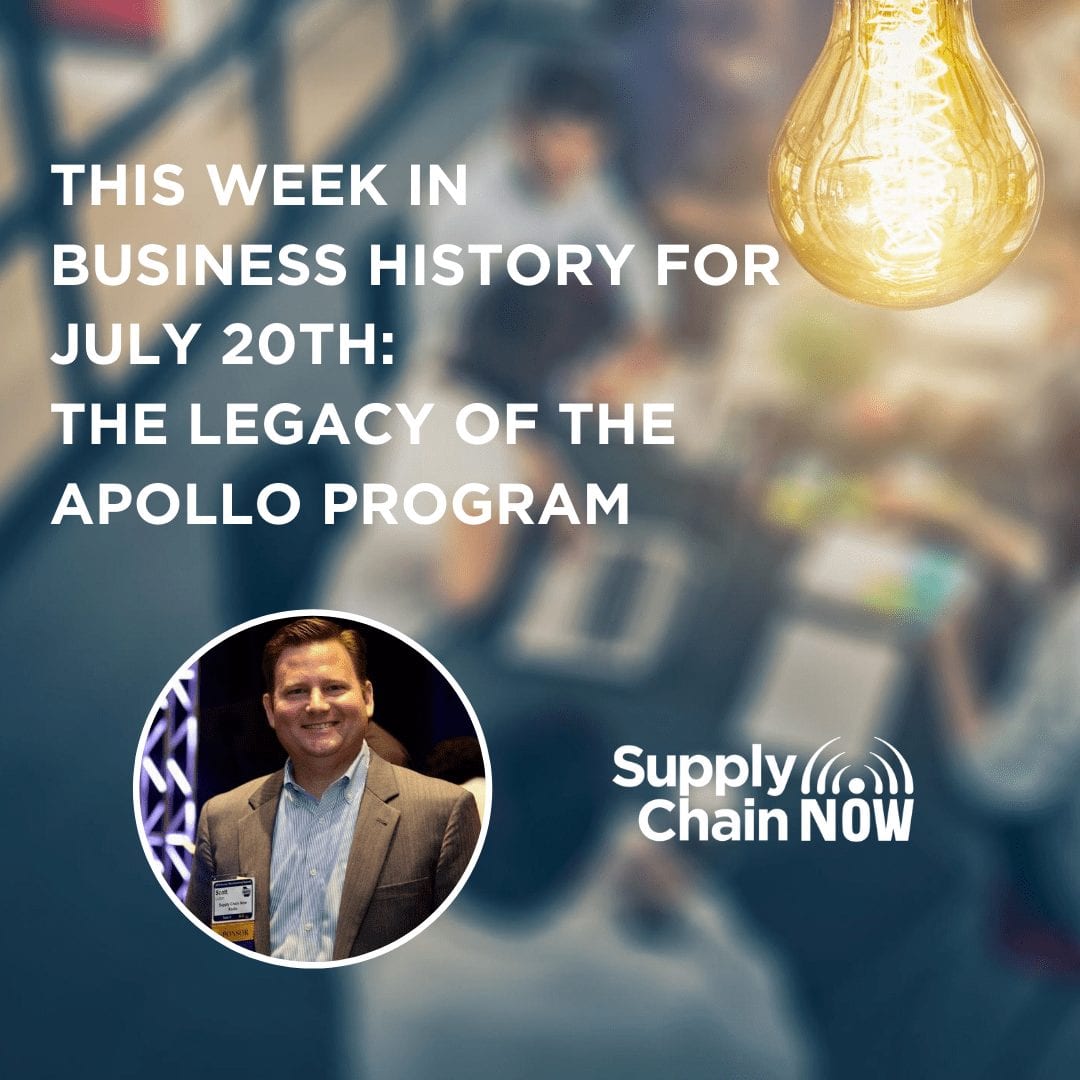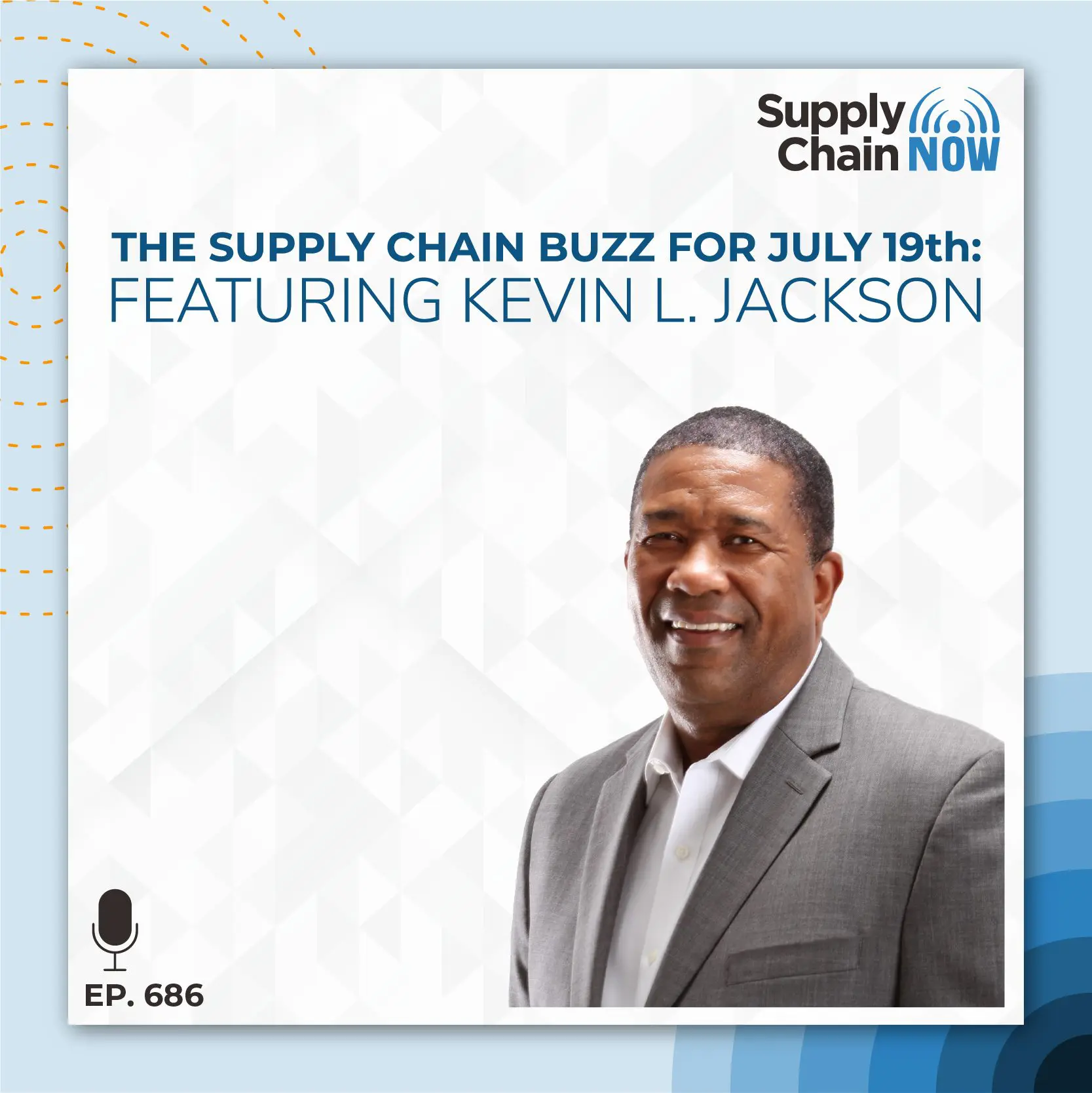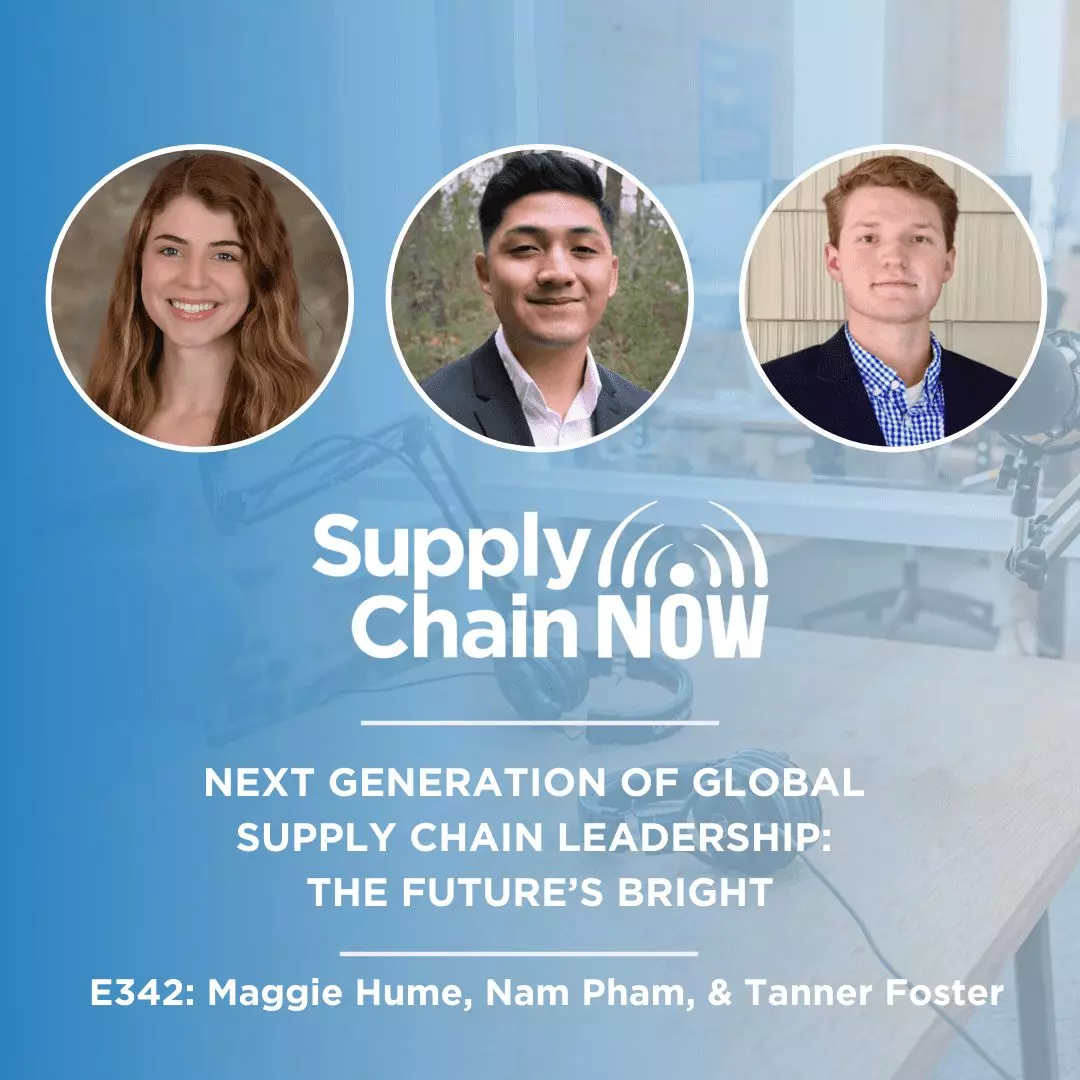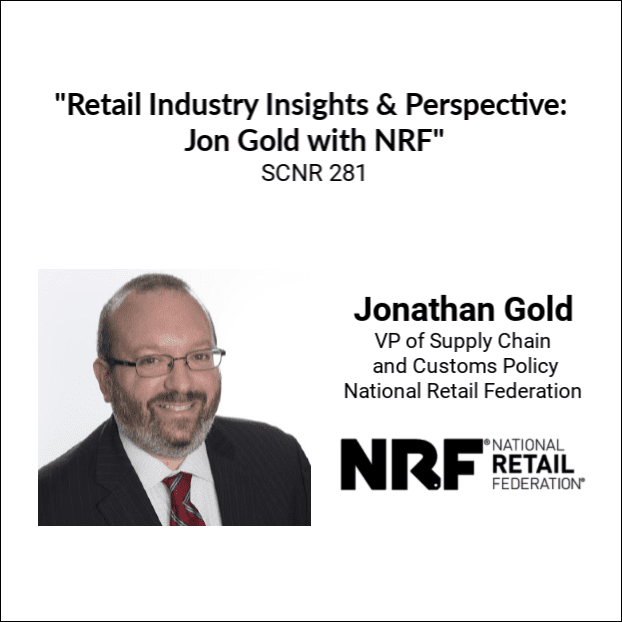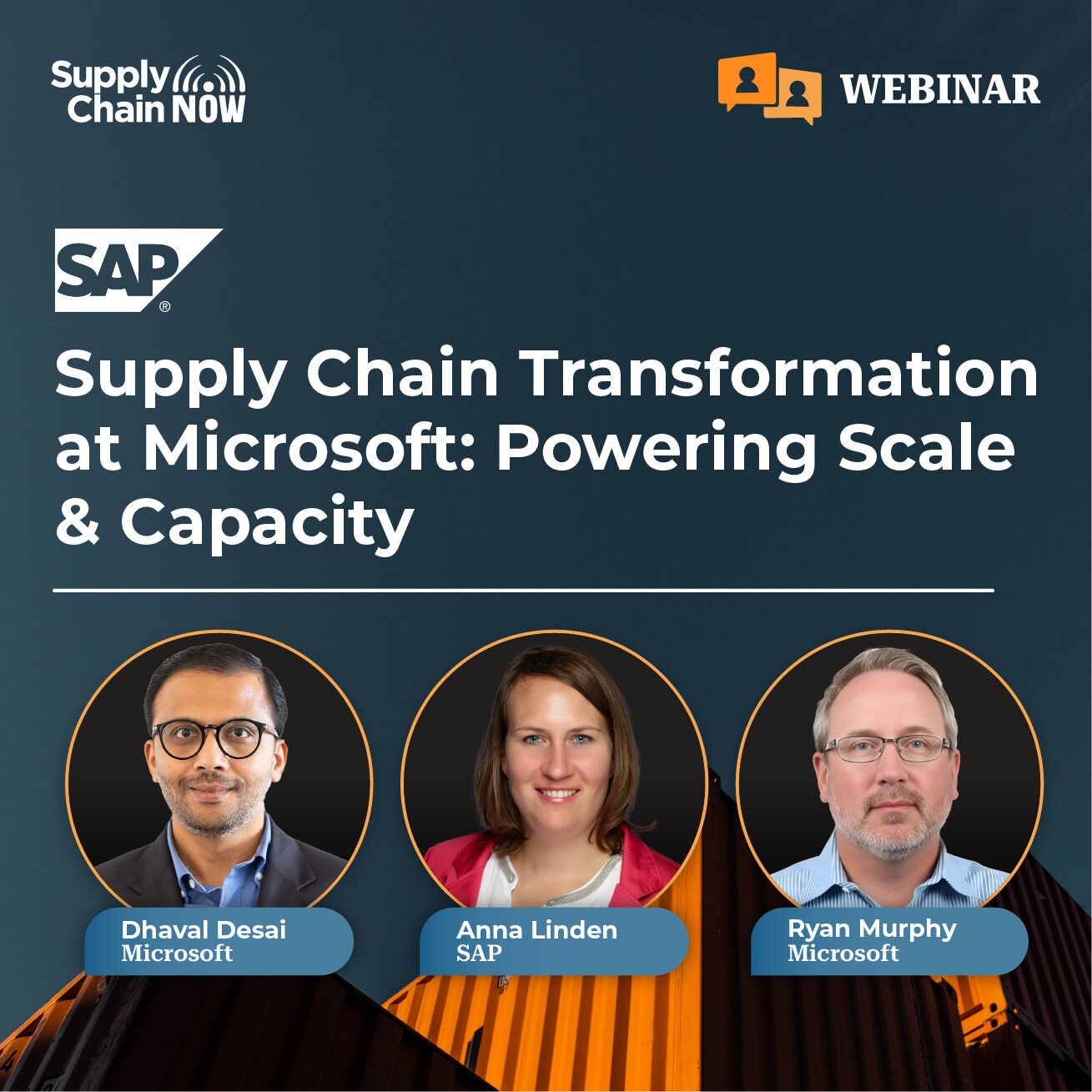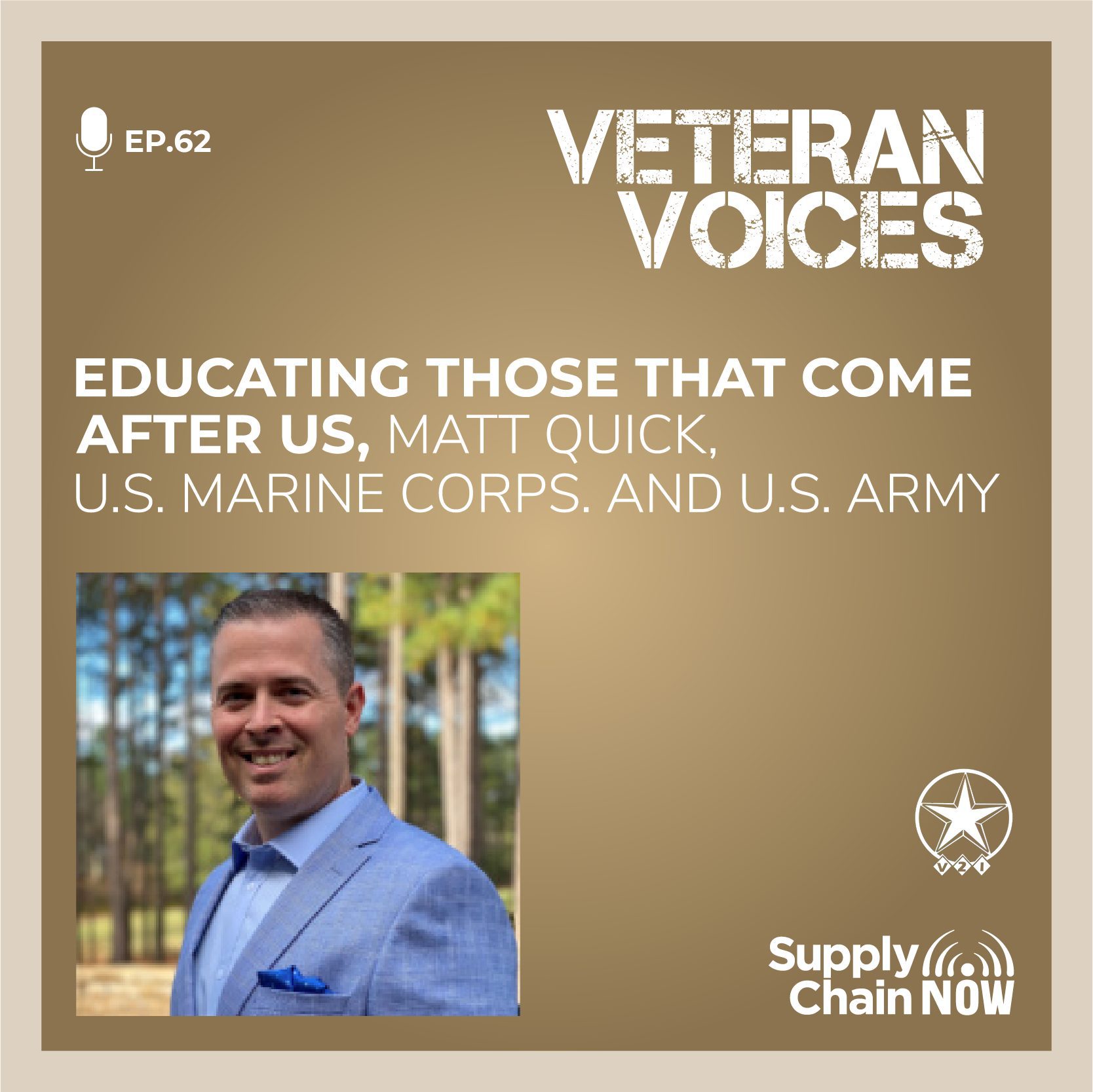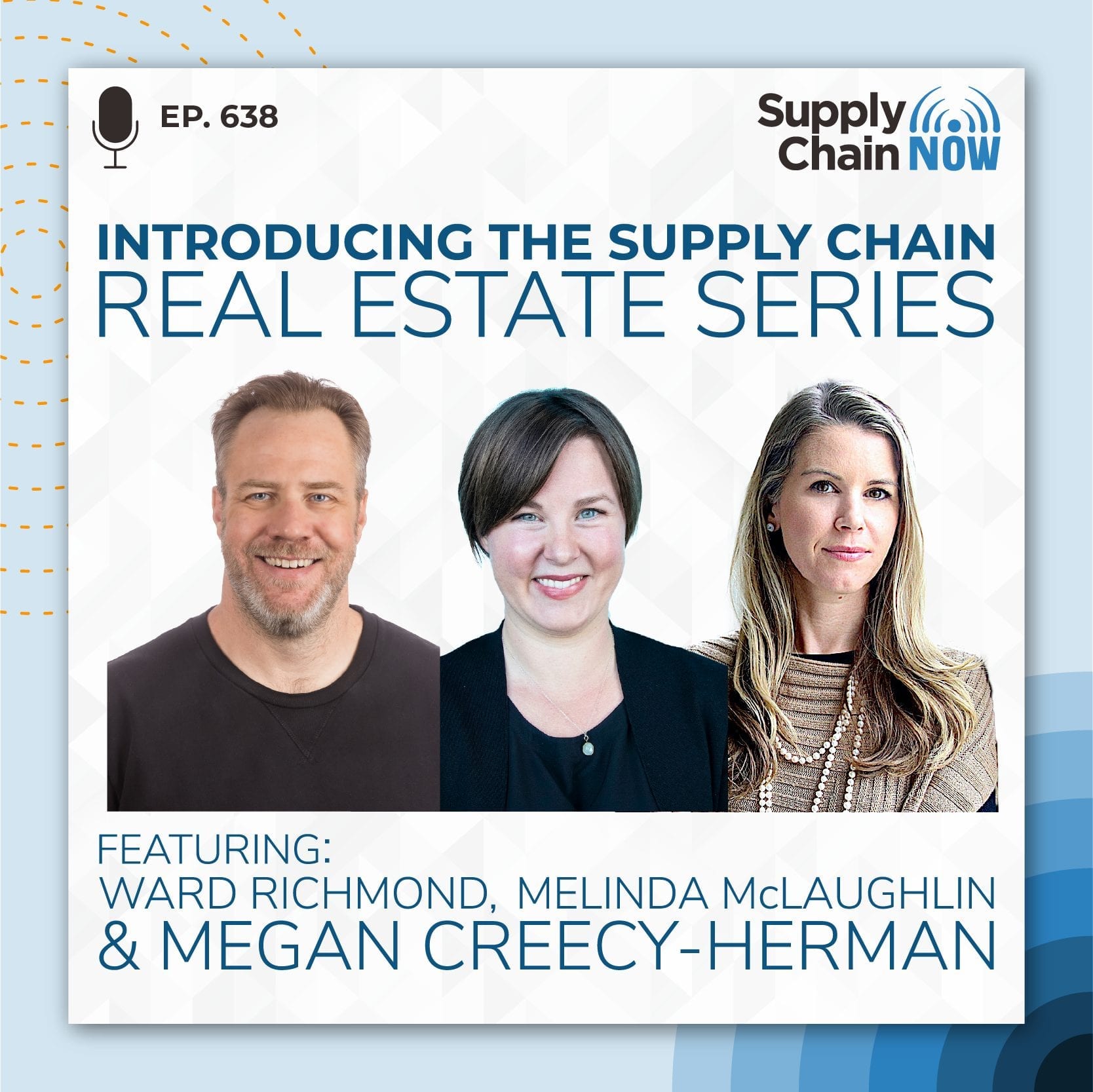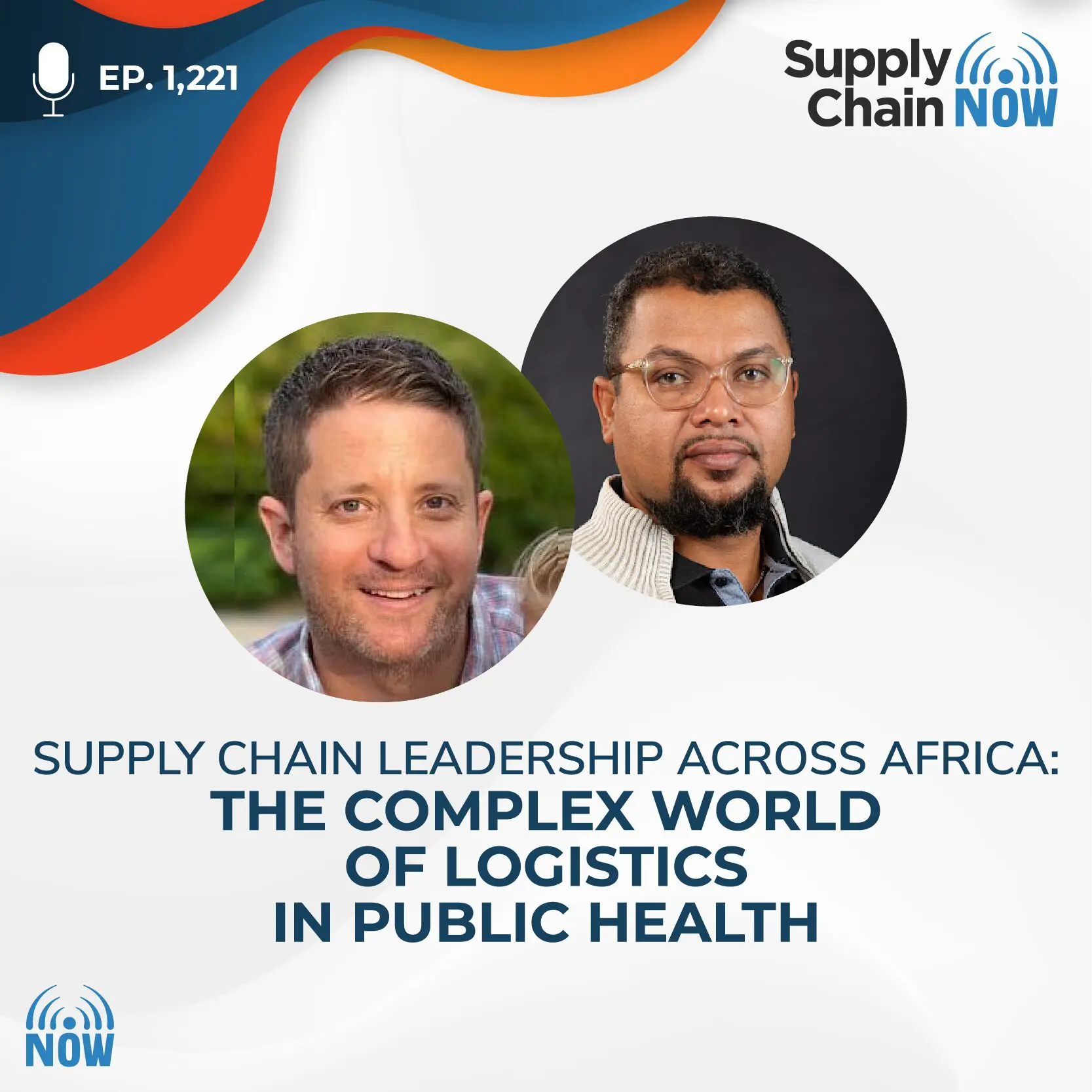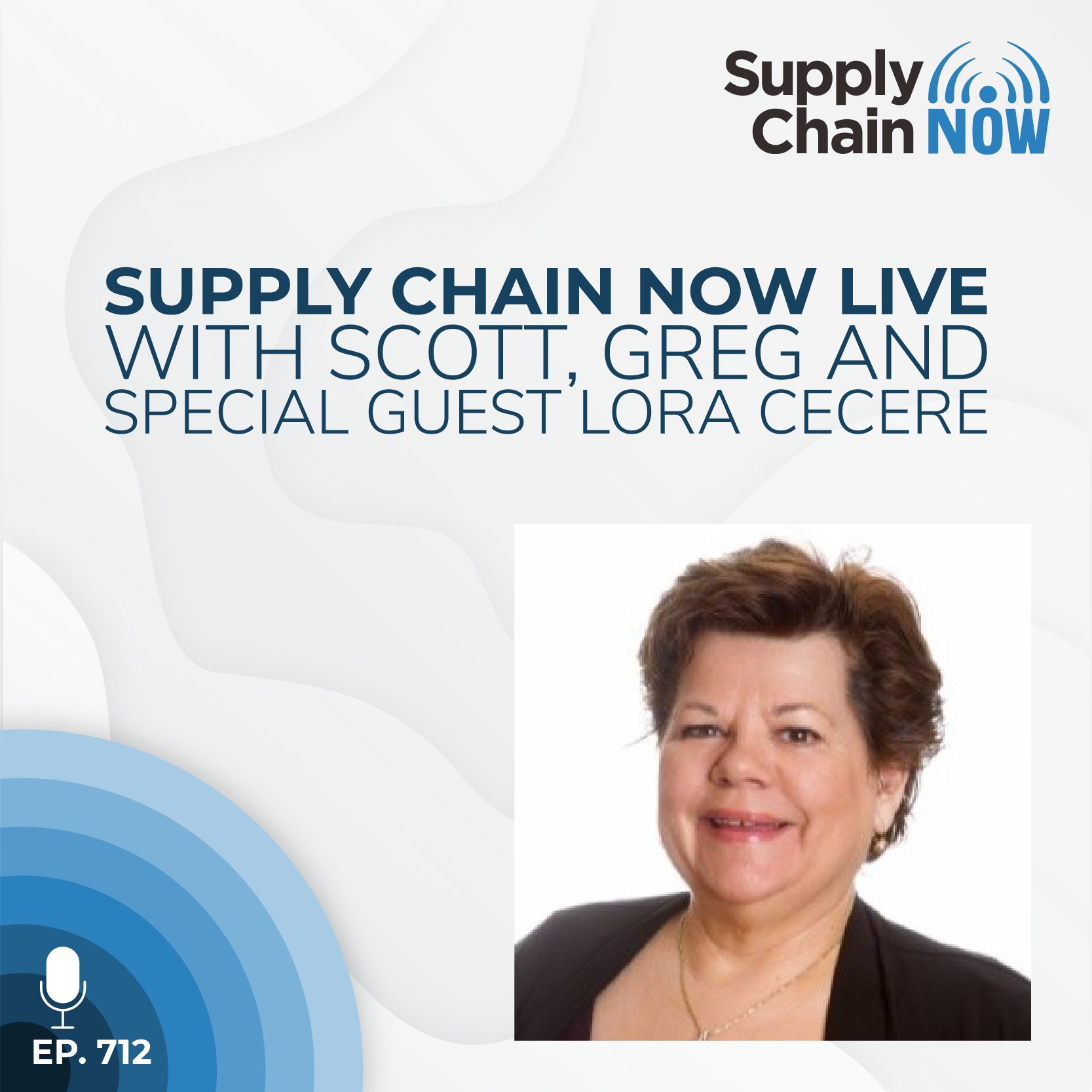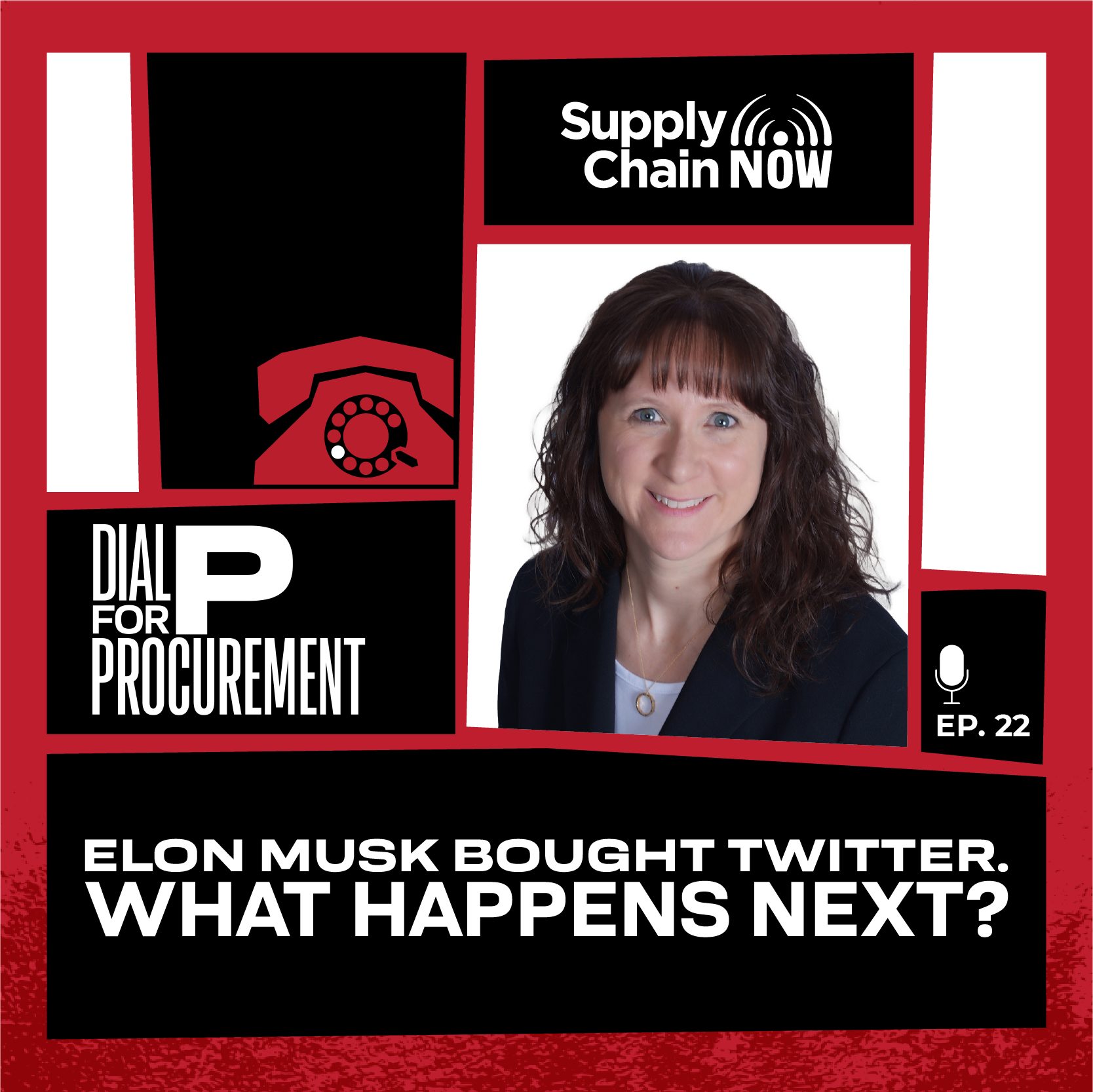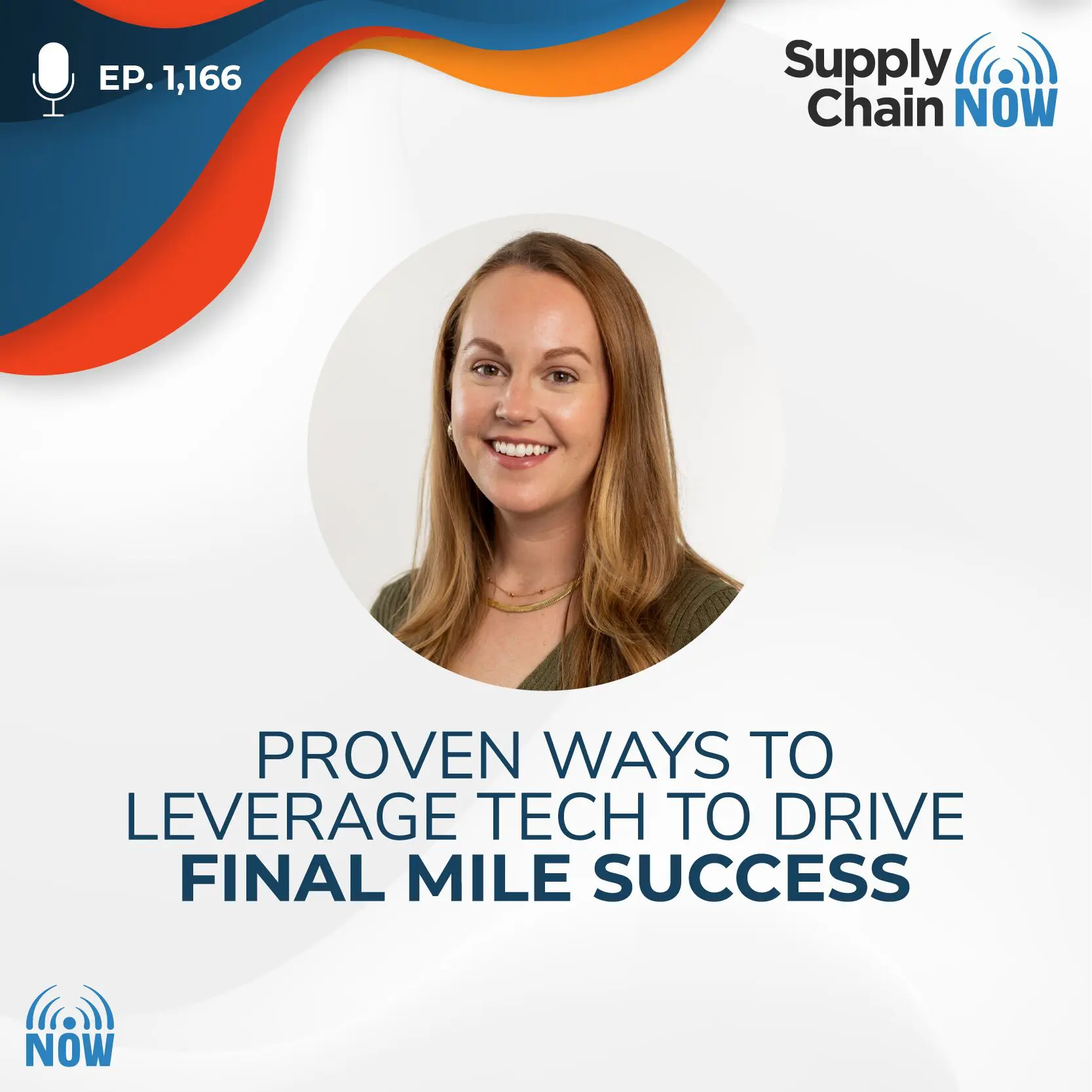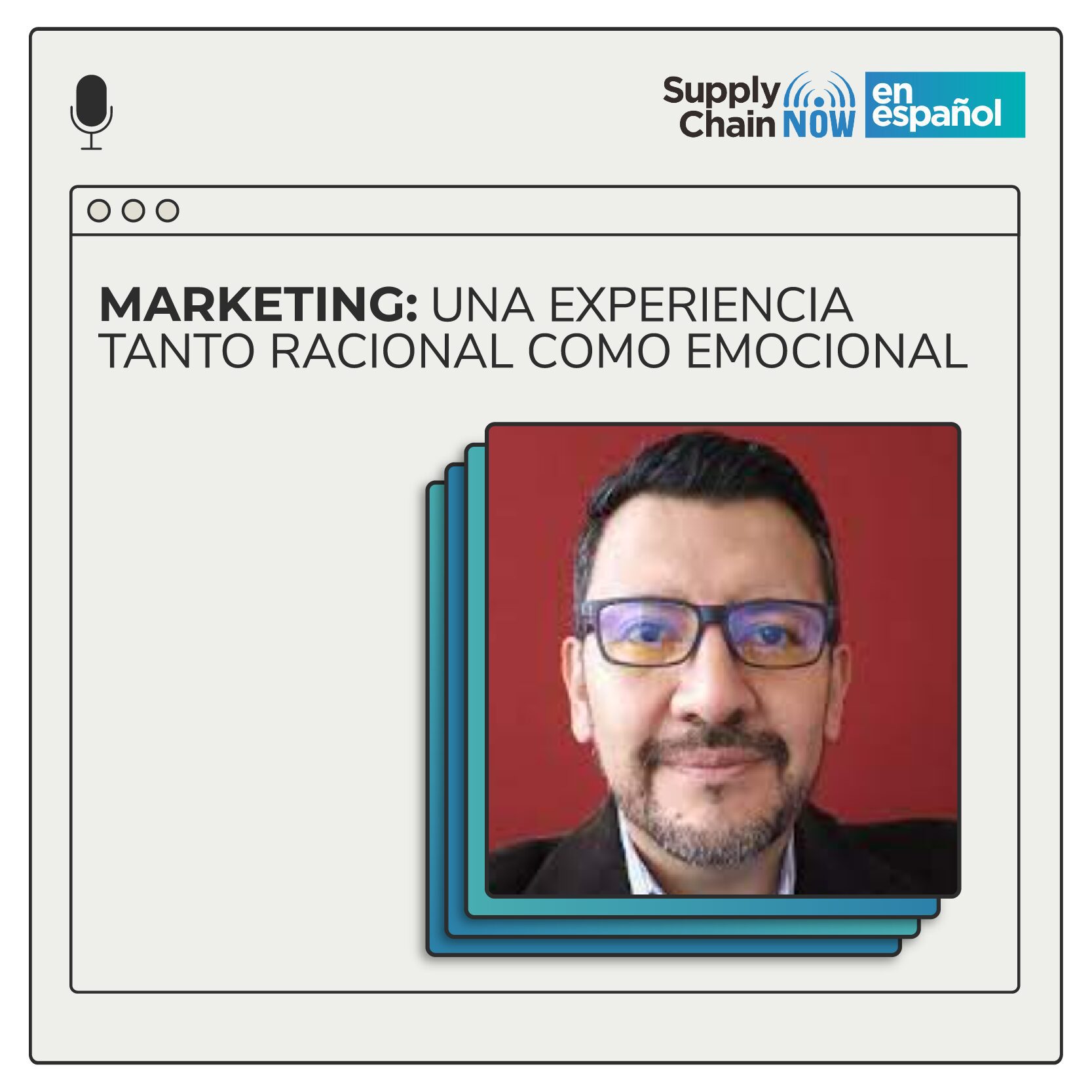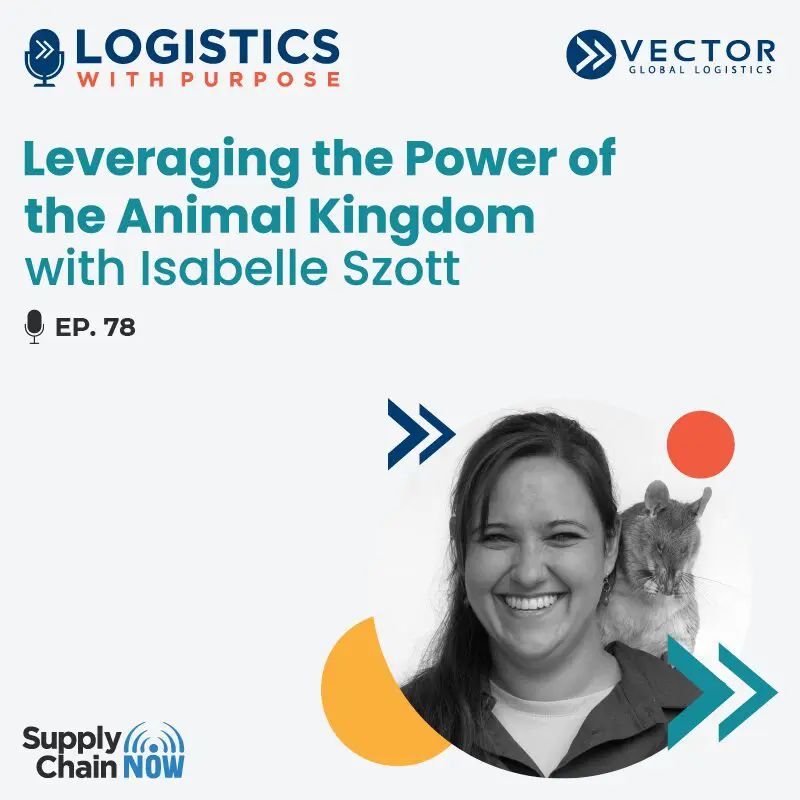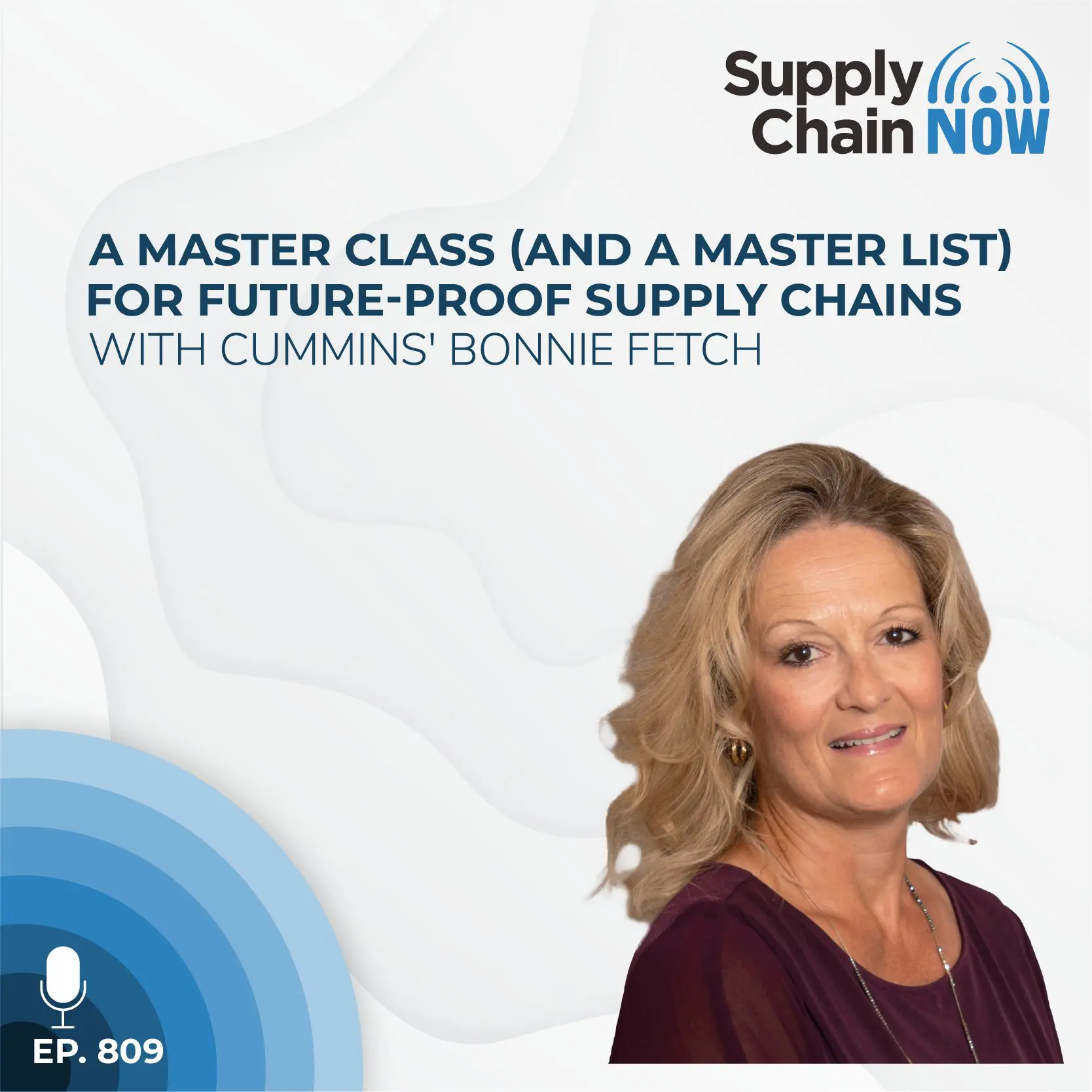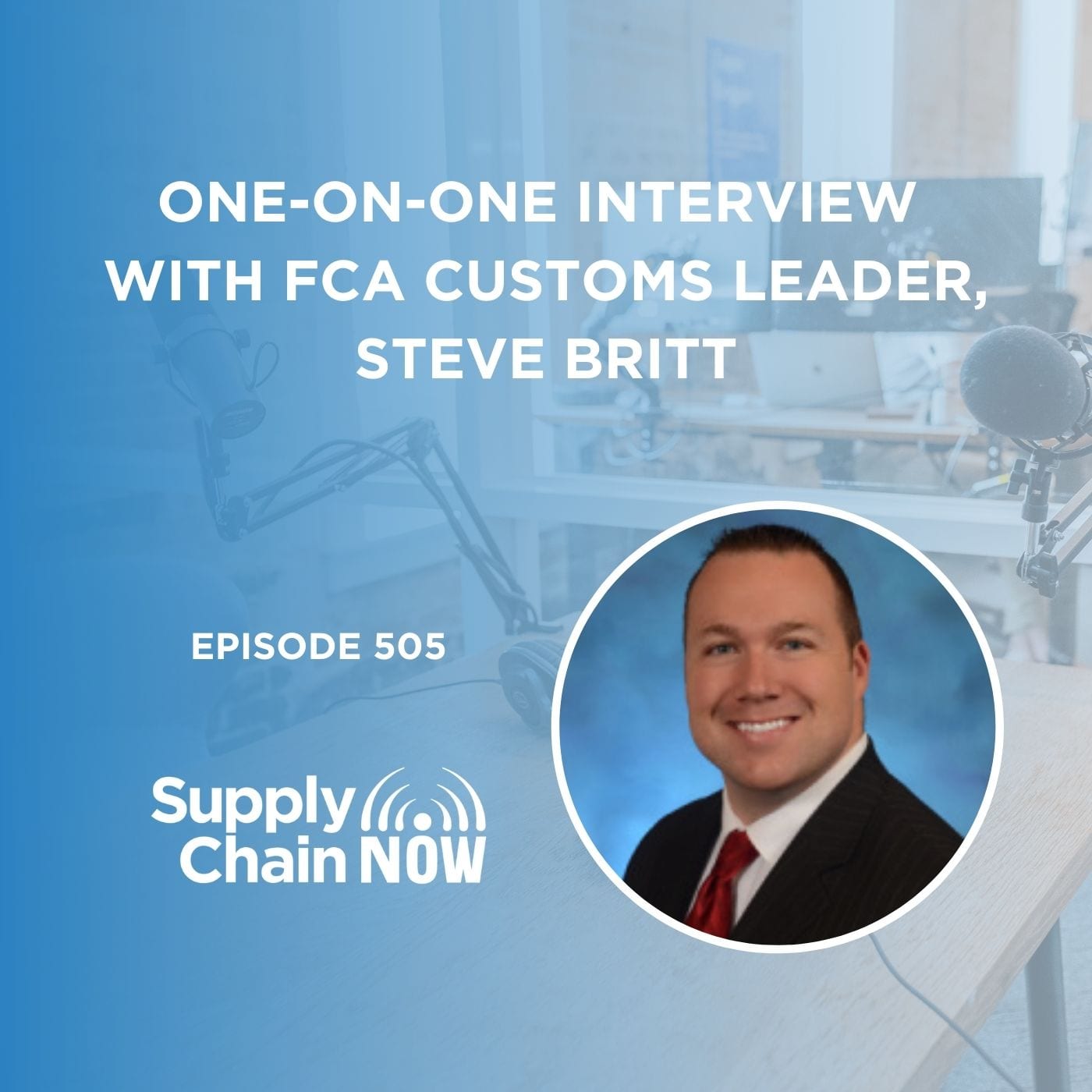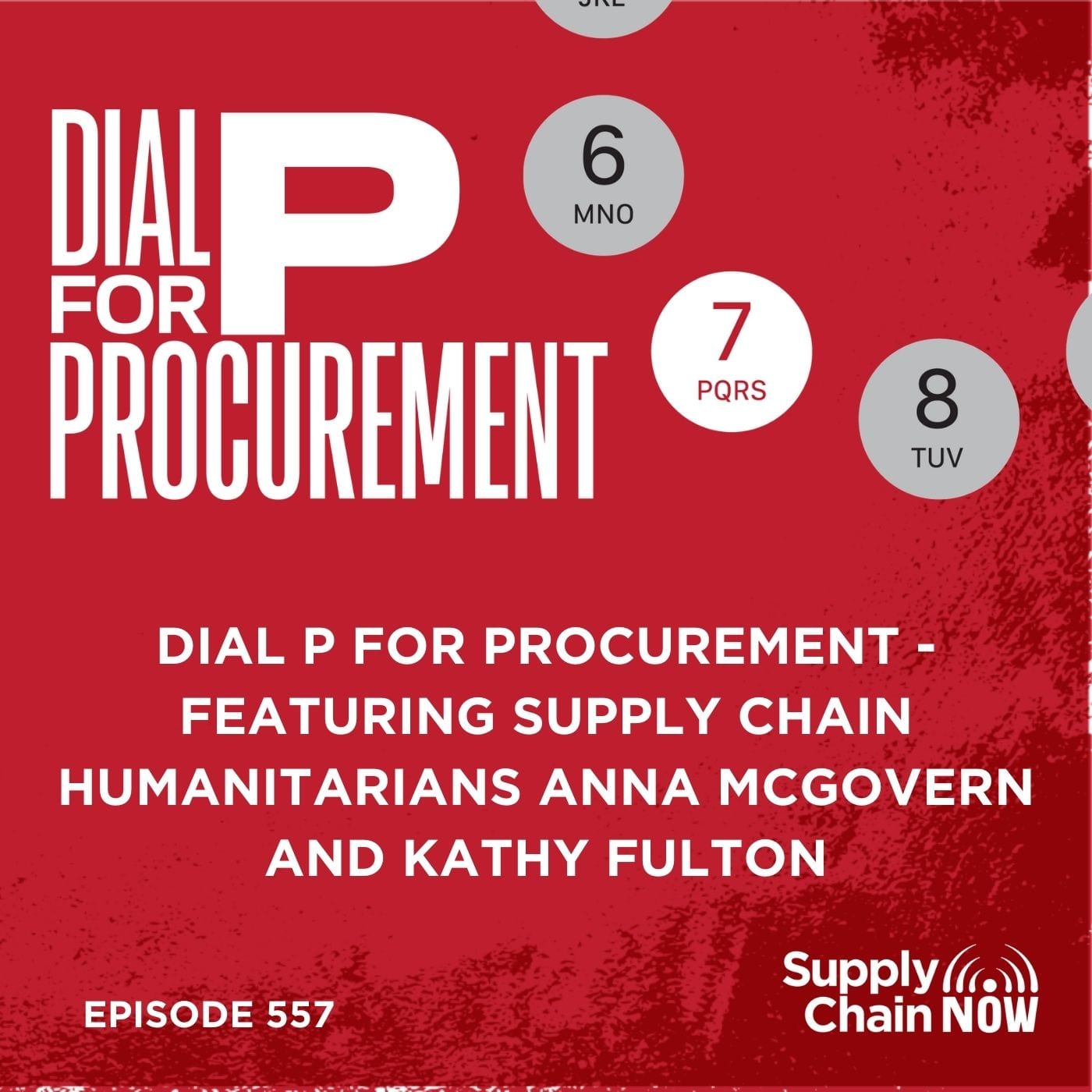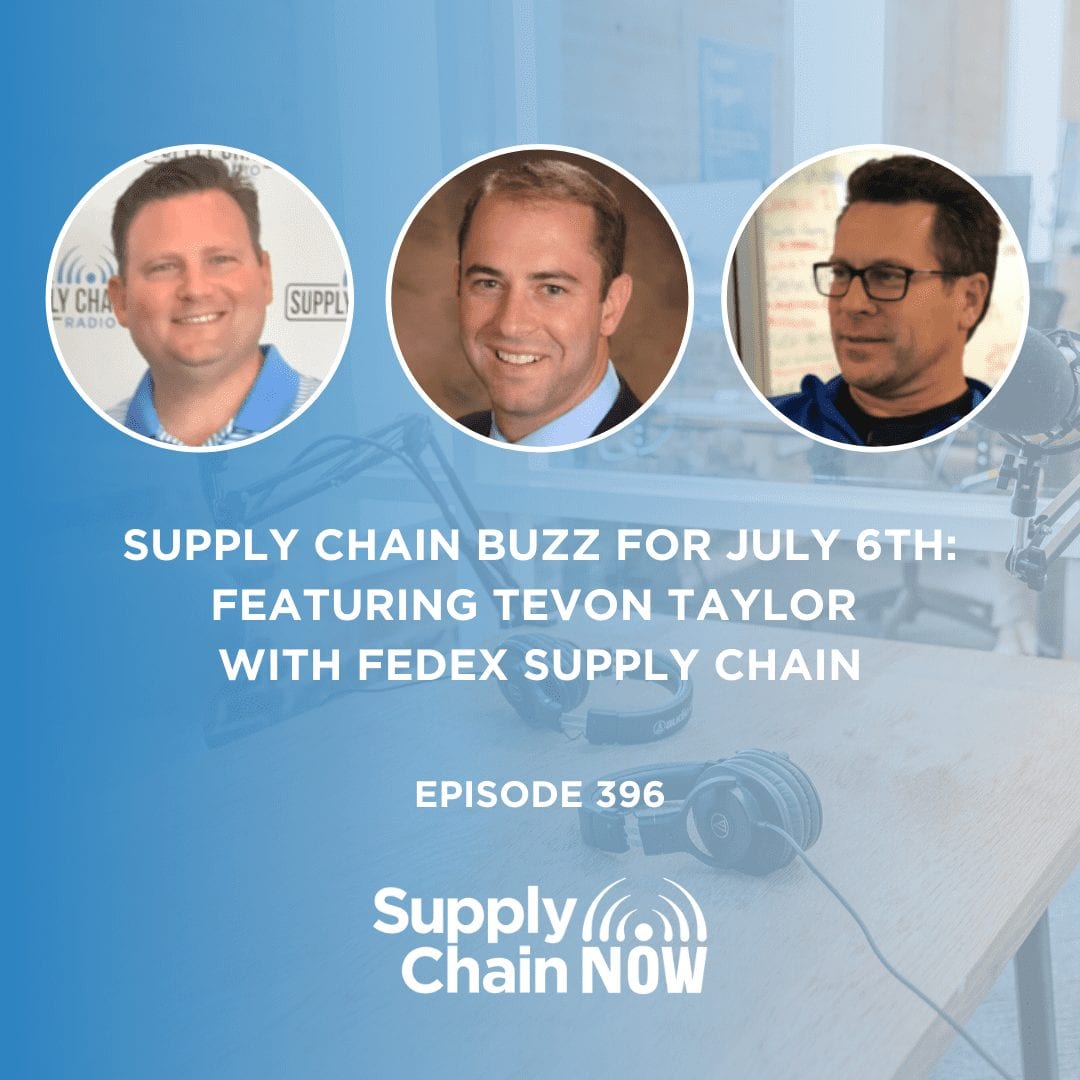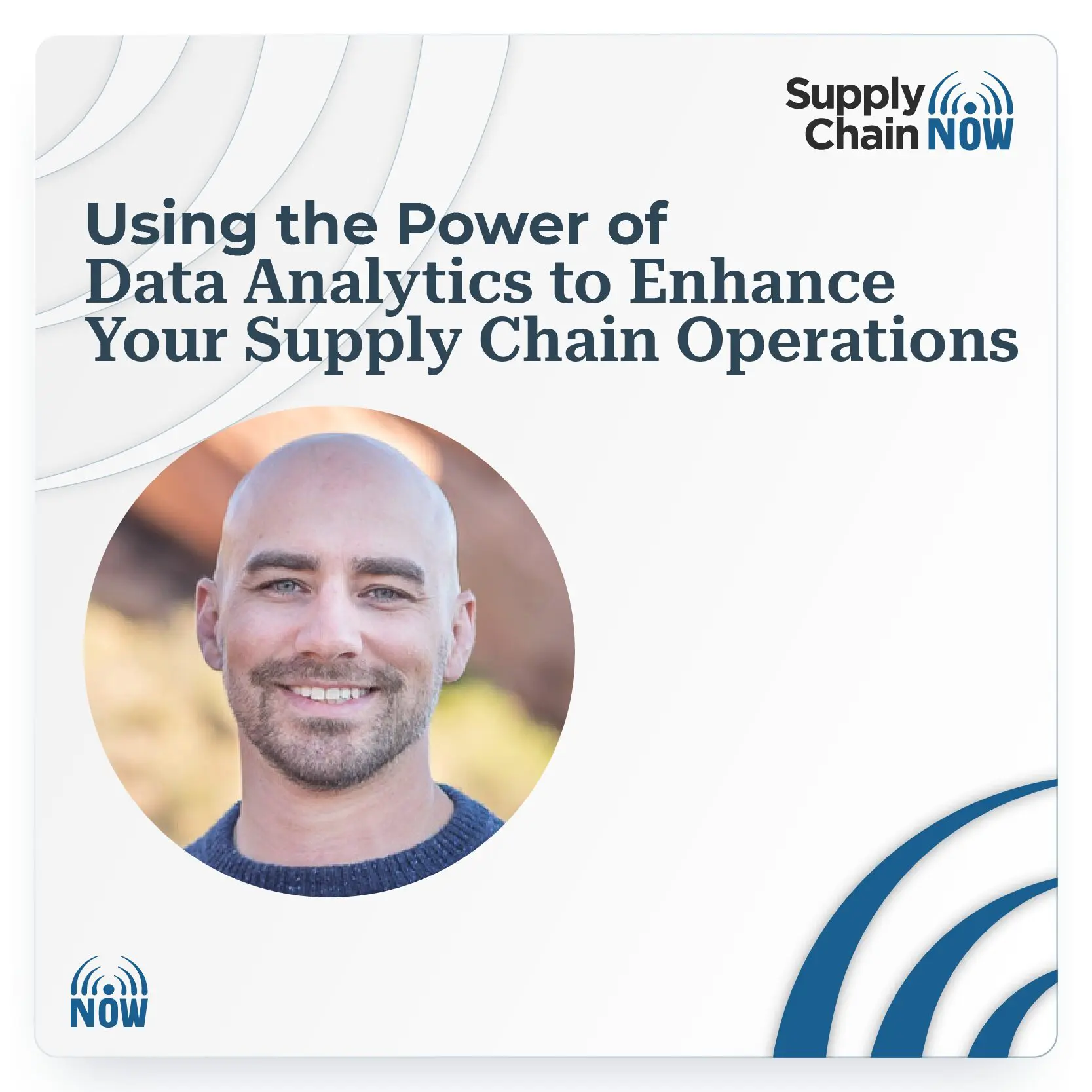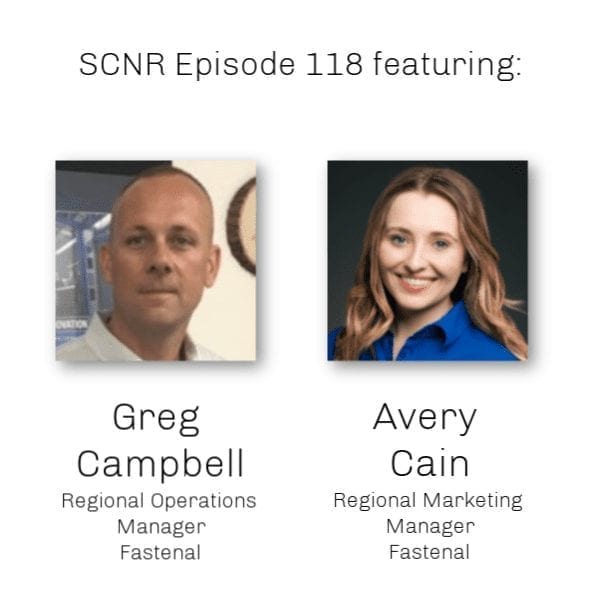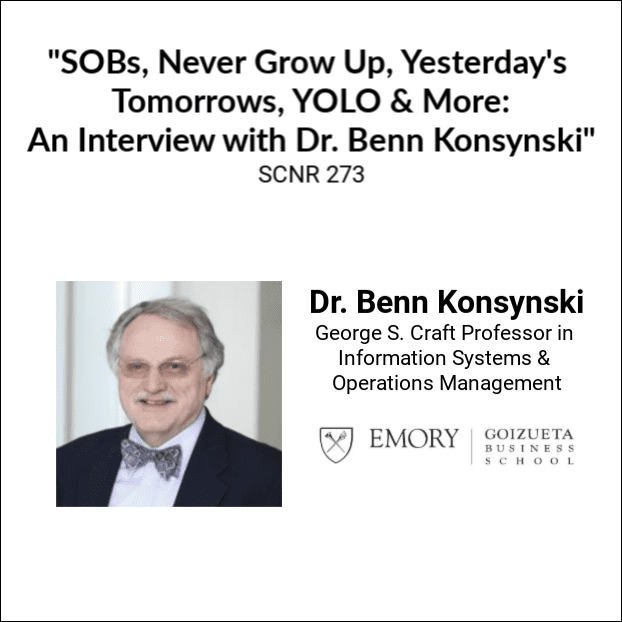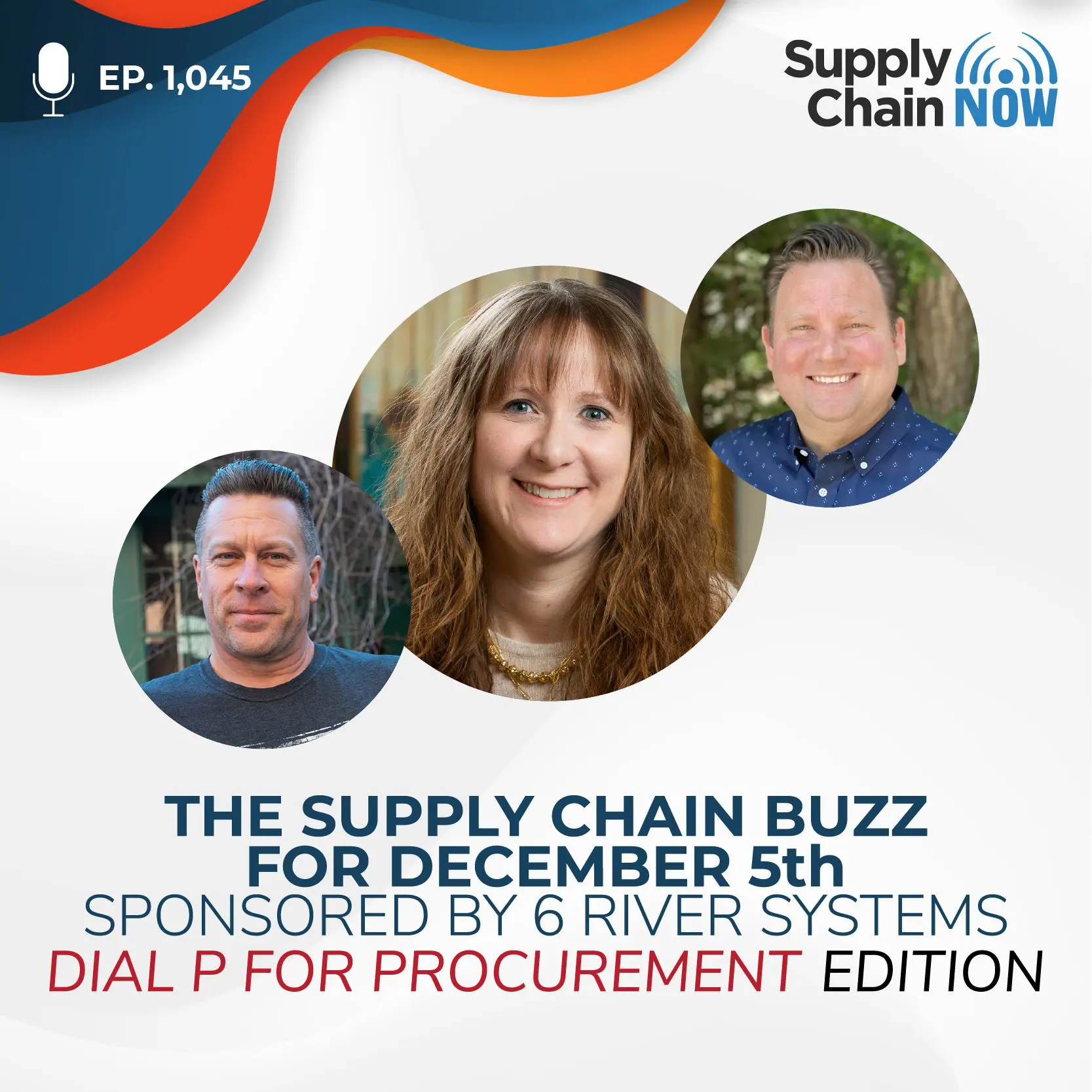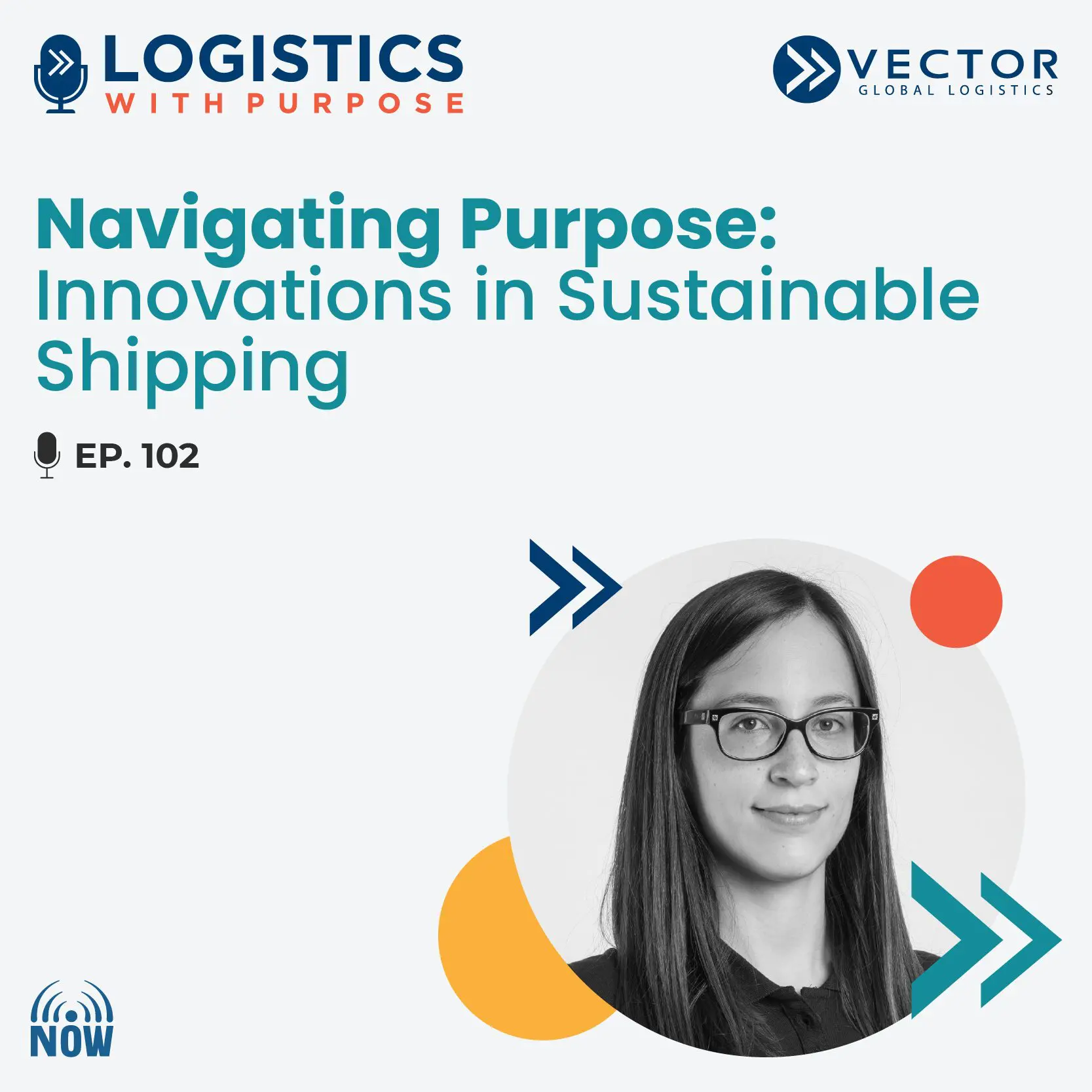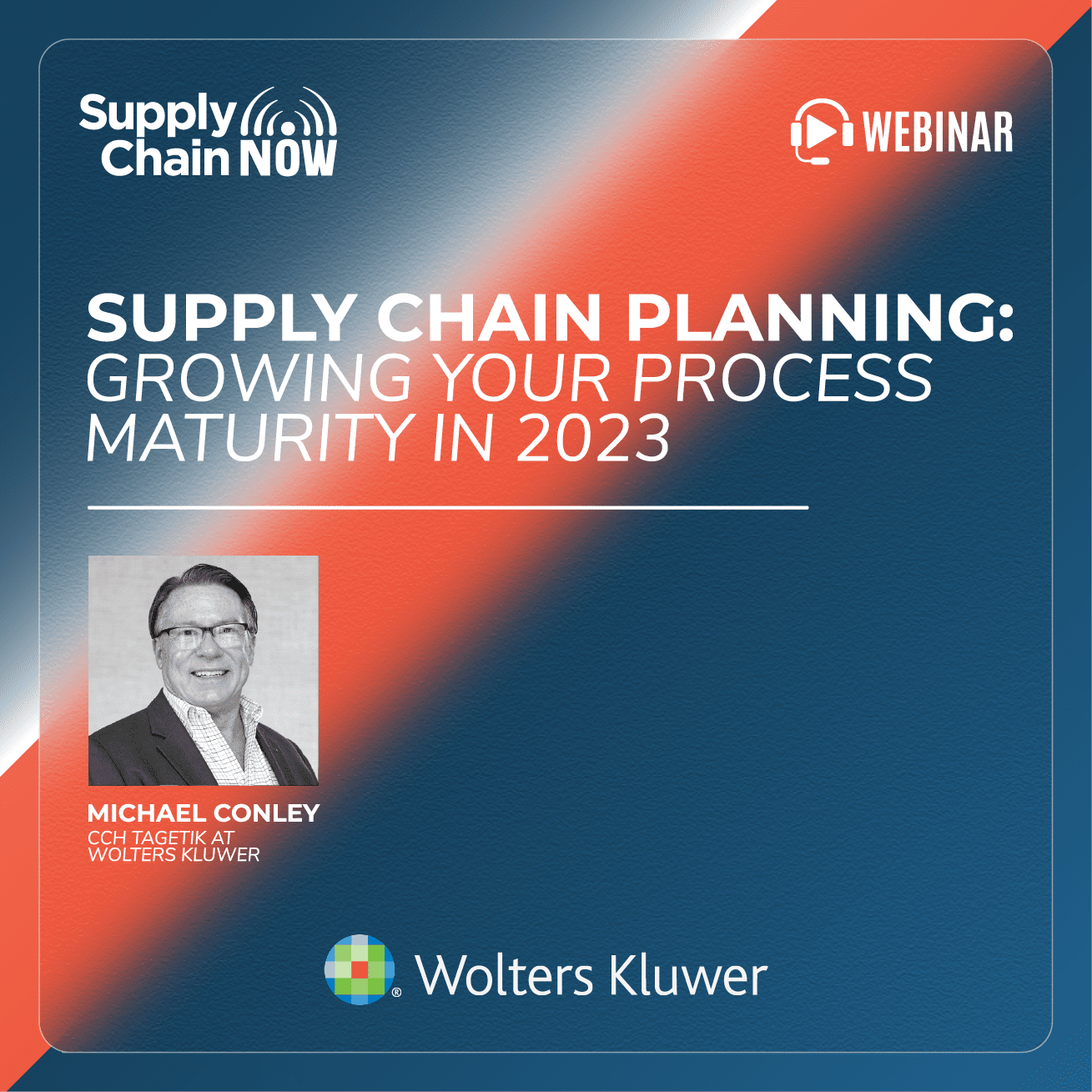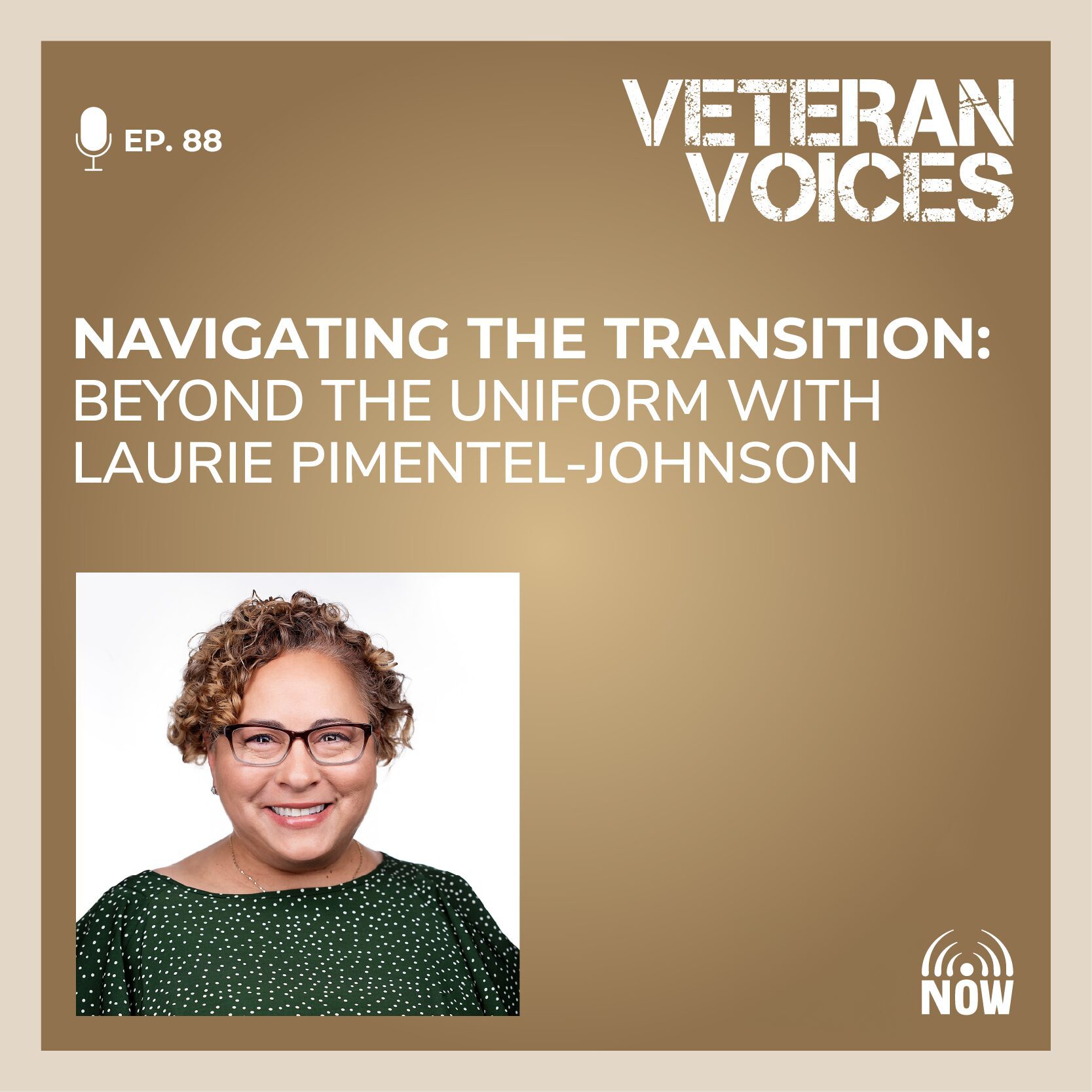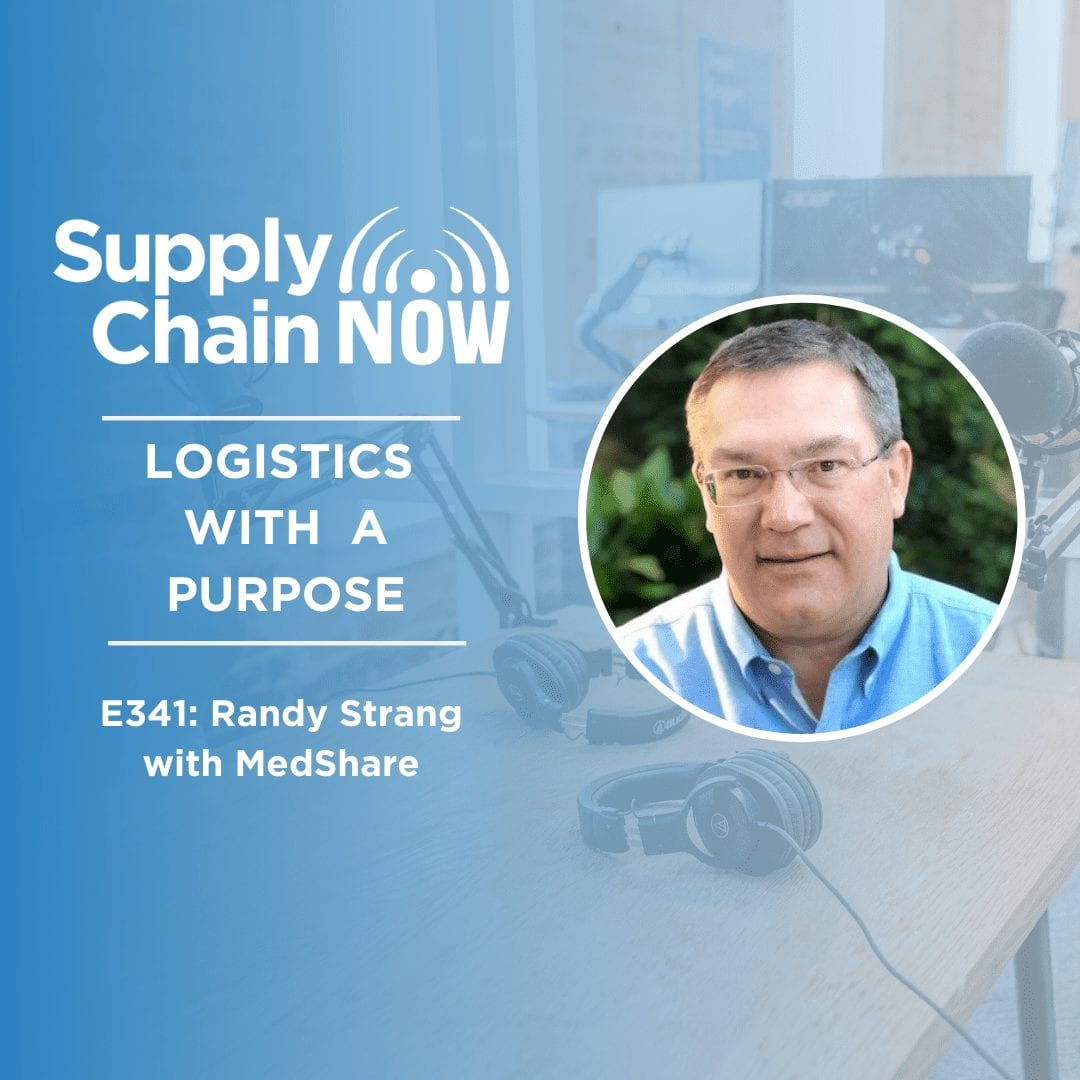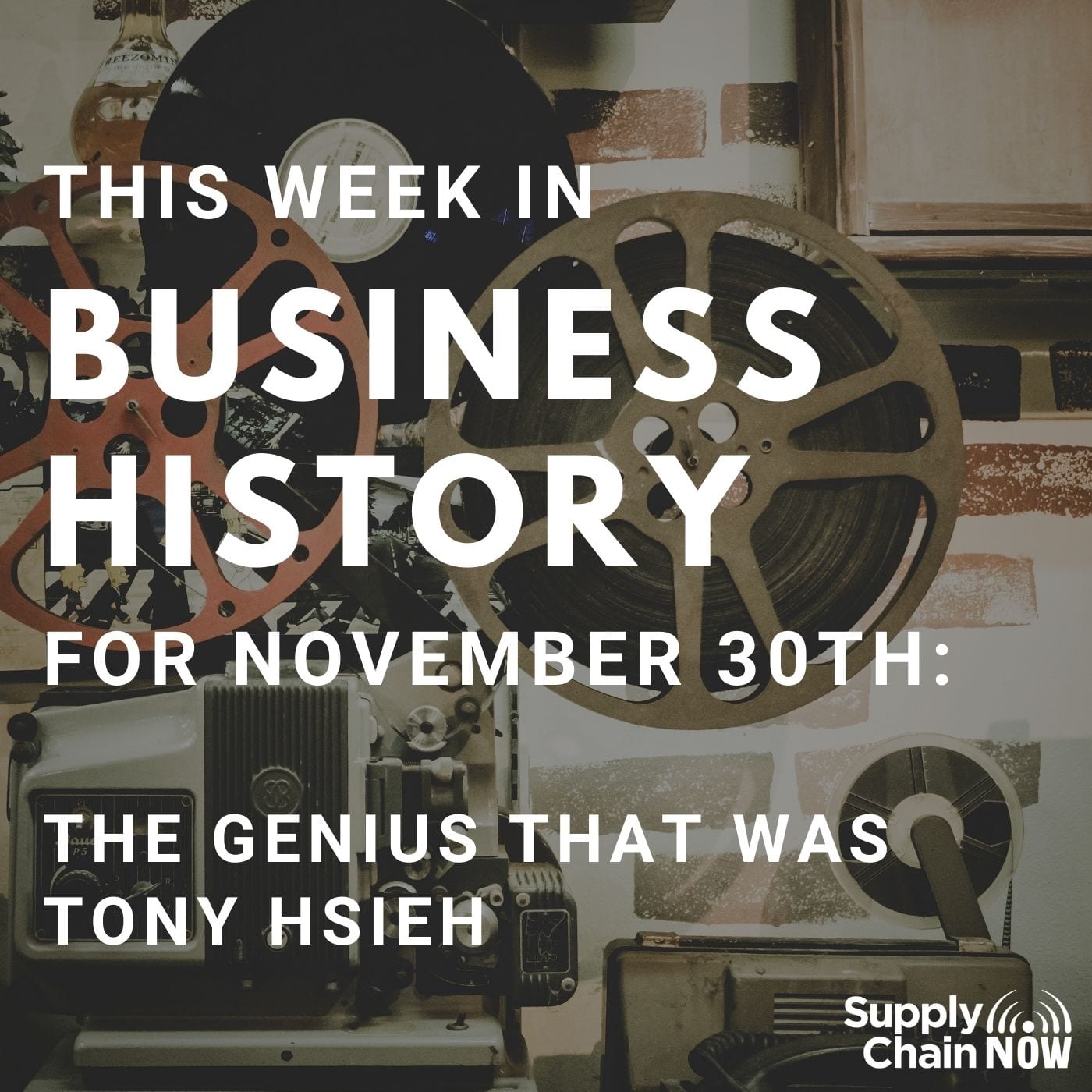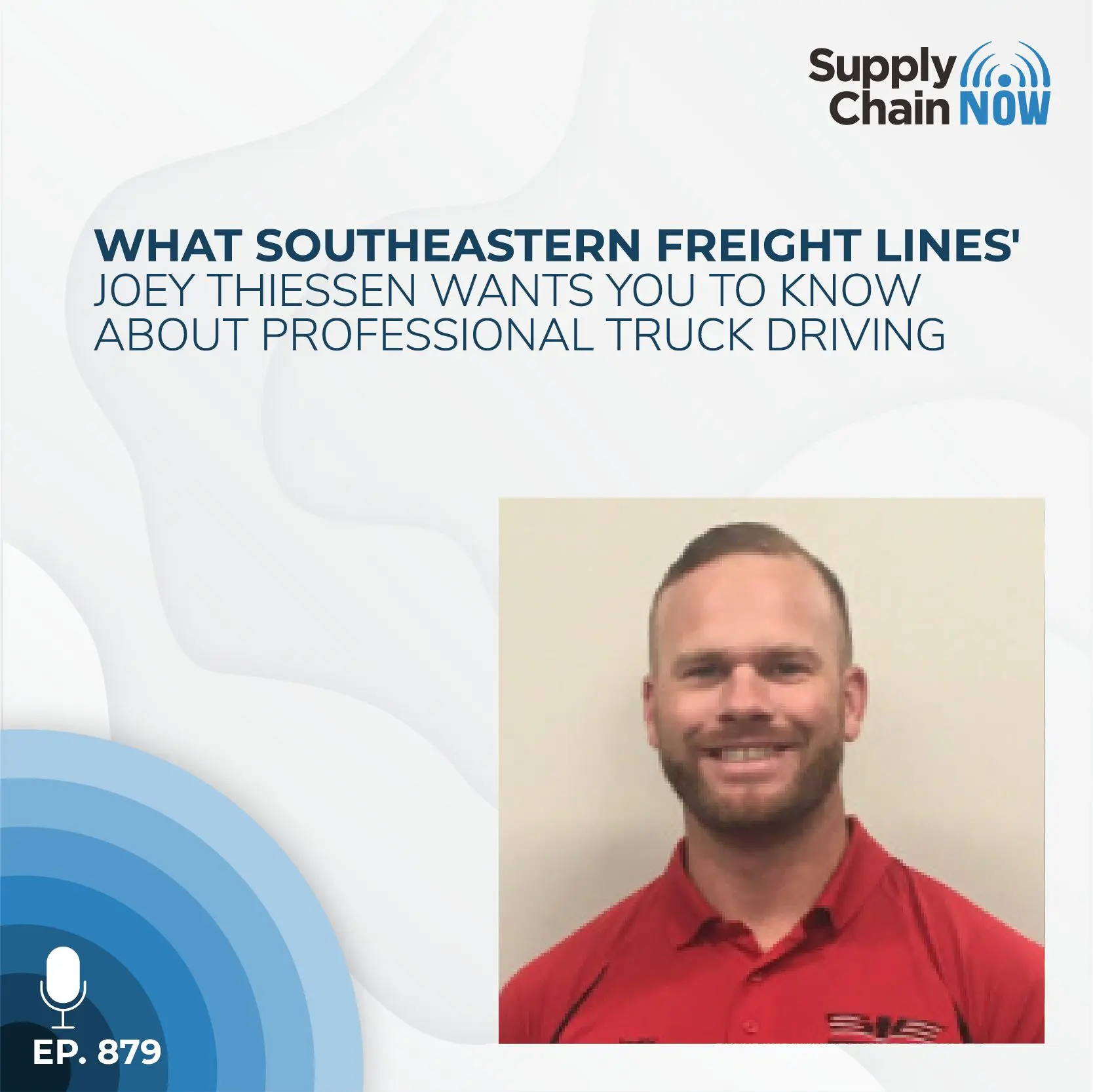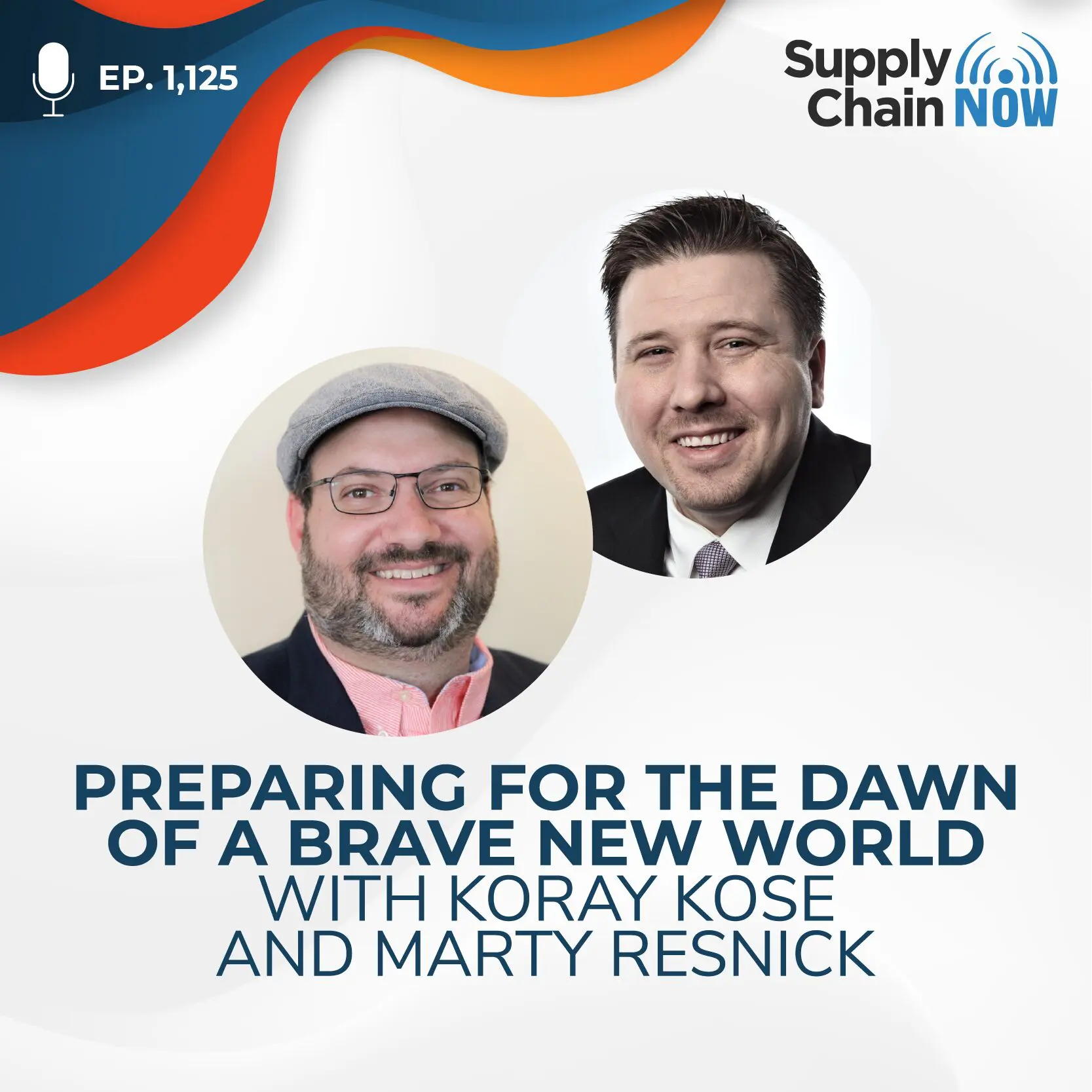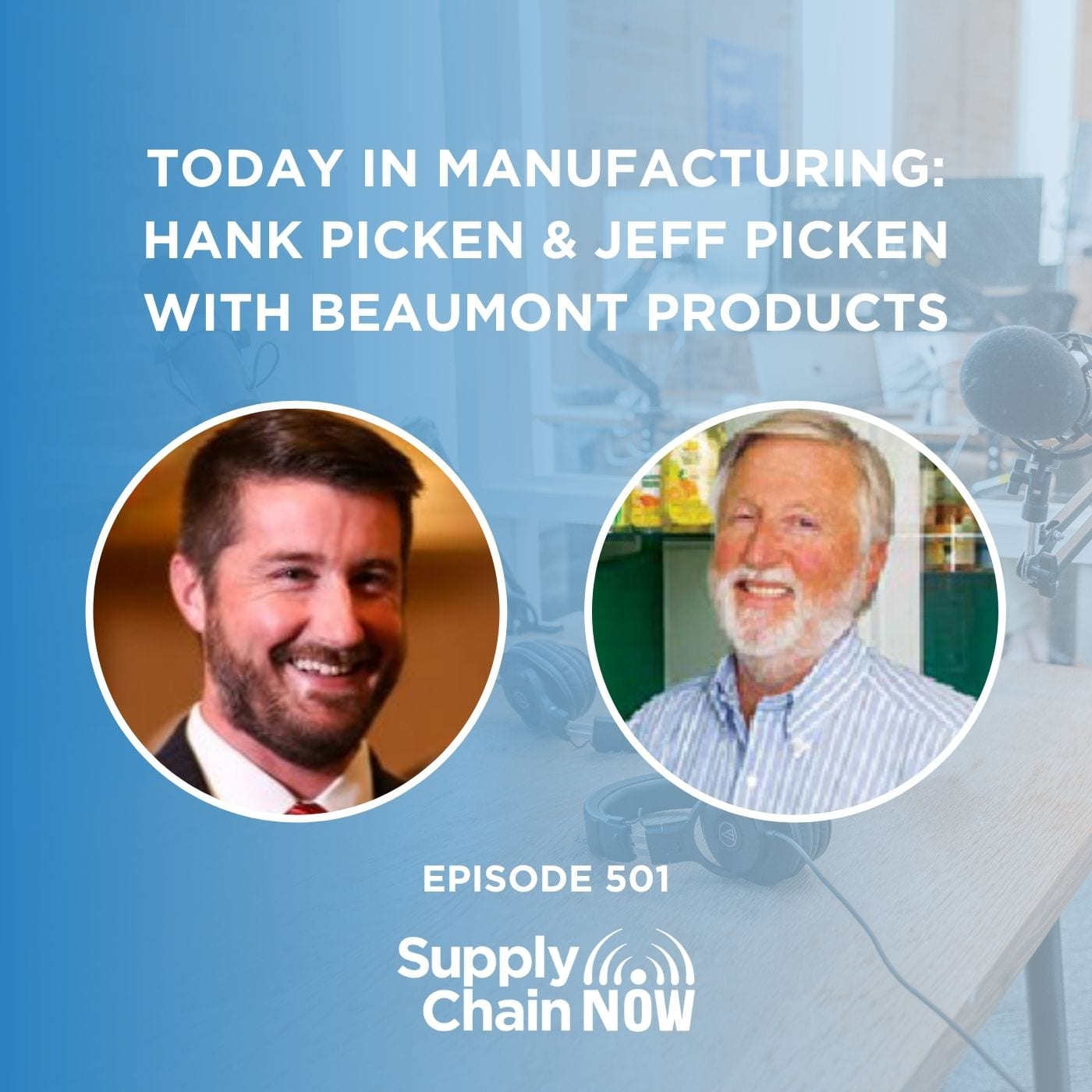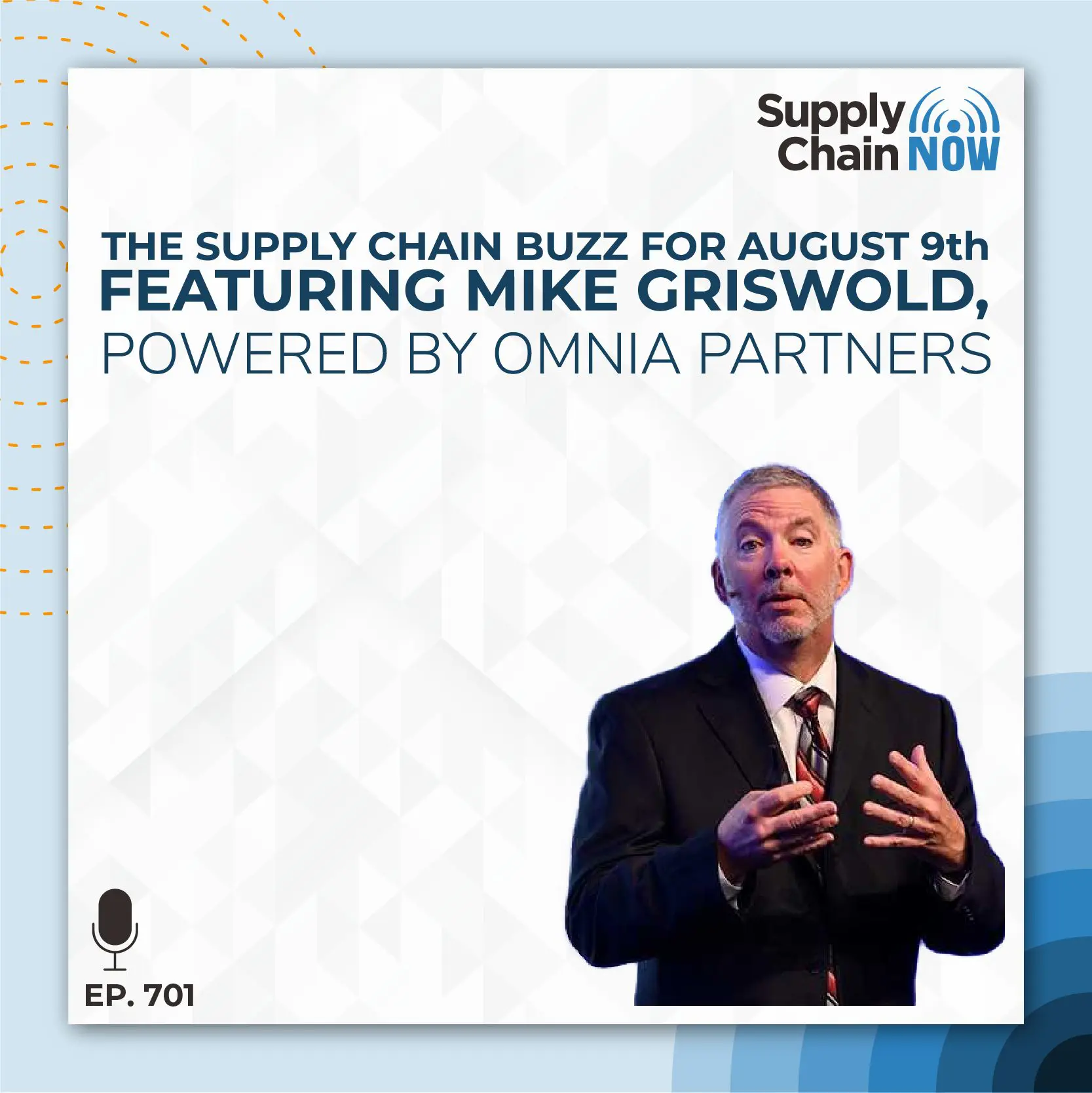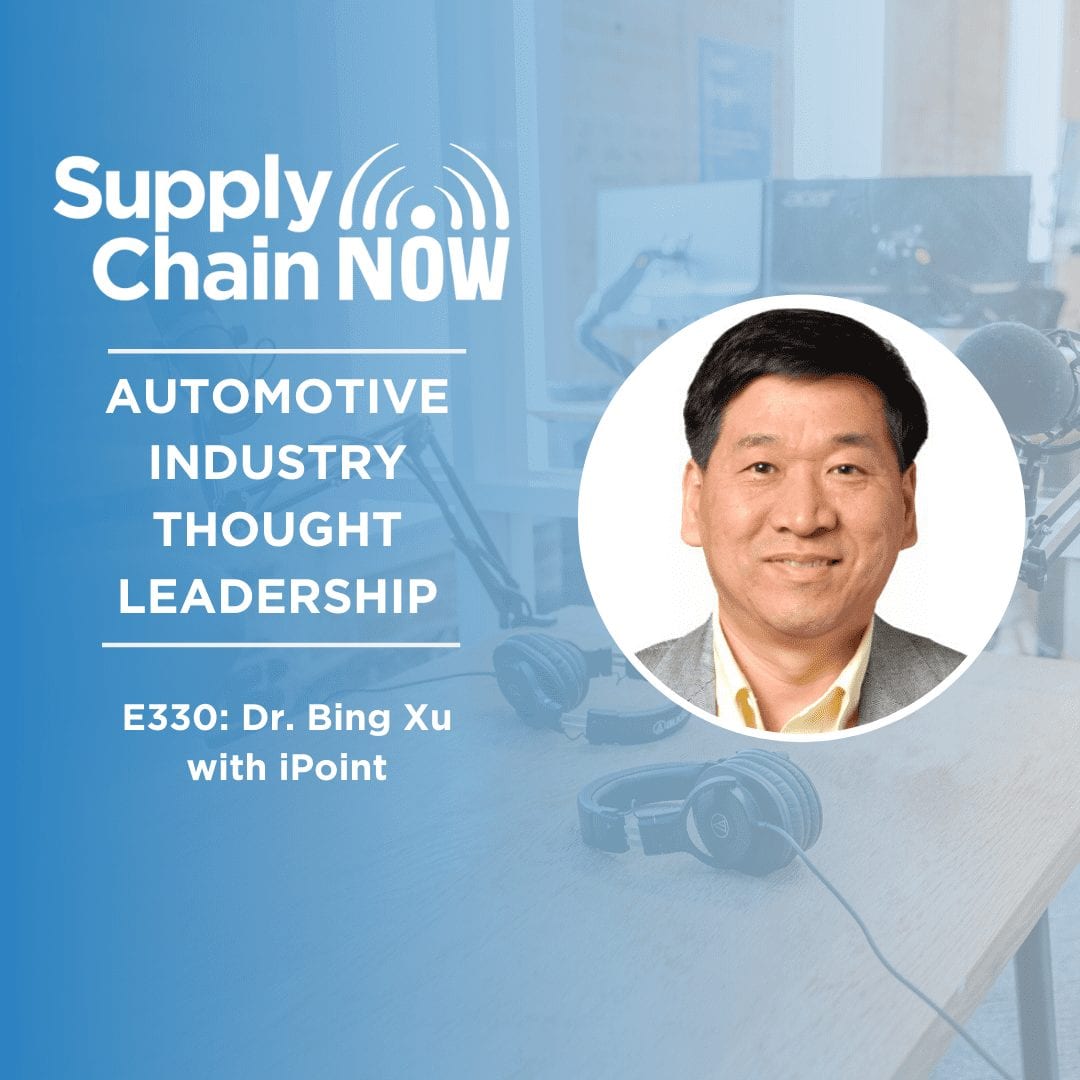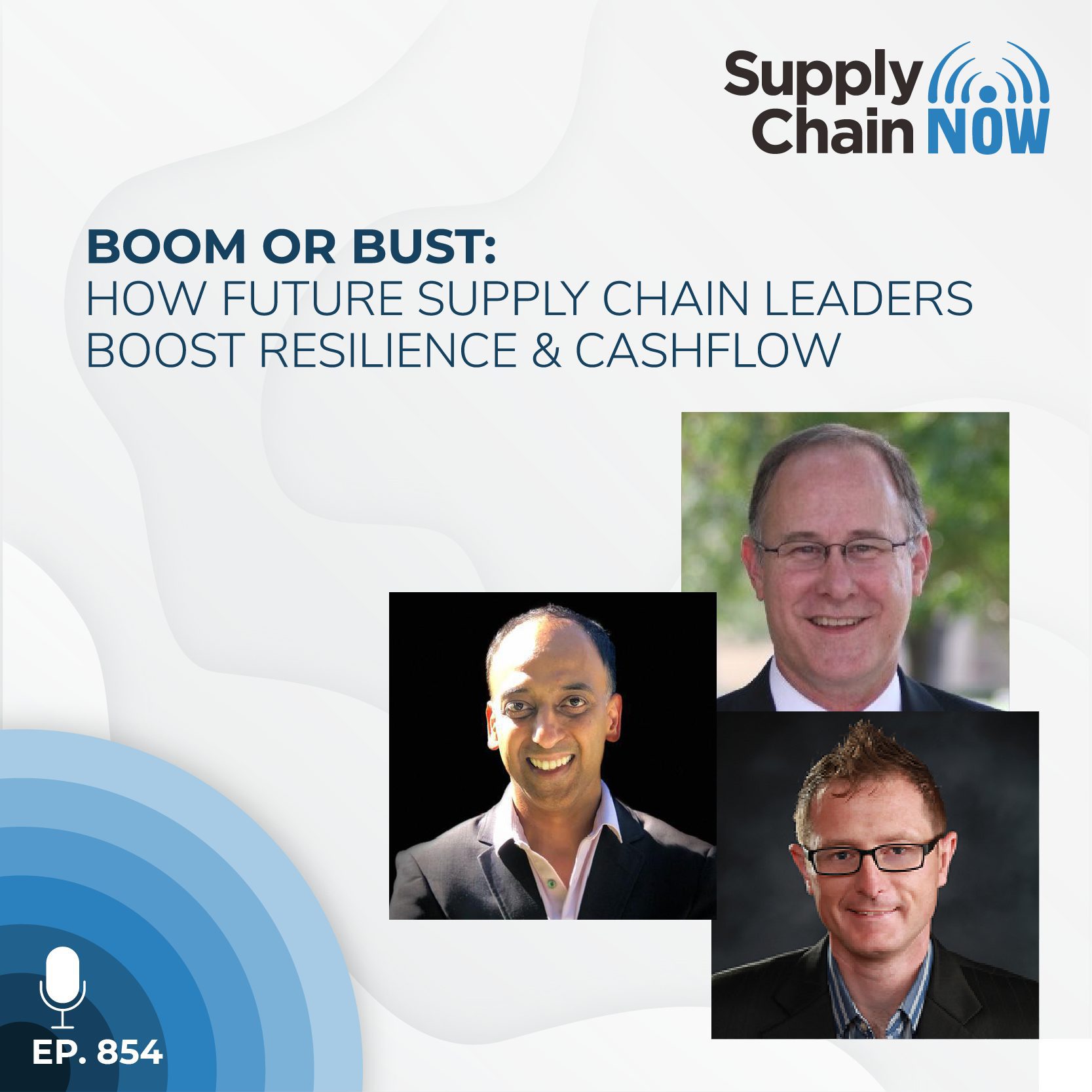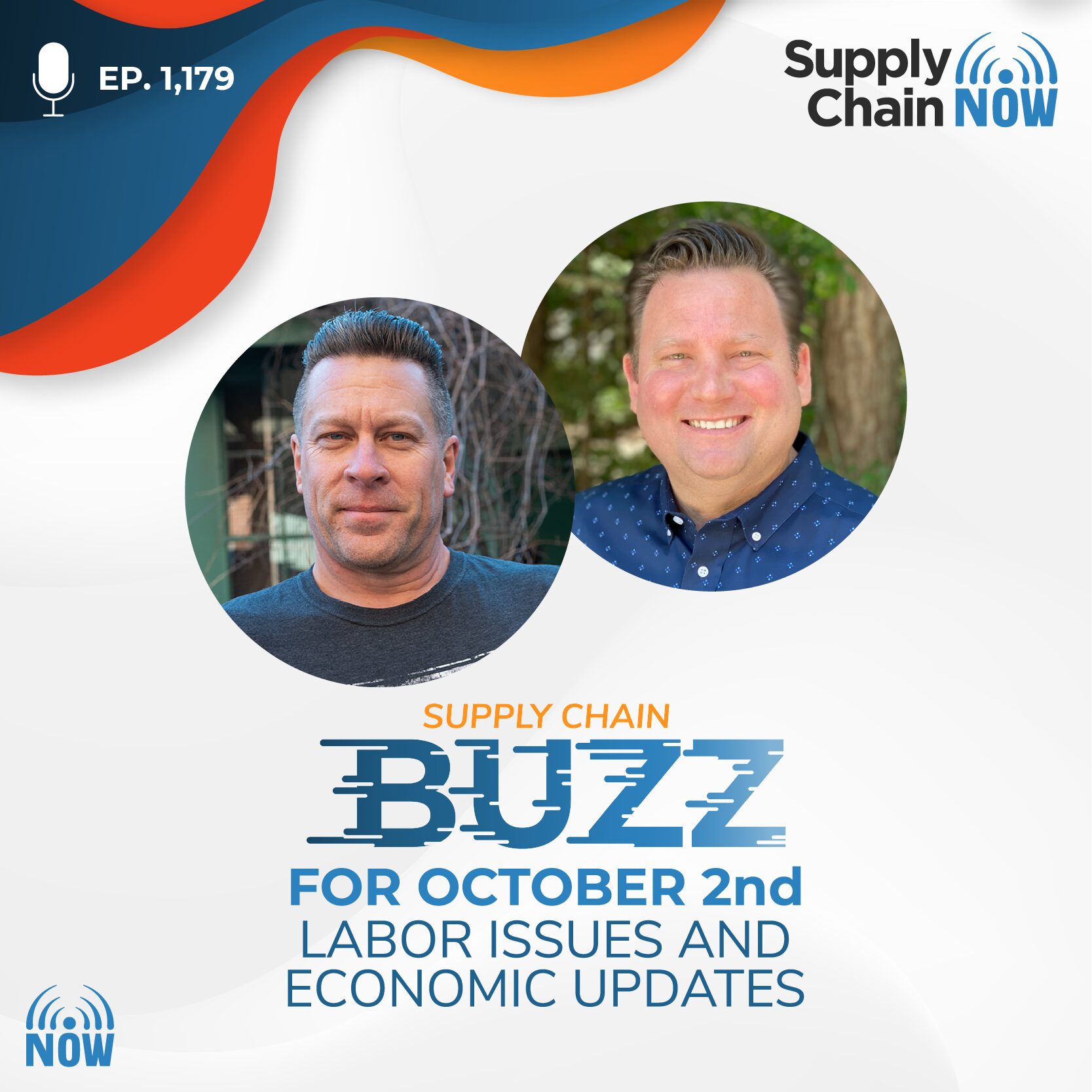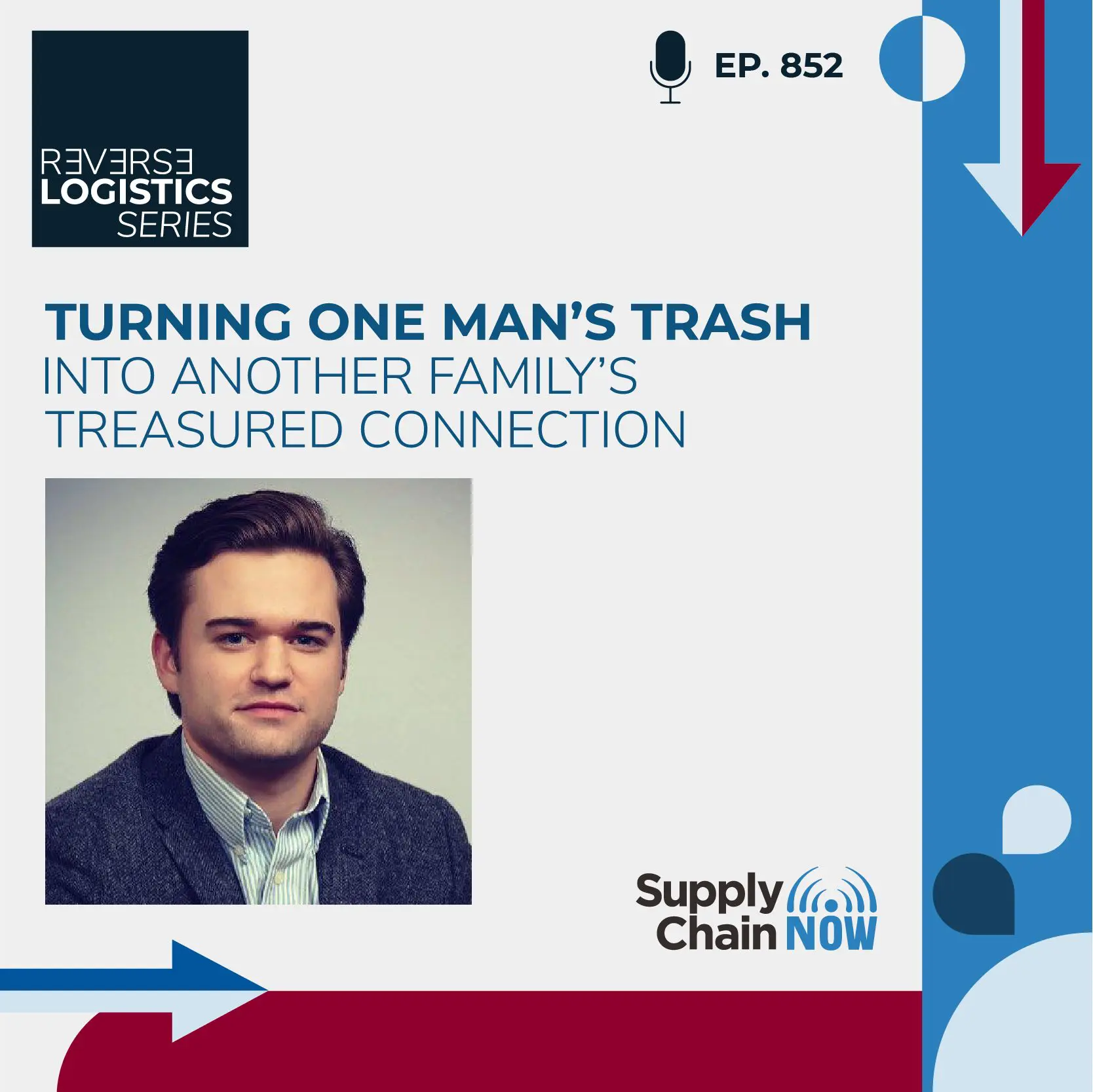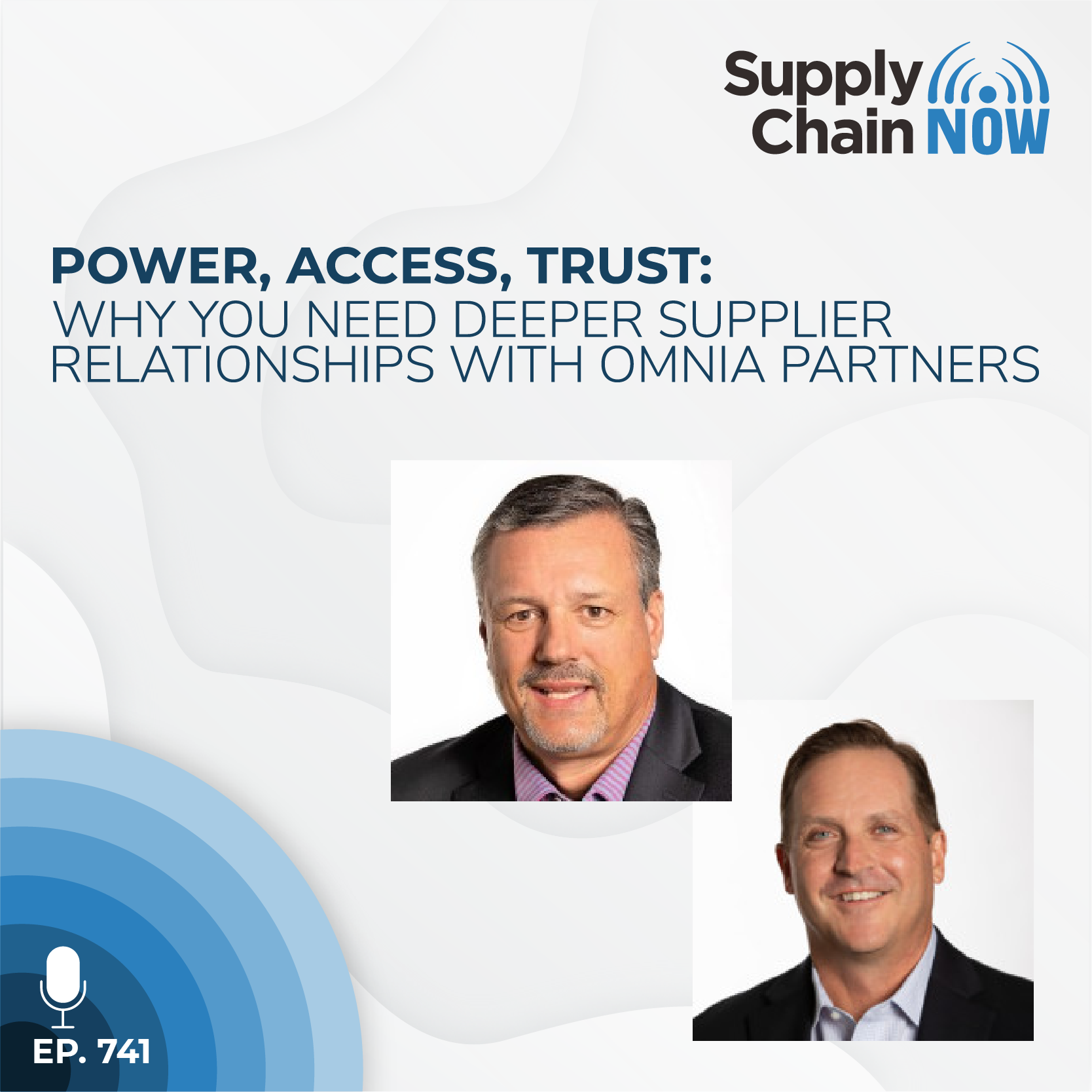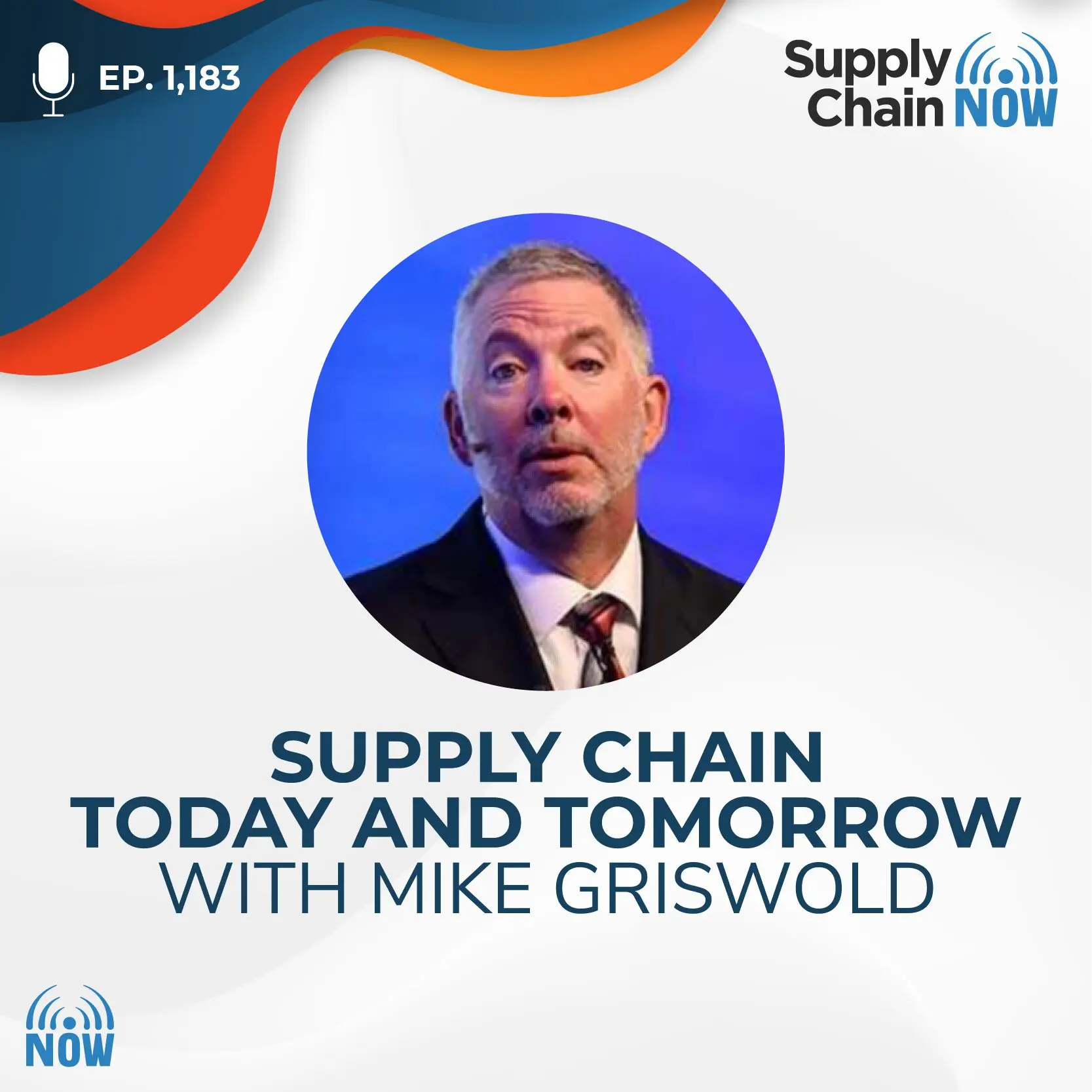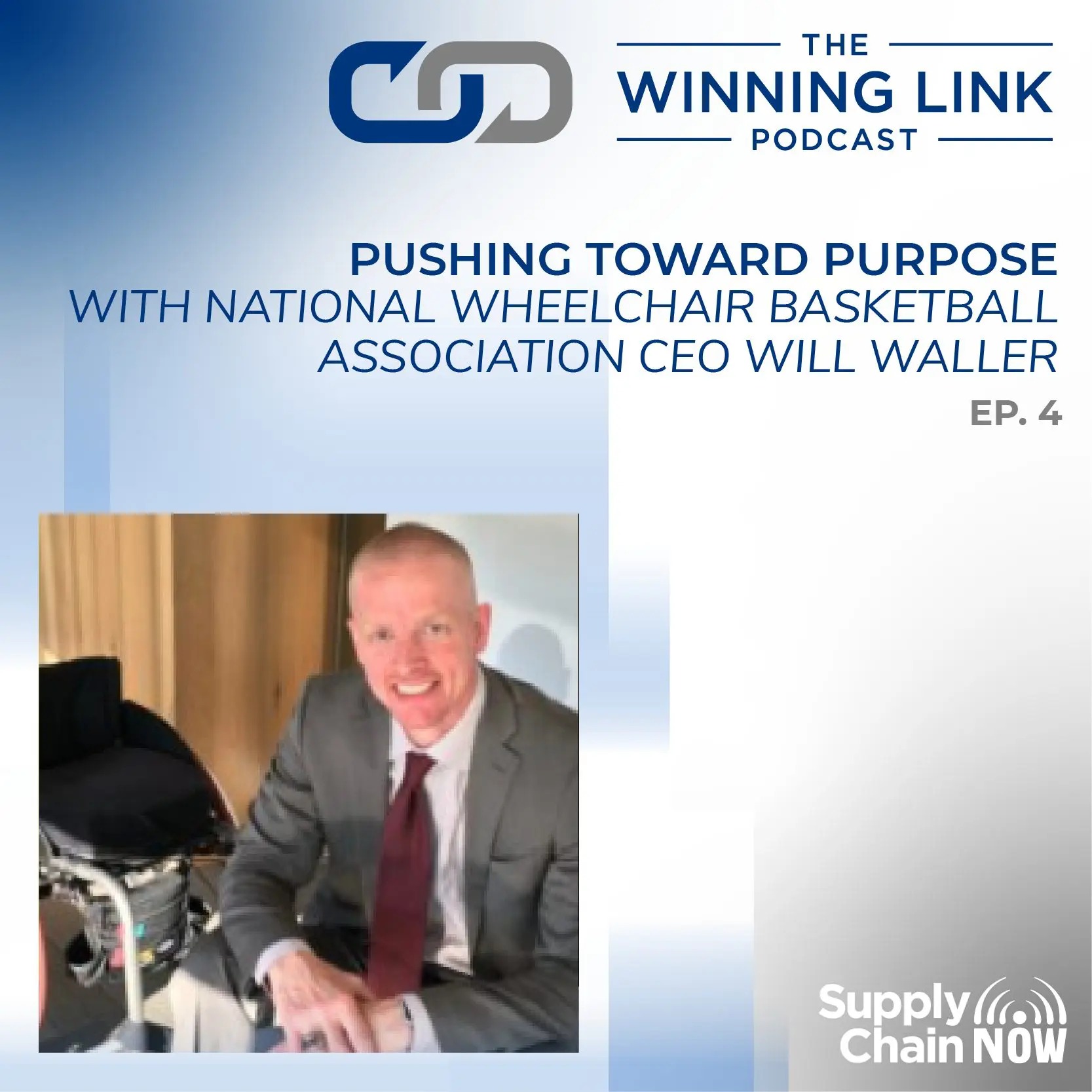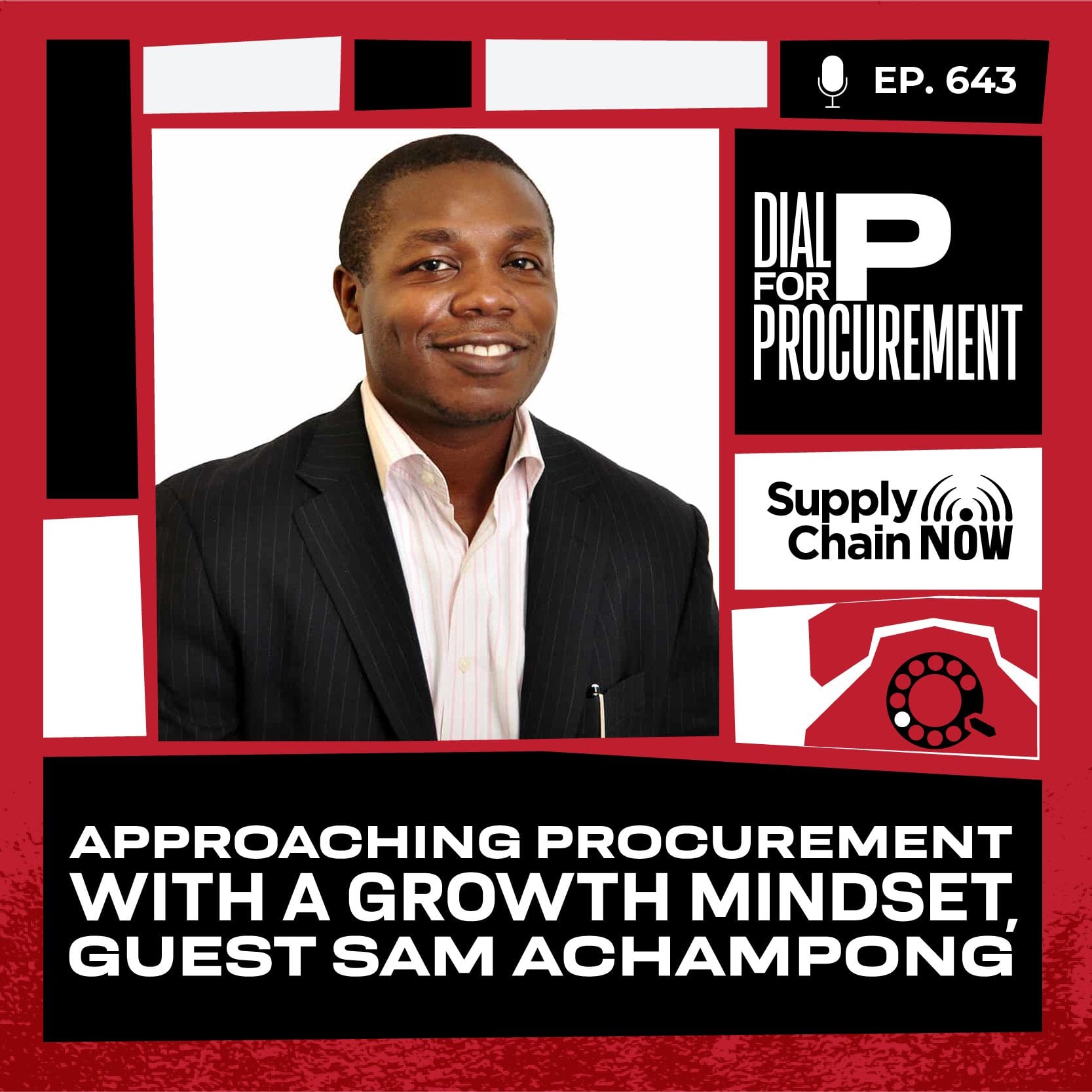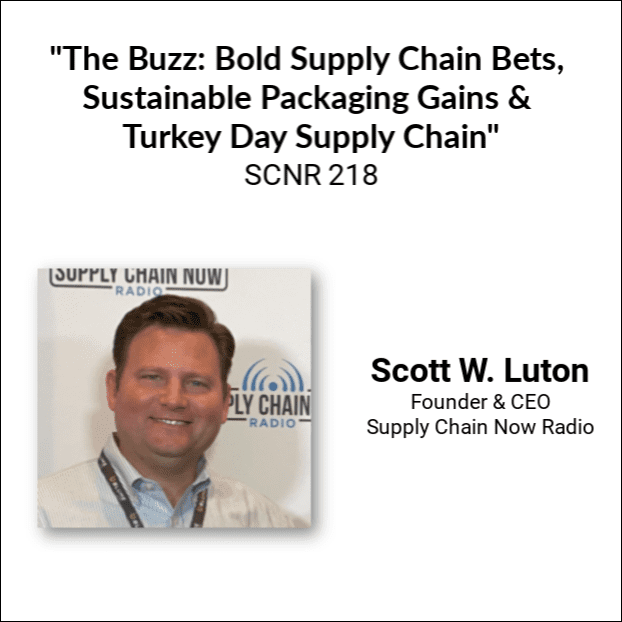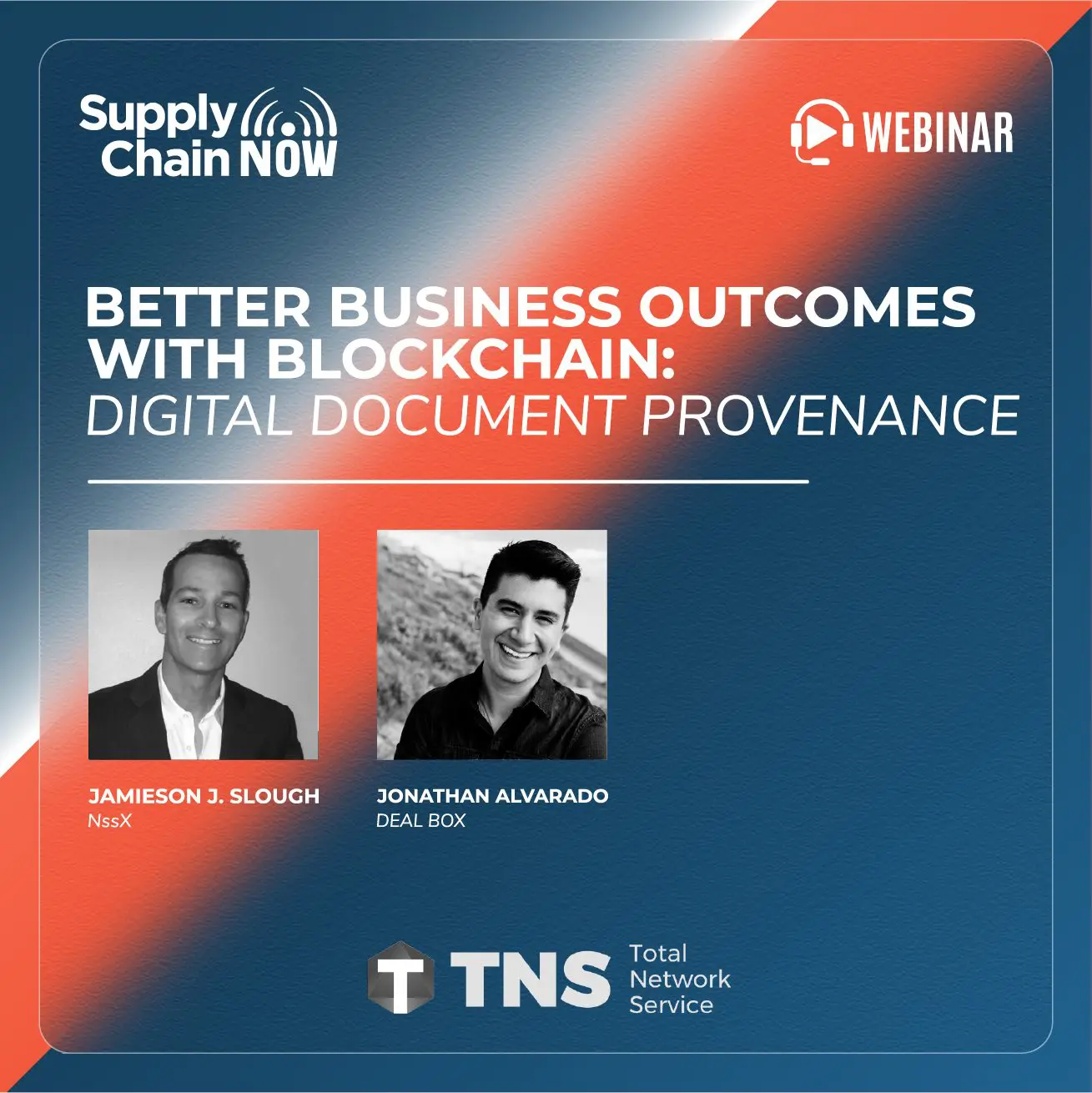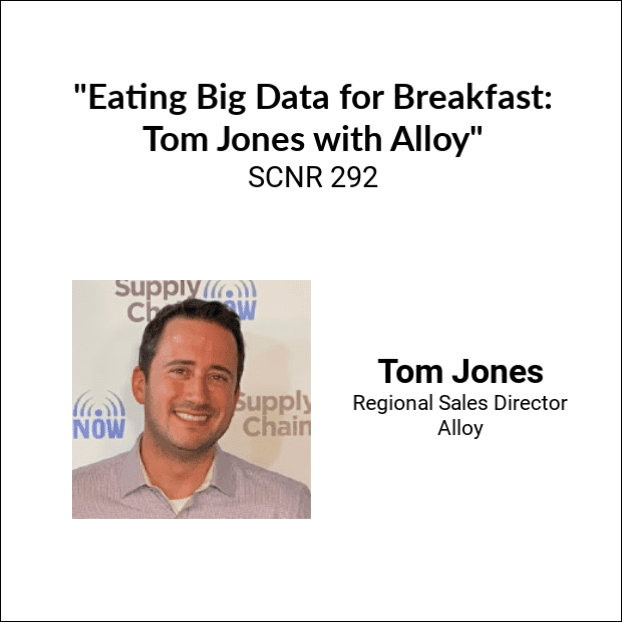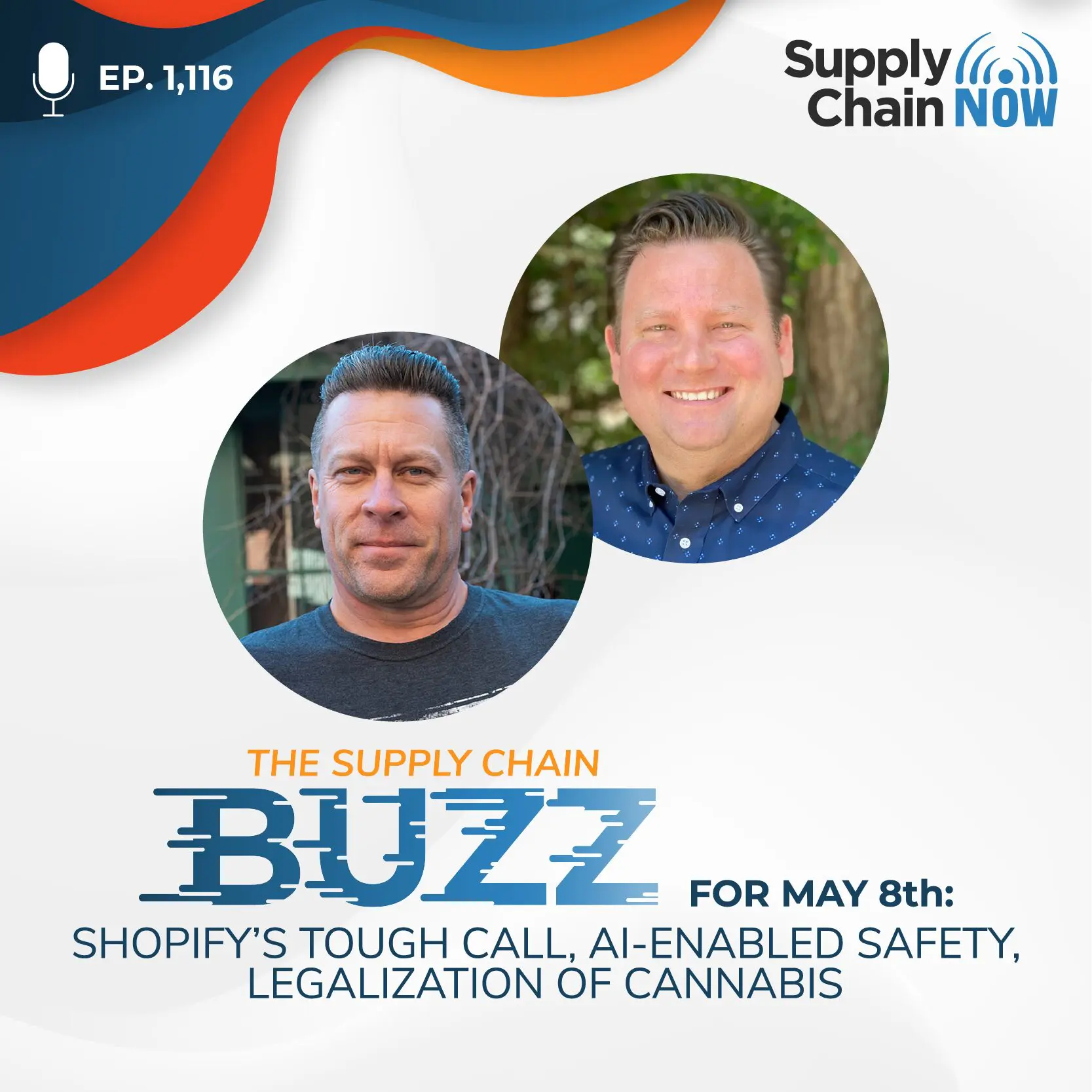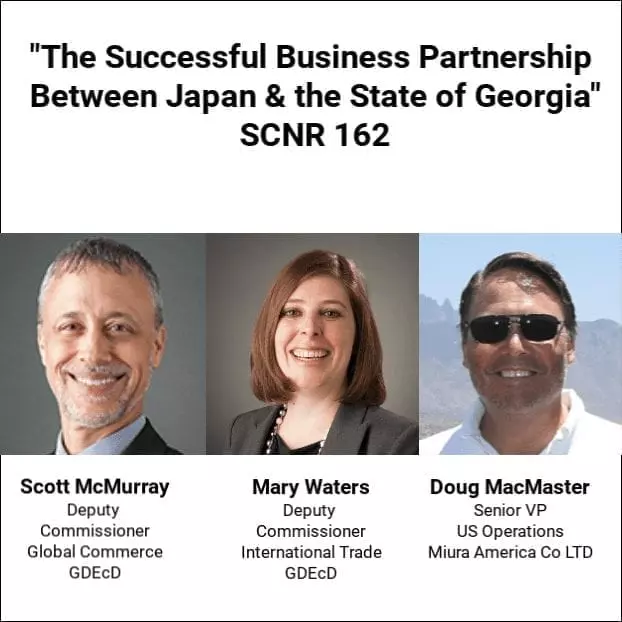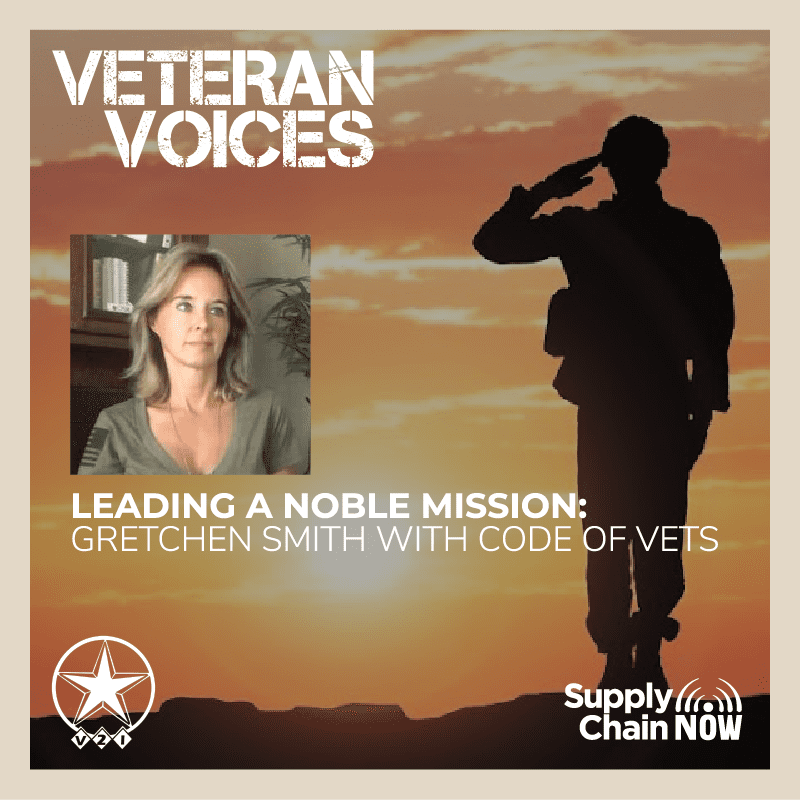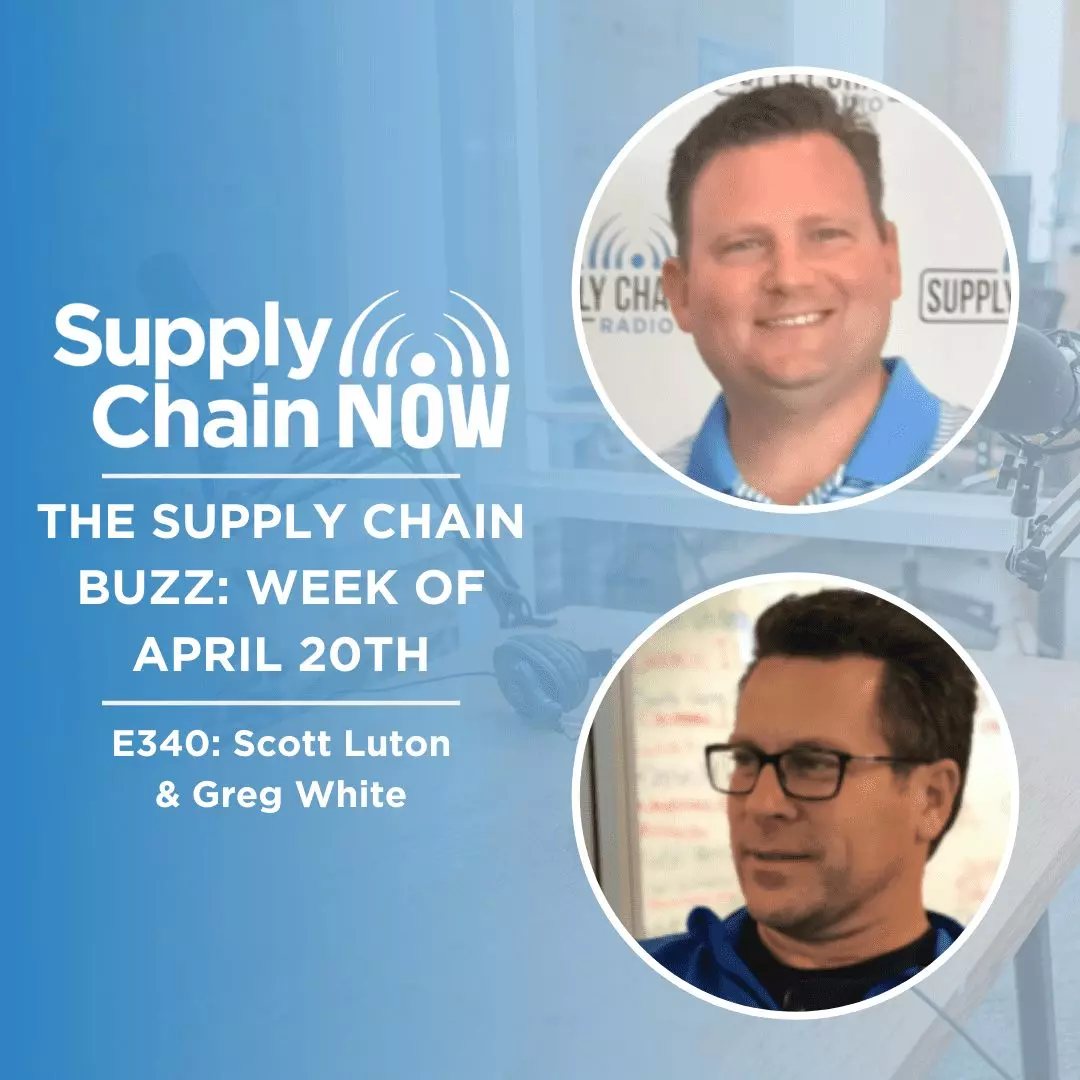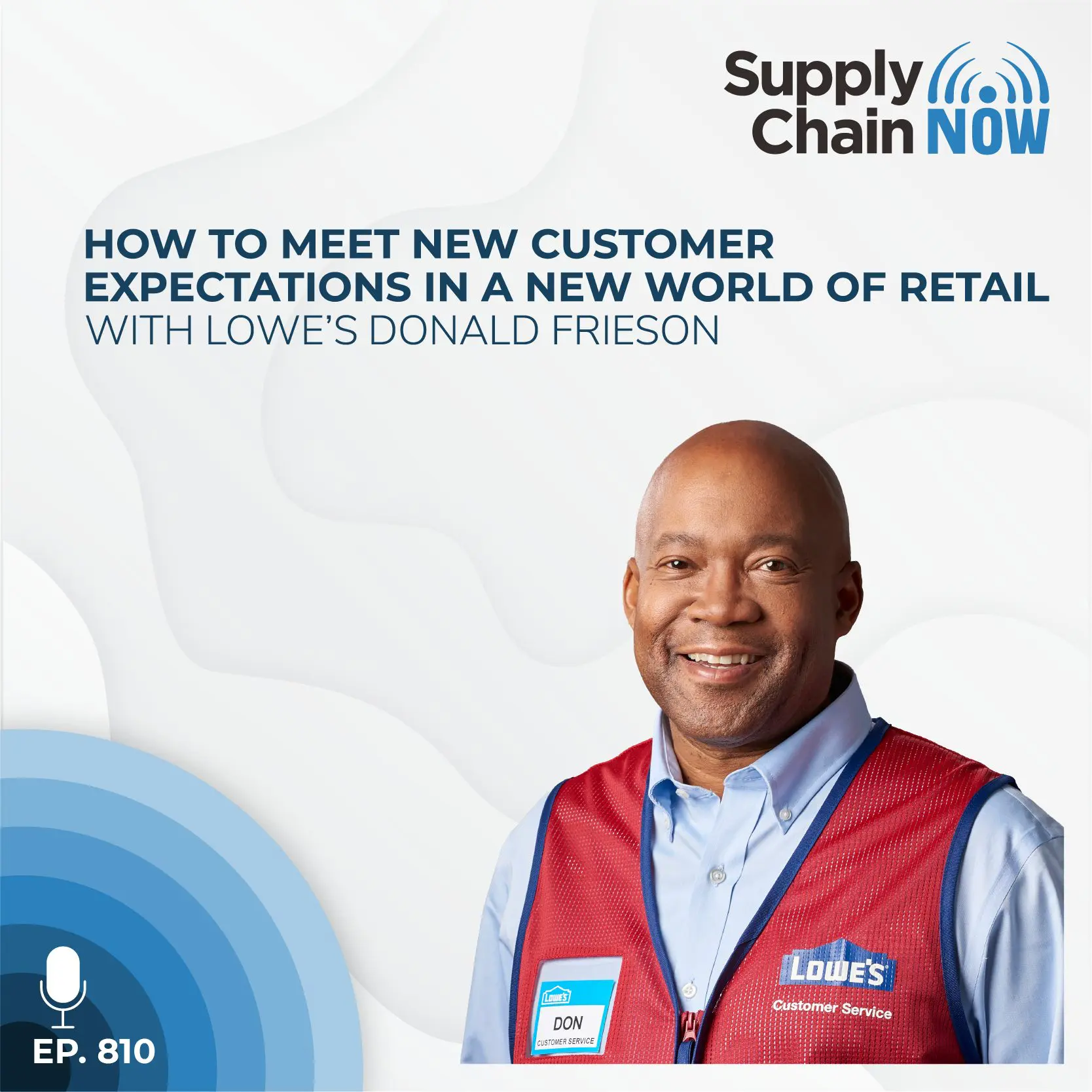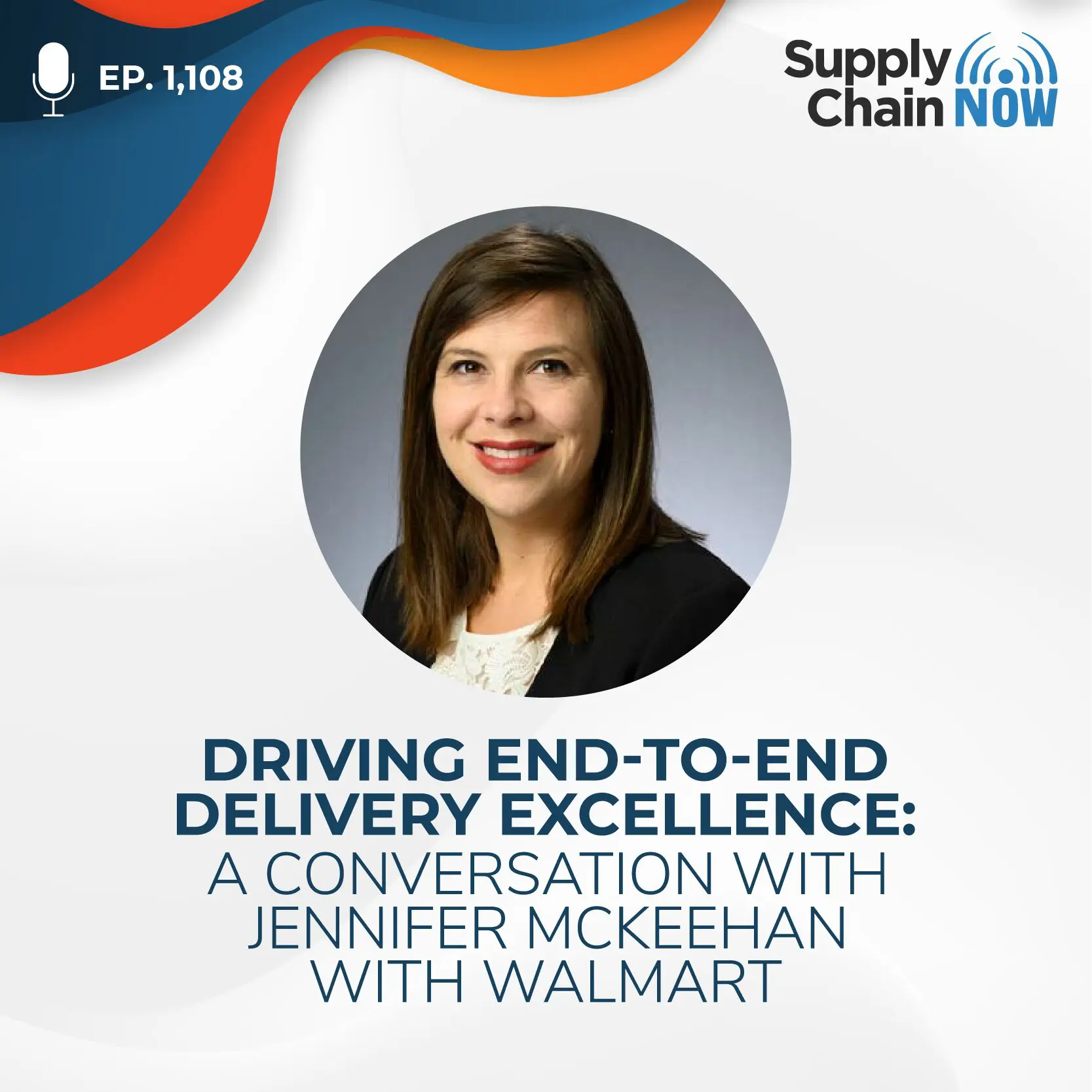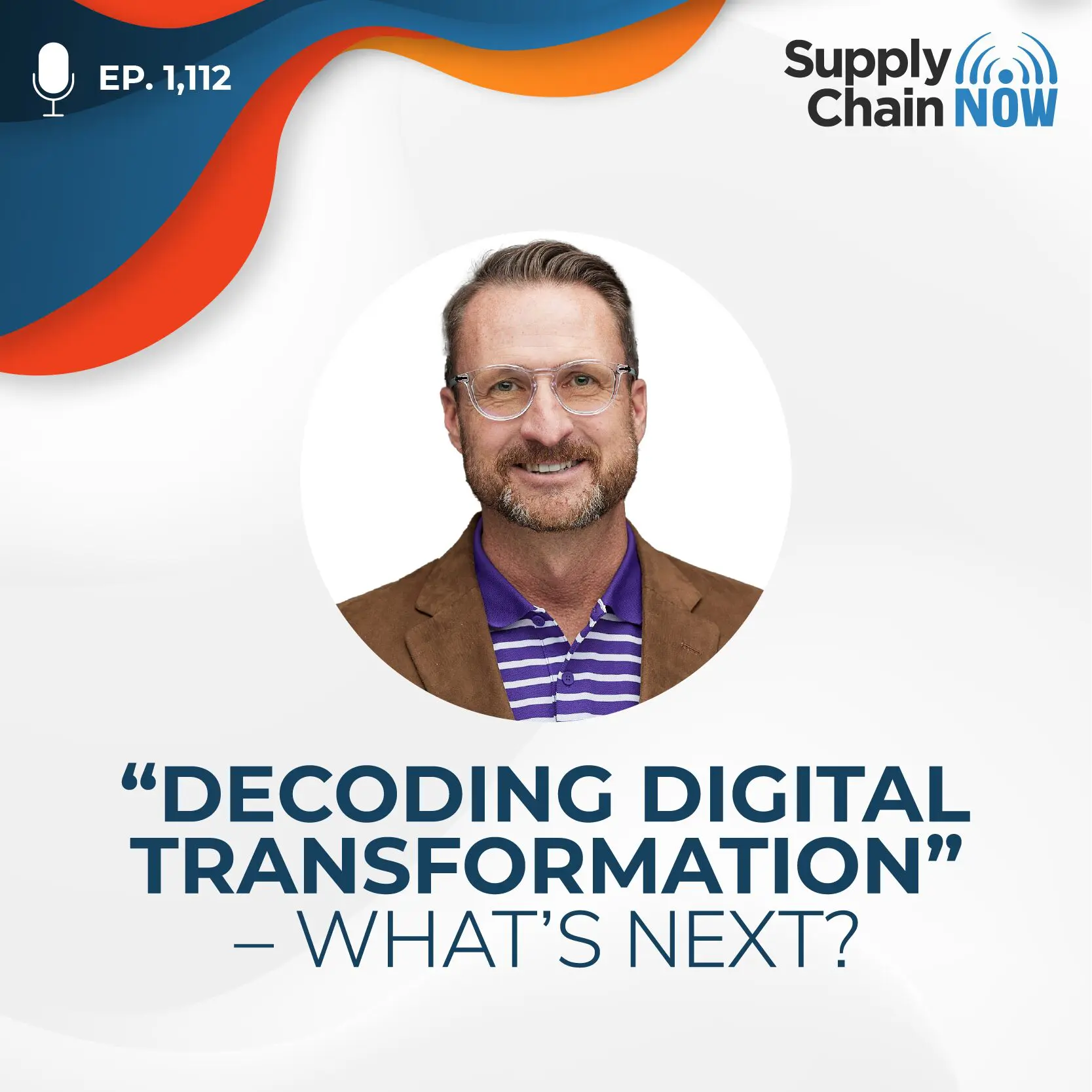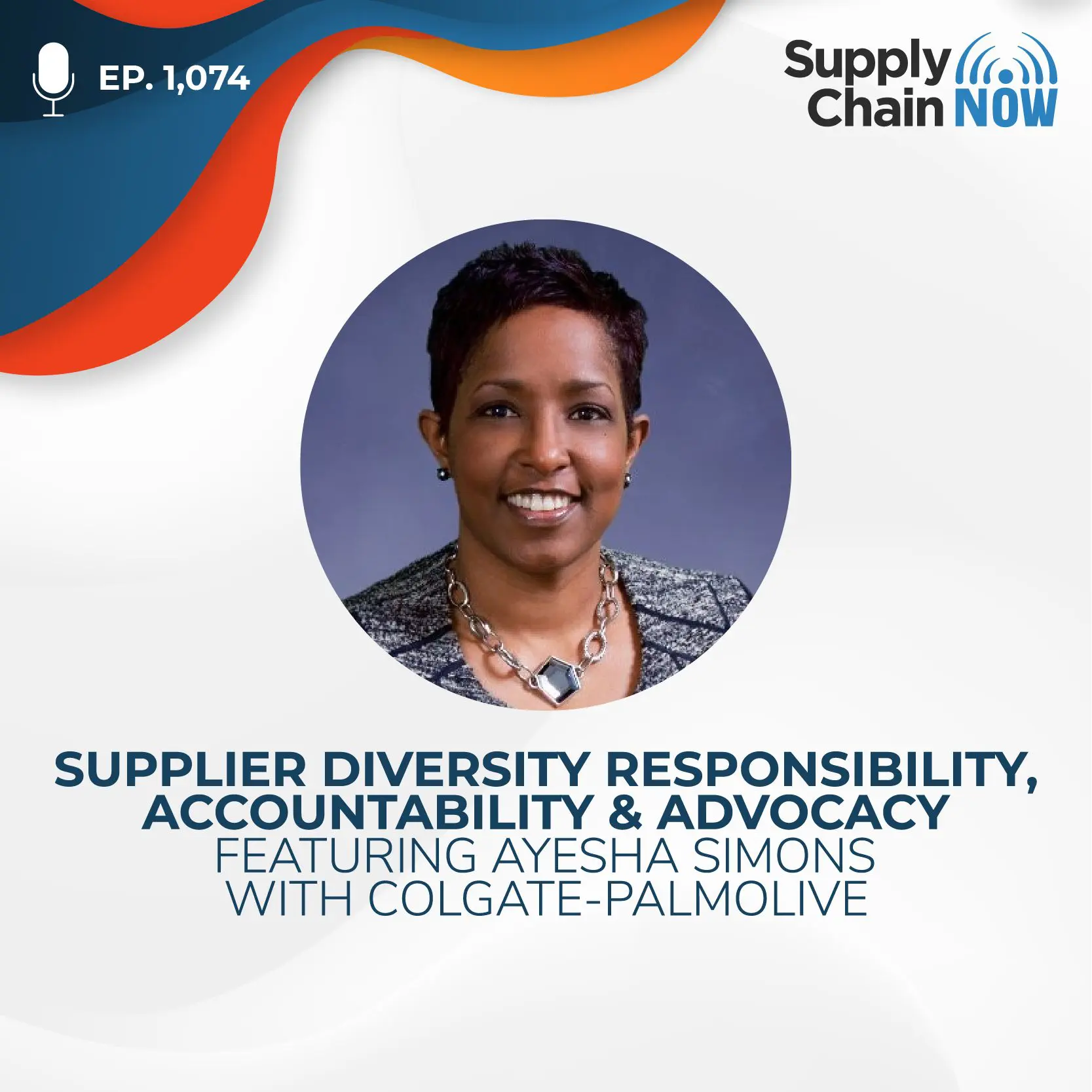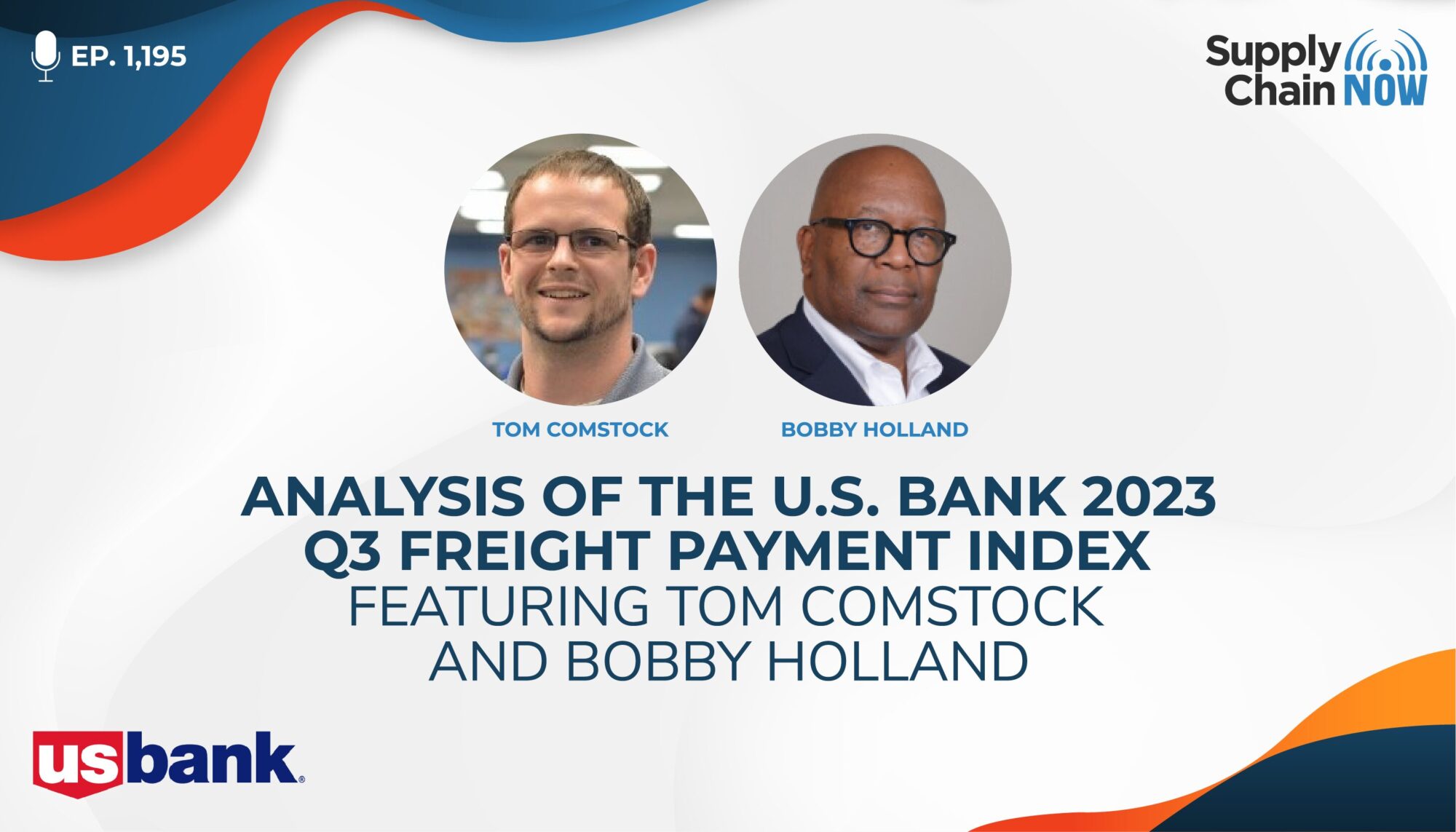
I like the Freight Payment Index because it's an unbiased set of data points and an unbiased visualization of what's going on. I like to use it as a gauge against others that I'm seeing within the industry. The U.S. Bank has customers both as carriers and shippers, and so they really want it to be information for everyone. I think that's very important to help drive home what you are seeing or what you're not seeing with other data points as well.
-Tom Comstock
Episode Summary
In 2022, U.S. Bank processed $46 billion in freight payments for some of the world’s largest corporations and government agencies. Those payments and the data that accompanies them are analyzed quarterly by Bobby Holland, U.S. Bank Vice President and Director of Freight Data Solutions, and his team. The FPI report includes quarter-over-quarter, year-over-year, and full-year data and analysis.
In this livestream, Bobby shared key takeaways from the Q3 2023 report, including revealing that shipping volumes, rates, and spend are all continuing to decline. He was joined by Tom Comstock, CFO for Kirsch Transportation, and discussed the results of the Q3 2023 report with hosts Scott Luton and Greg White. Listen and learn:
- Which regions were most impacted by diesel prices and soft consumer spending
- Which regions saw smaller drops and which regions had significant change
- What trends are likely to continue in the coming months and what will affect the potential for market stabilization
Episode Transcript
Intro/Outro (00:03):
Welcome to Supply Chain Now, the voice of global supply chain. Supply Chain Now focuses on the best in the business for our worldwide audience, the people, the technologies, the best practices, and today’s critical issues, the challenges and opportunities. Stay tuned to hear from those making global business happen right here on Supply Chain Now.
Scott Luton (00:32):
Hey, good morning, good afternoon, good evening, wherever you may be. Scott Luton, Greg White with you here on Supply Chain Now. Welcome to today’s Live stream. Greg, how you doing?
Greg White (00:42):
I’m doing great. Freezing, maybe literally, but doing great.
Scott Luton (00:47):
Well, you look like a billion dollars and we’ve got a billion dollar show here today. I’m really excited to continue this long running popular quarterly series powered by our friends U.S. Bank, right?
Greg White (01:00):
Yes.
Scott Luton (01:00):
Sharing key insights from one of the leading transportation industry resources out there, the U.S. Bank Rate Payment Index for Q3 2023. And folks, you should go ahead and download your copy of the Freight Payment Index so you can follow along, spill coffee on it, dog ear it, right, Greg? Beat it up and you can do that at freight.usbank.com. Greg, you ready?
Greg White (01:24):
I’m ready. Yes. I love getting this one. And man, this one is so particularly aligned to what’s happening in the economy. It’s both an — a reflection and an indicator, just my opinion. Of course, our folks at the bank can’t comment on the indicator, but it certainly is a telling signal. If you have ever wondered what the value of this index is about, you will not wonder after today. It’s going to smack you in the face just exactly how tied it is.
Scott Luton (01:56):
So true. And we’re going to continue our approach here where we’re bringing one expert perspective focused heavily on what the data is showing. And of course, one expert perspective focused heavily on what’s going on out in the marketplace, they’re making it happen. So, Greg, one last thing, before we introduce our guests, elaborate a little bit more on the importance of this research and data, and how to your point, it is truly actual insights for supply chain leaders out there.
Greg White (02:21):
Yes, I think it’s becoming even more tied to not just the freight marketplace, not just supply chain marketplace, but to the greater economy because, Scott, we were just reflecting in the green room about how when we started working with U.S. Bank, it was about $29.7 billion worth of transact, which is a lot in case anybody’s wondering. Billions. B as in Bezos, as you like to say, Scott. And now, it’s over 50% larger.
So, this is a huge collection of transactions. U.S. Bank continues to process more and more transactions in the freight marketplace. And the data that they can capture from that and — that Bobby and his team can discern from that give us these understandings of what happens and they give us data that allows us to interpret that as to what could be coming in the future. Only us, bank cannot do that but we can. So — right? And all of you out there can as well.
But I think you’ll see the tie really, really today. And I really think we’ve hit kind of an inflection point with this analysis where it is so much of the freight payment transaction volume out there that it is getting closer and closer to reflecting what’s happening in the broader market.
Scott Luton (03:46):
That’s right. Great point, great point. All right. Ready to get started. Folks, again, freight.usbank.com, check it out, free to subscribe too and you’ll get it delivered conveniently right now or quarterly. So, check it out.
Scott Luton (03:59):
All right. Greg, let’s go ahead and introduce our featured guests here today. Bobby Holland, director of Freight Business Analytics at U.S. Bank, and Tom Comstock, Chief Financial Officer at Kirsch Transportation.
Scott Luton (04:11):
Hey, hey, Bobby. Great to have you back. How are you doing?
Bobby Holland (04:14):
Doing well. How are you guys?
Scott Luton (04:15):
Wonderful. And really, Tom, great to have you. Become one of our newest best friends here today.
Tom Comstock (04:21):
Thanks for having me.
Scott Luton (04:23):
All right. Greg, we got a lot to get into today, right?
Greg White (04:26):
Yes. We got to go.
Scott Luton (04:26):
A ton to get into. But before we do really quick, want to give a shout out to all the Texas Rangers and the fans in our audience. They won their first World series in the history of the franchise last night, which states back to 1961 when they were known as the Washington Senators. It’s a big congrats that any of our Rangers fans out there. Along those lines, Greg, we learned — our team learned, the market intel. Tom, you’re a huge Iowa Hawkeyes fan, who — they’re currently tied for first in the Big 10 West. They’re doing well. Tom, what’s one cool thing about being an Iowa fan?
Tom Comstock (04:59):
Well, one not cool thing, I’ll flip it on you is their offense this year. So, going through a little turmoil where actually last in the FBS and — but be get a new coordinator next year.
Scott Luton (05:11):
OK. All right.
Greg White (05:13):
Is that already determined, Tom?
Tom Comstock (05:14):
Yes, they just announced it this week. Never happened at Iowa where they do coaching changes in the middle of the year, but it’s the head coach’s son too for those of you that don’t know.
Greg White (05:24):
Let me know how that works.
Tom Comstock (05:25):
We get very interesting in. I played Northwestern at Wrigley Field this week, which I’ll be there.
Scott Luton (05:28):
OK. New leadership.
Greg White (05:30):
Oh, man, that’ll be awesome.
Tom Comstock (05:31):
Yes.
Greg White (05:32):
I’m just going to say, Tom, take a jacket.
Tom Comstock (05:35):
Oh, yes. They don’t call up the windy city for nothing.
Greg White (05:39):
No kidding.
Scott Luton (05:39):
That is right. Well folks, if you’re a fellow Iowa fan or a fellow football fan, weigh in. Let us know who’s your team is. Good luck this weekend, Tom. Now, about Greg, with Bobby, we got to switch gears a bit. And that good looking U.S. Bank pullover should tell you, Bobby, you’re — you love golf. So, what’s one thing you love about getting out and hitting that little white golf ball around?
Bobby Holland (06:02):
Well, it’s like you get to take a hike but look pretty while you’re doing it. And cool shoes, nice clothes and you’re walking around in very pastoral, in some cases, grounds Broadmoor — the Broadmoor Hotel in Colorado Spring is one of my favorite holes for that very reason. You’ve got the mountain backdrop, you’ve got the trees, and then like I said, everybody looks good.
Scott Luton (06:26):
OK. I love it. Now, Greg —
Greg White (06:28):
The mountain air also makes the drive go a little bit farther.
Scott Luton (06:32):
Well, Greg, I feel powerful. I’ve seen you in action Greg, and only you look good, but you hit the ball about 450 yards down the golf course.
Scott Luton (06:41):
Hey, we’re going to have to get you and Bobby together. And Tom, you and I can maybe drink beer and talk football to round up the —
Tom Comstock (06:46):
I’ll be the caddy.
Scott Luton (06:48):
All right. Folks, we got a lot to get into. So, again, welcome, welcome Tom and Bobby.
Scott Luton (06:53):
Bobby, where do we want to start is give folks a sneak peek. We’re going to take seven key takeaways from the Q3 2023 Freight Payment Index. We’re going to pick it apart here later in the show. But for starters, can you share a little bit about what folks can expect to hear us talk about here today?
Bobby Holland (07:09):
OK. Well, one of the themes — I mean, this quarter’s index is the fact that shipping volumes, rates, and spend all continue to decline, which anybody who’s wanted in the marketplace you can see that. And then regionally, we saw big drops in the Midwest going down towards the southeast where the drops from West smaller. But if we stay tuned, well, like you said, we’ll get to the rest of those.
Scott Luton (07:32):
Yes, the rest of the story like Paul Harvey used to famously say, Bobby. And we’re going to — and Greg, as you’ve mentioned a couple of times, we’re going to give folks information that they need to know to make decisions and turn into action, right?
Greg White (07:45):
Yes, I mean I think that’s the incredible value of this thing. And I mean, like I said earlier, it’s going to really hit home when you hear the rest of this.
Scott Luton (07:53):
Agreed. All right. Well, hey, really quick folks, I want to make sure you all are aware you can download this. This is kind of the top line graphic. We’re going to be diving into these numbers a bit and then you’ll see where the Freight Payment Index goes into region-by-region, freight.usbank.com and stay tuned for the next 50 minutes or so as we give you the intel you need to know to put it into action. OK. Greg, where are we going next?
Greg White (08:19):
I think we ought to, you know, kind of dive into those seven takeaways, right?
Scott Luton (08:24):
Yes.
Greg White (08:25):
In a little bit, right?
Scott Luton (08:26):
Yes.
Greg White (08:27):
But I think Tom, you’re our practitioner. You’re the person that puts this thing into use. So, maybe tell us a little bit about your role at Kirsch and how you use this thing to whatever, however you use it to kind of guide or reflect your business.
Tom Comstock (08:43):
Yes. So, a little background on Kirsch in general, we are a family operated, woman-owned business with about a hundred employees. At about 80,000 loads last year. Been in business for approximately 23 years, Matt and Cam. Cam is the mother, Matt is a son, and they’ve been growing the company organically the past 23 years, which is very interesting compared to some of our competitors.
Tom Comstock (09:09):
So, how we utilize it is along with other metrics, but it’s a great macro way to look at is what we’re seeing internally what’s happening macro-wise and blending the different data points that we get and utilizing it all at once to see do we have a good feel for what’s going on or do we not? Are we unsure? Are we getting a lot of different data points from other areas? But there’s a tremendous amount of data like Greg stated with this and it continues to grow. And so, it becomes a bigger player every quarter and every time we see it.
Greg White (09:43):
Yes, we were just talking about Tom just a few quarters ago, how much it’s grown since that. It seems like it’s been tens of billions just in the last couple quarters. So, I agree with you. I think it’s becoming an even more far-reaching analysis, right?
Tom Comstock (10:02):
It would be exciting to see —
Greg White (10:02):
Bobby — sorry, Tom, say that again.
Tom Comstock (10:05):
I was going to say, it’s going to be exciting what they continue to do with it as they move forward.
Greg White (10:09):
Yes. And Bobby, I know you and your team put a ton of work into this. Obviously it’s a ton of data. You have people help you compile and narrate this thing. I mean, tell us a little bit about how it works, what type of index it is and what that means so everybody kind of understands where this data is coming from.
Bobby Holland (10:27):
OK. Well, Tom pointed out one of our drivers for producing the Freight Payment Index. We see it as another set of data points for our customers and for the marketplace in general. It’s our perspective on the marketplace based on the billions of dollars in paid transaction data that we process as of the beginning of the year.
Bobby Holland (10:50):
What we do is — it’s a chain-based index. We compare quarter over quarter and we also have a year over year part of it. But I — we think the unique proposition in our index is the fact that we represent a regional view so that we can see — you know, we — you start at the top, at the national level, but then you can kind of go down and see where those national drivers, how they individually impact each region. And again, it provides more data points for our users that make their decisions.
Greg White (11:22):
I think one of the cool things that we see over and over again is, honestly, I think we all — in business anyway, all of us sort of knew this, but the varying types of industries that drive the different regions, you never think about, kind of, how there’s a lot of automotive in the south and obviously in the Midwest, right? A lot of energy of course in Texas and that sort of thing that drives. And it drives different dynamics in transportation. So, that’s what makes the regional analysis so important. So, we not only understand what is going on in those regions, but why and the type of businesses that are impacted, whether it be positively or negatively.
Scott Luton (12:04):
Well said. Well said. And it kind of weaves in a story, a valuable story, much greater than just global supply chain or even domestic supply chain. It’s broader business. It’s a very useful collection of insights. Tom, speaking of which, how would you say — how would you describe to our audience how you and other industry leaders really utilize resources like the Freight Payment Index?
Tom Comstock (12:26):
So, one thing I meant to mention was the reason I like it is it’s an unbiased set of data points and an unbiased visualization of what’s going on. So, that’s why I like to use it as a gauge against others that I’m seeing within the industry. The U.S. Bank has customers both as carriers and shippers, and so they really want it to be information for everyone. I think that’s very important to help drive home what you are seeing or what you’re not seeing with other data points as well.
Scott Luton (12:53):
Excellent.
Greg White (12:53):
Bobby, being a data nerd has to — you have to love in hearing that unbiased word, don’t you?
Bobby Holland (12:59):
Literally [phonetic].
Scott Luton (12:59):
You know, kidding aside Greg, and for Tom, you continue. Greg is so important that it is unbiased, right?
Greg White (13:06):
Yes, I mean the broader perspective is what makes it so legitimate, right? And it makes it — it’s not driving an agenda. It’s driving fact and build your agenda or build your assessment or build your plan out of real true fact.
Scott Luton (13:20):
That’s right. Well said, Greg.
Scott Luton (13:22):
All right. So, Tom, how do you use it? Any examples? Any thoughts come to mind?
Tom Comstock (13:26):
Honestly, I use it as a gauge on the macro level from a national standpoint. And then I do break it down by region as well because with our size there might be some pockets of freight where we might not be heavily against. We are a 48 state, but there are some pockets. And so, when we’re going engaging, what’s the market been doing compared to how we’ve been operating, I like to see at that avenue.
Scott Luton (13:50):
Well said, Tom. And we’ve mentioned regions a lot. And again, just use this graph again, you’ll see where the Freight Payment Index focuses on these five regions. Greg was kind of talking about it a minute ago. Southeast, southwest, West, Midwest, and northeast. So, you all check that out.
Scott Luton (14:04):
OK. So, well now, Greg, Bobby, and Tom, we got to get into the seven things that folks got to take away from this quarter’s Freight Payment Index. And we want to start, Bobby, with something I think you shared on your little sneak peek, national volumes do contain to drop, right? So, number one, what is it?
Bobby Holland (14:23):
Well, we see that the national volumes, as you pointed out, this is the fifth quarter of drops. We’ve been indicating — and the importance of this is the fact that, you know, there’s a point in time maybe even three or four quarters ago where it was touch and go. Which way are we going to go? Which way are we going to go? And then another quarter passes and we’re still declining. Which way are we going to go, you know? We’re — everybody was trying to avoid using the term freight recession.
Scott Luton (14:48):
Right.
Bobby Holland (14:49):
But you see, you know, basically that all the headwinds that are going on nationally have continued to drive it at what — again, we’re at that state now where everybody’s looking to see, is this going to stay down here or — I mean, and if it does, when is it going to go up? So, something we’ll be looking for.
Scott Luton (15:06):
Yes. Appreciate that, Bobby.
Scott Luton (15:07):
All right. So, Tom, is that square what you’re seeing?
Tom Comstock (15:10):
Yes. For Kirsch specifically, we have seen a little bit of a drop in Q3, that’s relative speaking. Obviously you’re coming off some highs in Q1 and Q2 from our perspective with how our bids landed. With that being said, we’re still above where we were in 2020 and 2021. But, yes, it’s tough out there. I mean, it’s tough out there for everyone. You see ORs coming out for people that normally have very strong ORs. You’re seeing bankruptcies.
Tom Comstock (15:34):
I think the biggest thing is with the customers when we’re going back and forth with them is, are we not getting freight or is our freight going down because of rates, or is it going down because of volume? Clearly, there’s some loss with rates, which I’m sure we’ll touch on a little bit. But all in all, most of the customers are also saying, you know, volume’s just lighter that’s why you’re not getting your commitments or that’s why you’re not seeing as many spots on the daily with some of those shippers. But we do have a broad variety. We do everything from band to open deck to reefers. So, we have a lot of different touch points with different customers that have different needs.
Scott Luton (16:05):
Greg.
Greg White (16:05):
Are there any particular industries where you have a lot or very little exposure?
Tom Comstock (16:10):
So, when I look at it, it’s pretty safe to say let’s say 45% van, 45% open deck, and that last 10% is going to be reefer intermodal. The van and open deck, they kind of fluctuate depending on the time of the year and what’s going on in those markets and which market it’s in. But fluctuates between 45, 55 split in those two. And then the last 10% is more specialized with intermodal reefer and over dimensional. We like to have it blended, try to be a little risk averse. One’s going up, one’s going down type deal. But right now, they’re all kind of going down, right?
Scott Luton (16:45):
Greg, your additional thoughts before I move on to key takeaway number two?
Greg White (16:49):
Well, I mean as we said at the top, and we’re going to continue to say throughout this. A couple things jump out at me, first of all, with what Tom said about how they use it is that this continuing growing of volume, tens of billions of dollars just over the last year makes it a greater and tighter reflection or prediction. We can predict of what’s going on in the economy, and I think right now we’re seeing that reflection unquestionably, right? I think we knew it was coming. I think Bobby knew it was coming. He couldn’t say. But I think that data is strong enough and it’s a broad enough base of data to allow us to get a really, really good picture.
Greg White (17:30):
I got to believe, Tom, you’re pretty encouraged as the number of transaction and the amount of transactions that support this thing continue to grow, that it continues to be more and more reflection of what you’ll see and what you are using it for. You know, you can look at are we losing business or is the market losing business, right? You know, are we being cannibalized by our competitors? Are we still winning businesses? But it’s still going to — all of those things become really, really important analyses as you run any kind of business, but particularly a transportation business.
Greg White (18:03):
So, I got to tell you, obviously, if anyone’s ever watched me do this before, they know that this is sort of an epiphanal moment for me that this thing has gotten so damn big that I feel like it is — it has hit that inflection point where it is not that it ever wasn’t. But now it is just such an incredibly tight reflection of where we are and I think where we — obviously, where we’ve been, and I think where we’re headed.
Scott Luton (18:31):
Yes, good stuff there Greg.
Scott Luton (18:33):
All right. Folks, really quick before we move on. Lisa up in Minneapolis, Randy up in the upstate of South Carolina, Steve also up in the upstate of South Carolina. Welcome everybody. Follow along at home. We got six more key takeaways. And folks, your key takeaways may not be one of the seven we hit here. Let us know what it is. Drop it at the comments and we’ll share throughout.
Scott Luton (18:52):
OK. Moving right along. Bobby shippers are spending less, kind of what time was saying a minute ago, what’s key takeaway number two?
Bobby Holland (18:58):
As you said, shrinking volumes, falling freight rates and other headwinds, creating pockets of overcapacity. Basically, from a national perspective, less spending in the third quarter spending is down. I won’t say dramatically, I don’t want to overdramatize, but basically when you combine the fact that there’s a softer housing market. When we look at falling factory output. When we look at the fact that, you know, household savings are drying up so people are kind of being a lot more careful with their spending. And that interest rates are high which is another thing that’s kind of affecting the housing market.
Bobby Holland (19:34):
You put all these things together and all these influences are basically the result is that the spend index was down 4.2% from last quarter, and off almost 13% from last year. And the shipments index was down 3.4%, but it was off like 10% from last year. So, again, in this case that spending, you know, dropped faster than the shipment volumes did. And so, you know, again, that’s always a condition. That’s always an indication to us that rates and spend — you know, rates are going down faster than the volumes are.
Scott Luton (20:15):
Good stuff there, Bob. And of course, you mentioned factory output. According to the Fed, factory output was about almost a point lower in September 2023, year over year, over September 2022. So, seeing a few signals, upticks, but year over year still we’re — we’ve got a lot of catching up to do.
Scott Luton (20:32):
Tom, your thoughts on number two? Shippers spending less?
Tom Comstock (20:35):
Yes. I mean, it’s spot on, right? We’ve seen a tremendous drop of rates over the past year. Some of that is playing out more and more in the third quarter than it might have in the first and second quarter. From the simple fact that bids are going into place and how those are aligning with these quarters specifically. One thing I think is going to happen going into the fourth quarter as well.
Tom Comstock (20:56):
The beautiful thing about the industry is it’s a simple supply and demand, trucks and freight, right? So, I think coming out of 2020 through 2022, a lot of carriers, brokers, they might have had a lot more cash than they’re used to for a runout like this. So, they’ve been able to hold on a little bit longer than normal. So, quarter four, some might’ve been expecting a beneficial peak bump in rates, but we’re not seeing that at all. I think that might be detrimental to a lot of carriers as they were hoping for a little bump in Q4, survive Q1 and then hoping Q2 and three start to do a takeoff. I think December through February is going to be a tremendous time to see if there’s a huge exodus of capacity. And at that time, we can start seeing when a relief might be. But Q3 played out pretty much how we were expecting, rates are down, simple as that.
Scott Luton (21:49):
So, you had your crystal ball dialed in. Tom, that’s good. At least one of us not.
Scott Luton (21:55):
Greg, your thoughts.
Greg White (21:56):
Yes. Well, it always sucks when your crystal balls dialed in when things are going down, right? But that’s when you want to be wrong. Well, I mean we’re seeing it. Consumers — I think, we’re all at least more conscious of what we’re spending our money on consumers if not tightening our belts. I also know that rates for shippers, the prices for shippers are coming down.
Greg White (22:21):
I was thinking about — I’ve been thinking about this over the last several weeks. Places where I couldn’t get a discount or couldn’t even get goods. Now, they’re stuffed and they’re trying to bleed down their inventory and they’re offering discounts. And honestly, I’m a little bit irked at them or at myself for not waiting. There are some of those things you have to have when you have to have them. And then you see what the price is now and you’re like, could I not wait?
Greg White (22:47):
But that — I mean, that reflection that all of us consumers see is what is driving this, right? And our beginning to slow our spending and run out of savings and reach maxes on our credit cards. Credit card debt is also at an all-time high. So, at some point everybody is — has got to say, all right, let’s at least slow it down, right? And consumers are sometimes a leading indicator and sometimes coming off of a peak like this. There are some — sometimes they take a little bit longer to slow down, but when they do, they tend to slam the brakes on.
Greg White (23:26):
So, we’ll have to see what that, you know, what actually happens. A lot of predictions that peak will be lower or not as aggressive as last year, except probably for PlayStations. So, Tom, try to ship PlayStations, right? It’s Sony that finally got their supply chain together.
Scott Luton (23:44):
That’s right.
Greg White (23:46):
And that my prediction is that the PlayStation, whatever number it is, is going to be the top gift this year because you could barely get it over the last couple of years. I wish I made place —
Scott Luton (23:57):
I love it. That’s a great call out, Greg. And kudos to the team over at Sony for figuring that out because they’re going to be — man, talk about printing money. I think we said — talked about that in the pre-show or this show.
Scott Luton (24:07):
All right. So, two down five to go. We got a lot more good stuff to get into. So, Bobby, let’s head out West. What’s going on out there?
Bobby Holland (24:14):
Well, we see that from a trade pattern, the West imports to the West are slowing, but we also see that Mexico trade, the cross-border trade with Mexico is picking up. But again, you add in floor housing activity. Again, we see what that adds up to is a drop in the West. The West had the largest quarterly drop of nine percent. While the Midwest, again, the region that does a cross — a lot of cross-border trade have the smallest decline of only 1.1% in shipment volumes.
Bobby Holland (24:48):
So, again, that’s one of the things that we try to look at is what are the — all of the regions, nationally, have similar drivers, similar headwinds. But because of the unique makeup of the regions, they affect them differently. And so, we can kind of see this here. There’s been housing issues and along with housing issues or all the goods to ship houses is affected nationally, but some regions have it worse than others.
Scott Luton (25:17):
Excellent point, Bob. And speaking of housing, before I move over to you, Tom. CNN has said, U.S. home sale has dropped to a 13-year low in September. and housing starts, more to the point, were up in September over August a little bit, but they were still down 12% housing starts September 23 — 2023 over September 2022. Tom, your thoughts on what’s going on out West?
Tom Comstock (25:39):
Well, so we touched on a very important aspect is the Asia and Mexico piece of it. You know, west coast, I’ve always seen it since been in the industry, the highest of highs and the lowest of lows, right? One thing I did was when I was looking this over, I went back and I noticed that seven out of the last eight quarters dating back to Q4 of 2021 on the index, they’ve been negative, right? And that’s for the shipments. Quarter over quarter compared — that’s for quarter over quarter. And then the last five year over years for the quarters have been negative as well.
Tom Comstock (26:14):
So, I think that’s a longer trend that’s going to continue to occur. Two things happening more coming from Mexico, and then the other thing which I might touch on a little bit later is the port situation with more being redirected to different ports. I think that’s a long-term thing. I think that’s real and I think it’s going to continue to happen as those other ports put in more infrastructure and there’s going to be, you know, longer transit times on the ocean side, but they’re going to avoid some of the stickiness of going into the West coast.
Scott Luton (26:43):
Greg, talk about we’re all trying to avoid stickiness out across industry, right? Your thoughts?
Greg White (26:48):
Yes. Population is leaking out of California, which is the most populous state in the West by a long shot, an order of magnitude over a number of the other states. So, that’s a challenge. Also, we talked about this week as well, Scott, because of the construction in the Panama Canal, there’s more than just speculation that ships will start coming the other direction through the Suez Canal, which means more landings in east coast and Texas and Gulf — let’s just say, Gulf ports.
Greg White (27:19):
So, I think we could continue to see this trend. I think what’s interesting about what Tom said is, wow. I mean, if you want to understand how somebody uses this, that analyzes it weeks and quarters and years back, I think this — that is, Tom, a great example of how to utilize this thing. I mean, I’d totally expect it from a CFO, but I think it — I really appreciate you enunciating that so people can see what you can learn and what you can discern from this thing by going through it. Not just this most recent one, but period over period.
Scott Luton (27:57):
Greg, it’s good to read what CFOs read, huh? We all get a little bit smarter that way.
Greg White (28:01):
I just look dumber whenever I try to read what CFOs read because they’re an order plane —
(CROSSTALK)
Scott Luton (28:07):
Yes.
Greg White (28:08):
They’re on another — yes, that’s right. They’re an order of magnitude.
(CROSSTALK)
Tom Comstock (28:13):
We’re all just people, Greg.
Greg White (28:15):
Yes, some of us are just really smart financial people that —
Scott Luton (28:18):
That’s right. Hey, really quick, Greg, you’re talking about more traffic coming in east coast ports. It’s interesting here in Georgia they’re on the heels of a big expansion. They’re talking about expansion, more expansion and further deepening already. So, we’ll see where that leads. All right.
Greg White (28:34):
I’m seeing the prep — as you know, I see the preparation for that. And I mean, visibly see the preparation for that. There has been a lot of measuring and analysis going on out there outside the port. Charleston, you know, already is equipped for a lot more traffic than a lot of east coast ports. They have that huge enormous port opening. And Savannah is pretty restricted though they do have kind of a divided highway for part of this — part of the Savannah River where they can stage up ships and not get in each other’s way, but there is a point at which they have that choke point. And as you said, they’re trying to deepen and widen that channel.
Scott Luton (29:15):
We’re going to have Greg White on the scene reporting soon in the months ahead.
Greg White (29:18):
We need a company boat, Scott.
Scott Luton (29:19):
That’s right. Oh, that’d be fun.
Scott Luton (29:22):
All right. Folks, so just keeping us all, if you’re playing along at home, we’ve covered three key takeaways, and we’ve started to get into the geographic differences. So, following along those lines, Bobby, our fourth key takeaway we’re diving into the U.S. Southwest, right?
Bobby Holland (29:38):
Right. The Southwest has kind of been an interesting region to watch. It’s been one of the better performing regions across the United States, and we can kind of see how that looks in this quarter because we saw that while shipment volumes declined about 4.8% for the quarter, it was up 3.3% over last year.
Bobby Holland (30:01):
So, again, that long trend and when you look at why possible factors as to why you look at — we’ve got — on one hand you’ve got lower home building, but on the other hand, again, we’ve got that aggressive cross border transportation from Mexico. Even though it’s slowed, that’s one of the things to remember about an index is we’re not talking, you know, like we’re falling off a cliff. We’re talking about a fast-moving car that we just let up off the gas, 4.8%. So, we’re still moving fast. We can still get run over, but it’s not as fast as it was previously. So, I’ve got to keep that in mind because I don’t want to sound like we’re all doom and gloom here. Everything’s going to collapses and civilization is coming to an end.
Greg White (30:41):
Coming to an end. You’re right, you’re right, Bobby.
Bobby Holland (30:43):
It’s more like a game.
(CROSSTALK)
Bobby Holland (30:46):
You got to keep it in mind. Keep it relative.
Scott Luton (30:47):
That’s right. It’s more like a game of frog or a little bit. A little bit of lighter note, Bobby. Just trying to avoid getting hit by a truck. Tom, when thinking about the Southwest, some of those things that Bobby just shared, what are you seeing out there?
Tom Comstock (30:58):
I mean, it ties into what we were talking about the West with the Mexico cross border, right? It’s the one outlier from shipment standpoint, correct me if I’m wrong, on this report where there’s positive momentum to the extent. And the one thing again, Greg, you’ll like this now got one more staff from you looking back in time, so I’m going to read this off so I make sure I get it right. The year over year growth on the market has been — for almost three straight years now in that market, when you’re looking at the shipments, you have to go back to quarter one of 2021 to find a negative year over year comparison. So, I think that just kind of does speak to the continuous momentum, that segment or that region continues to get with cross border from Mexico.
Scott Luton (31:39):
Greg, your thoughts?
Greg White (31:41):
Yes, I think the point that both Bobby and Tom raised is an important one. If you go back and look at the overall chart, because it’s a chain based index, right? It is slowing relative, but if you go back and look at this chart, the volumes are well above even what we had when we thought we had ton of volume in 2020, right? And above a good portion of even moving into — even into 2021, so at least the front half of 2021. So, it’s really — it really is just a relative slowing. I think that is an important point, Bobby, to talk about here.
Greg White (32:21):
Part of the difference is that so many companies got into the race, right? There are a ton of Johnny-come-lately’s out there in terms of brokerages and trucking firms and that sort of thing. And so many of the small firms expanded their business that they’re being heavily impacted. And then we had this whole mythological digital brokerage thing which is slowly being exposed as just a brokerage with reports. And, you know, we’ve had a few of those have some significant struggles. Some of them end, of course, as we’ve heard.
Greg White (32:53):
But I think overall the market is — I don’t want to say strong because we may have reached a new level, right? But it is stronger than it had been prior to and even just after when everything had to start shipping again, the shutdown from the pandemic.
Scott Luton (33:11):
Right. Good stuff there Greg and Tom and Bobby. Moving right along to our fifth key takeaway. We’re going to move over to the Midwest, one of our favorite regions, Gregory. So, Bobby, tell us what you’re seeing out there.
Bobby Holland (33:25):
Well, we see this is another region that’s affected by manufacturing and housing, driving freight rates down. And we see that the Midwest had the drop to just five percent — half a percent, I’m sorry, half a percent of — over the last quarter, but from a year earlier it was off 6.3%. However, on the spend, spend was down almost 18% over last year, which is a tremendous drop. It’s 4.4% over the previous quarter.
Bobby Holland (33:55):
So again, they’re being buffeted by a lot of issues. And again, one of the things we wanted to point out is when we talk about housing starts and construction and home selling, that affects freight from the standpoint that, again, it’s not just the movement of construction materials, but if you’re not moving, people don’t buy as much furniture or appliances or anything like that. So, those things are slowing down as well. So, that one factor affects, you know, a broader part of truck freight then would be apparent, let’s put it that way.
Scott Luton (34:27):
Yes, impacts, to put it technically, a lot of stuff. So, Tom, we’re talking about kind of home base for you all, your thoughts in the Midwest.
Tom Comstock (34:35):
Yes. Well Bobby kind of stole my thunder with the domino effect from the housing. Obviously, when you move, you buy a lot of stuff. Some necessary, some just because you want to look pretty, I guess, like the golf clothes. With that being said, this has been another one of those trends where you’re — when you’re looking at the shipments year over year basis on the quarters, 18 of the last 19 have been negative. And again, that’s another trend where I think not only the housing market nationwide is affecting things. In general, people don’t want to move to the Midwest either. I love it. I mean, great cost of living, easy to get around, but unfortunately —
Scott Luton (35:12):
Good people, right?
Tom Comstock (35:14):
Good — great people. I know you guys aren’t all from the Midwest, so I would say the best people, but —
Greg White (35:19):
You can say that, Tom.
Tom Comstock (35:20):
I know, I’ll get in an argument here. But, you know, cold winters really deter people from coming here. So, that’s — people aren’t here, businesses start to leave, it’s kind of a domino effect and I think you’re seeing that in the transition. As far as Kirsch goes, it’s kind of have been business as usual here. Slight drops on shipment side, just with the market, but nothing major on our side in this region.
Scott Luton (35:45):
All right. So, Greg, let’s talk about — as I mentioned, I meant that with all seriousness, the Midwest is one of our favorite regions. Greg, what are you seeing out there?
Greg White (35:53):
Yes, I think one of the things where the southwest and the Midwest are tied together that I think people don’t talk about enough is energy, right? And we’ve seen energy. We’ve seen the energy industries kind of flag a little bit this year over previous years, and at least their stock has and of course their cashflow and that has had an impact. And of course, manufacturing that Bobby talked about. And as much as I love my Kansas City Chiefs, I am not moving to Kansas City.
Greg White (36:27):
And I think that’s a significant theme as well. A lot of people moved home to be near their parents during Covid, and they’re rethinking that after they run out of virtually everything to do in Wichita, Kansas or Omaha or whatever. I think that there is a bigger struggle at play in the Midwest and that’s probably at the root of what Tom is reporting on that from the change in growth.
Tom Comstock (36:57):
One other point I want to bring up real quick, Greg, is we didn’t touch on the strike with the auto back caught [phonetic], the back half of the quarter, only the last few weeks. So, it’ll be interesting to see how fourth quarter comparisons come out where you have a third of the quarter dealing with that, and then it kind of seeping into the southeast a little bit into Kentucky, some of those plants. But we did catch a headwind with that, and who knows if there was some slowdown prior to the actual strike as well.
Greg White (37:24):
Yes, that’s a really good point because I think when we talk about manufacturing in the Midwest, we have to acknowledge that it’s mostly heavy equipment. I mean the dollar volume is mostly heavy equipment and automotive. And obviously those things have a huge effect.
Scott Luton (37:38):
Yes, well said. And a little sneak peek folks, in a minute — in a couple of minutes, we’re going to get Greg and Tom, not Bobby, but Greg and Tom to deck to what’s to come along with Tom was just sharing. And by the way, Greg and Bobby, I think Tom is vying for best guest ever. He’s really brought it today. I love that data driven —
Greg White (37:56):
I was going to say that. We need to have him back. We’re not even done with him yet.
Scott Luton (37:59):
Right.
Greg White (38:00):
We need to have him back.
Scott Luton (38:00):
You’re getting a blue ribbon today, Tom Comstock.
Greg White (38:02):
Right.
Scott Luton (38:04):
OK. All right. So, that was number five. We got seven key takeaways. We just covered the Midwest. Let’s talk about the Northeast, Bobby.
Bobby Holland (38:13):
Northeast is an interesting region. It’s the smallest region, but its impacts, you know, equal any of the other regions. In this region, it was impacted. Housing starts tend to — because there’s not a lot of inventory up here, so that — many changes in the housing market really hammers the northeast, but also retail because of the population density seems to show more vividly up here. And the Federal Reserve said that, you know, retail sales in the northeast were soft. And you can kind of see that because the shipment index was down just under three percent over the second quarter, but it was down almost 21% over last year. While the spend index was down just under two percent and only 11% over last year.
Bobby Holland (39:02):
So, again, these numbers kind of indicate capacity issues. It indicates that a lot of things are slowing up here and that some of those impacts that maybe other areas of the country could ride out a little easier per se. The northeast gets hammered by.
Scott Luton (39:19):
All right. Tom, Northeast your thoughts.
Tom Comstock (39:22):
Yes, the interesting part is like Bobby mentioned, they touch so many different aspects of the freight market where when you compound those issues on each other you get a result like that. Again, I’ll redirect to us, we’ve seen a small downturn in that. Nothing a huge substantial measure just because of how our freight flows in and out of that area, but I think it’s just a compounding issue like Bobby mentioned.
Scott Luton (39:48):
Yes, agreed. Greg, your thoughts?
Greg White (39:52):
Big numbers in the Northeast, right? I mean, that’s a huge hit. And it seems like, I know this wasn’t a prediction but we were talking about this a couple of indices ago, you know, where Bobby talked about what a challenge it is to get equipment up there, right? And we’re coming into that time of year when it’s going to be exceptionally difficult. It seems like we’ve already hit it. We got a little bit of snow a little bit early I’m going to say. I mean, unless you’re in Syracuse or Buffalo. But yes, I think that there are a lot of challenges going on.
Greg White (40:24):
And of course, as Bobby said, we’re going to see the impact on retail, based on retail, and based on financial markets, right? I mean when the stock market is down, the people in the northeast make a lot less money. And when they make a lot less money, they buy a lot less Fendi and Gucci and all of that other stuff that I’ll never afford. And that has a big impact on the economy, right? And you know, we’ve been seeing people, same deals. We’ve seen a lot of leakage out of these northern states, especially to Florida and Georgia and a state I won’t mention so as not to give anybody ideas, but coastal states, let’s just say in the southeast.
Greg White (41:04):
So, you know, I think this is a challenge for this area, not just for now but possibly for the future. And as Bobby — I want to reiterate what Bobby said before, it doesn’t mean that the sky is falling. It just is indicative of possibly a shift of what we can expect, which of course the index will reflect over time, right, as the base shifts — as the basis shifts, that will be reflected in the index for these various regions as well.
Scott Luton (41:32):
Yes. And I want to also reiterate what Dr. Greg White shared in the pre-show, if we can’t face it, we can’t fix it as business leaders, right, Greg? All right. Coming back here for your supply chain therapy, every day, fresh at 12:00 noon.
Scott Luton (41:46):
OK. So, Bobby, as we round out, Greg just touched on the southeast there, that’s where our seventh key takeaway is. Your thoughts, Bobby?
Bobby Holland (41:55):
Well, in this region we’re looking at the impacts of the flat diesel prices, keeping shipping costs and spend relatively stable. The numbers show that it was 2.7% down for shipment volume and just under three percent as well on spend. So, again, those numbers kind of closely correlating, it just indicates that, you know, the rates weren’t outrageous over the shipment volumes, but the shipment volumes weren’t, you know, tremendously low compared to rates.
Bobby Holland (42:30):
So, when we look at that, again, this was affected by, you know, not only gas prices but it was impacted by soft consumer spending. Southeast is typically known for tourism, so there was a lot of, you know, spending as we’ve noted in previous indexes on services over goods which keeps the southeast more stable perhaps again as a regional influence than other regions. But they’re still impacted where they had some minor slowing.
Scott Luton (43:01):
Yes. All right. So, Tom, the southeast where you can always — also find really nice people. Tom, your thoughts?
Tom Comstock (43:08):
Agreed. There’s nice people everywhere.
Scott Luton (43:10):
That’s right. Amen to that.
Tom Comstock (43:12):
Yes, correct. So, I agree it’s more of a stable market in our book as well. Obviously, you know, when you have like a spring surge and stuff like that, those seasonality’s that are going to be a grant. But overall more of the stable market on our book of business as well. The one thing in third quarter that’s usually interesting and we follow very closely here first specifically is what did the hurricane season do for you? And if there was a large jump or a large dip from year over year, how did those years compare from that standpoint of what type of landfall was made and how big were those and in what areas were those made in?
Tom Comstock (43:50):
And so, relatively speaking, the past couple of years have been — I know there’s been major hurricanes, not saying there hasn’t been. Relatively speaking though, it’s been a little lighter than it has been in previous years from a number of times there’s been landfall contact. And how customers continue to prep for those has evolved a little bit over the last three to five years.
Scott Luton (44:09):
Yes. Thankfully better numbers. All right. So, Greg, bring it home. Talking southeast, your thoughts.
Greg White (44:15):
Yes. Well, it — to Tom’s point, the hurricane season was relatively light in terms of landfalls. And, you know, we don’t have a construction season in the southeast. We have a reconstruction season in the southeast. And while, you know, the ones that hit in Florida were terribly damaging, they weren’t as far up the coast as they often are and so that has a big impact.
Greg White (44:42):
I think also we have some economic things going on. They’re building, basically, a city in Statesboro, Georgia. It’s like a — I don’t know, four or 10 or it feels like a town sized automotive plant, and that is — has obviously brought a lot of volume of product and materials coming in and people and all of that sort of thing. So, I can assure you if you drive down I-16, the only interstate in America that does not cross state line, by the way, thank you to our incredible senator for getting that done. How you do that, I don’t know, but I think if you drive down 16, you literally cannot miss it. It went from a forest to a town seemingly overnight. And there are a lot of those things — those types of things going on as more of — more companies move into more temperate areas where they are less impacted by, they at least believe, less impacted by weather, certainly winter weather. And mostly, what should I say, right to work states.
Scott Luton (45:55):
You know, it seems like to your point, Georgia and South Carolina both have — had several hits here with landing new plants, left and right, in automotive, of course, in EV and otherwise. So, we’ll see what happens there.
Greg White (46:04):
Yes, BMW just announced a big expansion of their plant in the Greenville-Spartanburg metroplex.
Scott Luton (46:10):
All right.
Greg White (46:11):
Just to call it there.
Scott Luton (46:12):
The metroplex.
Greg White (46:13):
Yes, the metroplex.
Scott Luton (46:15):
Learn something new every day or maybe on about hundred new things here today between Greg, Bobby, and Tom. Great conversation. So, again, Bobby Holland cannot. We don’t — financial authorities cannot — bank authorities cannot predict future events. So, we got to put Bobby aside for a second. But Greg and Tom. Tom, your crystal ball, at least, some — to some degree was working well for you earlier. So, what might we expect in the freight market in the months ahead, Tom?
Tom Comstock (46:43):
Yes, so I touched on some of these points earlier, but I think there was the race to the bottom for rates with carriers over the past year, and how that’s going to turn out, when and where the market goes. We obviously have seen some bankruptcies in the market with companies that were trying to continue to get as low as they could.
Tom Comstock (47:04):
And so, at some point there’s going to be a little bit of pushback whether the volume has started to turn or not from carriers towards shippers, for the fact that they can operate at this rate per miles for this long. And so, my crystal ball says that, obviously, peak season’s going to be muted. We’re only three weeks out from Black Friday. If you haven’t seen stuff by now, going to be not too much of an upward trajectory for you.
Tom Comstock (47:29):
Q1 is probably going to be pretty difficult and I can give you more feedback on my crystal ball on February once I see how many have exited by then. I think it’s going to be interesting. I could see it flipping. Q2, Q3 starting to see some momentum, or I could see shippers keeping the leverage through that, rolling into Q4 of next year, and then Q1 of seasonality in 2025 and it hitting in ’25. One of my professors back in college for the economy said, if I forecasted a hundred thousand times and I got one right, I was lucky.
Scott Luton (48:01):
Well, no pun intended. But I would take what Tom says to the bank. It seems like he really has his finger on the pulse. Greg, about you though. What are we seeing in the months ahead?
Greg White (48:12):
Yes, let me start with my standard disclaimer, which is not an economist, which is also not a science, and — but I have also never played one on TV, but I’m right as often as they are which, Tom, thank you for pointing that out is almost never. So, I think this — that rates will continue to reflect the larger economic conditions, which I think are downward. The Fed failed, and yes, I did say failed to increase rates again to try and slow inflation or stop and reverse inflation which they have not yet done in almost two years.
Greg White (48:48):
So, I think — I don’t have good feeling for a really soft landing. I don’t think it will be a hard landing. But I think we’ll continue to see things consumer spending to tighten. I think we’ll continue to see the labor market loosen, meaning people will get laid off, and that will continue to slow spending. And of course, people are overextended. There’s no other way to say it, people are overextended. And consumers drive this economy. And I think that they — the slowing and the tightening of the belt that they have done so far and will continue to do, will inevitably slow the economy.
Greg White (49:28):
So, I really think that companies like Tom’s will be — they’ll be subject to whatever happens with the economy, which again is why I think, you know, this — the clear tie, by the way, if you have not read the report on the index, the first couple paragraphs, make that clear tie that Bobby communicated to the economy and it is just enlightening. And it’s good to see that kind of enlightenment in a report like this, to translate this data into something so valuable in terms of a narrative for the take on the economy. So, that’s what I see. I think rates will fall as the economy continues to.
Scott Luton (50:07):
Excellent. All right. Greg and Tom, thank you all both for breaking out your crystal ball for a minute.
Scott Luton (50:13):
All right. So, Bob, as we start to wind down, come down to home stretch. I really appreciate what you and the U.S. Bank team have brought and continue to bring once a quarter because it’s getting — I mean, gosh, as Greg’s talking about, it’s just amazing, really, how it’s grown and just how it’s for folks to sit down and make that be one of the many, many sources for information and data and insights as we all have to make big and small decisions day in and day out. So, Bobby, again, how can folks — because it’s really easy, how can folks subscribe and get this information once a quarter?
Bobby Holland (50:45):
You can go to freight.usbank.com and easy to subscribe. No cost. No charge. And it will deliver to your email inbox quarterly.
Scott Luton (50:54):
Outstanding. It is just that easy. Thank you, Bobby. I really appreciate that. Greg?
Greg White (51:02):
Do your homework and then come listen to this. I think, seriously, if you just read through the thing, just cursory and then come and listen to this, you will get so much value out of it. Especially when we have folks like Tom on, right?
Scott Luton (51:15):
Agreed, Greg, agreed. And speaking of Tom, Tom, first off, congrats on all the growth and success at Kirsch Transportation. Also, I stumbled across a recent accolade, one of many that you all have gotten as you all recognize as a top company for women in transportation. So, congrats to that. So, how can folks connect with you? Maybe, you know, grab some of your insights after today’s session?
Tom Comstock (51:37):
Yes. So, the easiest way is you can probably look me up on LinkedIn, that’ll be a — message me there. Obviously, my e-mail tomc@kirschtrans.com. I will not give out my cell phone here. But usually once you get one of those two and we make contact, that’s the easiest way to get ahold of me is through my cell phone via text. I don’t know your number, I’m probably not going to answer.
Scott Luton (51:59):
Like, I saw. Like the rest of us, right?
Tom Comstock (52:01):
You need solicitations?
Scott Luton (52:02):
Yes. Car warranties, tires, you name it. Goodness gracious. All right.
Greg White (52:06):
You want to sell your house, right?
Scott Luton (52:10):
Well, big thanks. I tell you, Greg, one heck of a panel here today. Great full discussion. Look — already, looking forward to next quarters. Greg, before we bid Bobby and Tom adieu, anything you’d like to share? I mean, we’re handing out blue ribbons today, right?
Greg White (52:23):
Yes, I love this format. I love, Bobby, where you take us through this thing this way, and then we kind of respond to it like that. I think that is a great way of doing it. It really ties the data into the activities in the economy and in business. And I think this is the second or third time we’ve done it this way. And I think this is really, really effective in communicating.
Scott Luton (52:44):
Agreed.
Tom Comstock (52:45):
I agree. I agree.
Scott Luton (52:47):
Agreed. All right. So, with that, big thanks to our guests here today on Supply Chain Now as we’ve tackled the Q3 2023 U.S. Bank Freight Payment Index, Bobby Holland, director Freight Business Analytics at U.S. Bank and Tom Comstock, Chief Financial Officer at Kirsch Transportation Services. Thanks so much Tom and Bobby. You all have a great rest of your day and we’ll see you soon.
Tom Comstock (53:08):
Thanks.
Greg White (53:09):
Thanks, gents.
Tom Comstock (53:10):
Thank you.
Scott Luton (53:11):
All right. Greg, one last thing and we’re going to wrap. And we got to get — I want to get — we’ve covered a lot of ground here today, to your point. The patented Greg White key takeaway. If you had to bullet down just to one, as I share again these two visuals we’ve got, what is that key takeaway?
Greg White (53:27):
You know, this is not the end of the world, and it’s not the beginning of the end of the world, but it is the beginning, I think, of some level of tailing just based on what the economy would do. I’d like to make one amendment.
Scott Luton (53:40):
Sure.
Greg White (53:40):
I did not mean to say rates. I cannot predict freight rates. And as Tom pointed out, it’s like so many valuable things he pointed out, we should make him a host of this thing. As the rates go down and as the volumes go down, other — you know, some of the fragile companies might get shaken out, which could stabilize rates. But I do think that shipment volumes will continue to go down. It’s obvious that the consumer is going to continue to cut spending. It’s, you know, it’s obvious that eventually they have to do it soon because they can’t do it in election season, that the Fed will raise rates again. They have to do it, that’s just one person’s opinion. And that will continue to drive things down, and frankly it should.
Greg White (54:28):
I mean, think about this, Scott, we have been talking about the cost of chicken wings since the second quarter of 2021 when they went from $9.99 for a dozen at my best friend’s sports bar to $14.99 a dozen, to $19.99 a dozen where they remain today. So, as you saw, the, kind of, freight volumes plateau like that, we have seen pricing plateau like that and remain stubbornly high. And the reason that everyone always gives, if you listen to Bloomberg or CNBC or anyone, the reason that they give is the resilient consumer. And I think we’re starting to see the consumer, frankly, come to our respective senses, our collective senses, and stop spending all of other people’s money. And when we run out of other people’s money, definitely the spending will slow down.
Greg White (55:22):
I’m seeing it — I’m seeing indicators every day in various markets. You and I talk to people in these shows and outside of these shows, and we make sort of a study of life. I know we can’t help but go around and analyze what this discussion means and what that discussion means. So, I think that’s the takeaway, is that expect a downward shift and it won’t be catastrophic, it won’t be a soft landing, but it also won’t be a hard landing. So —
Scott Luton (55:50):
Well said.
Greg White (55:51):
Yes. I mean, batten down the hatches, get your house in order, right, that kind of thing. And you know, just expect —
Scott Luton (56:01):
Unexpected.
Greg White (56:01):
— the unexpected, yes. And just be liquid and be ready.
Scott Luton (56:06):
Yes. All right. Stay tuned for the Greg White index, perhaps, coming in the months ahead. Hey, folks, don’t forget, sign up for the quarterly U.S. Bank Freight Payment Index. Free actionable insights that are unbiased, as we made on the front end, it’s really, really important. With that said, big thanks again to our guests. Big thanks to the folks that showed up. I know we couldn’t get to all the comments and questions. Greg, always a pleasure to knock out these —
Greg White (56:29):
Yes, likewise
Scott Luton (56:29):
— viable [phonetic] conversations.
Greg White (56:30):
Likewise. I’m telling you, this new format makes it more informative for us as well as the listener, I think.
Scott Luton (56:36):
Agreed. And the course the listener is our North Star. So, you all let us know, give us feedback. But in the meantime, on behalf of the entire team here at Supply Chain Now, Scott Luton challenging you to do good, to give forward, and to be the change. And we’ll see you next time, right back here at Supply Chain Now. Thanks everybody.
Intro/Outro (56:54):
Thanks for being a part of our Supply Chain Now community. Check out all of our programming at supplychainnow.com and make sure you subscribe to Supply Chain Now anywhere you listen to podcasts. And follow us on Facebook, LinkedIn, Twitter, and Instagram. See you next time on Supply Chain Now.
Featured Guests

Bobby Holland leads the Freight Data Solutions team at U.S. Bank where he focuses in analytics and data-related product management for the freight industry. Bobby has more than 36 years of broad-based data processing, software engineering and consulting experience. He has leadership in multiple industries including insurance, large-scale billing, customer care services and banking. At the bank, Bobby leads efforts to produce the U.S. Bank Freight Payment Index. The often-cited Index is a barometer for freight shipping trends on both the national and regional level. The index source data is based on actual freight payment transactions from across the country. The pioneer in electronic freight payment, U.S. Bank Freight Payment processes more than $46 billion in freight payments annually for corporate and federal government clients. Connect with Bobby on LinkedIn.

Tom Comstock has more than a dozen years of experience in the transportation industry, five years on the asset side and seven years at Kirsch on the brokerage side. During his time within the industry, he has held various positions in operations, account management, and pricing prior to his current role as Chief Financial Officer. Over the past seven years, Tom has been a key member in driving internal initiatives to help lead Kirsch’s growth strategy. He graduated from the University of Iowa with a BBA in Finance and Marketing as well as an MBA from the University of Nebraska-Omaha. Connect with Tom on LinkedIn.
